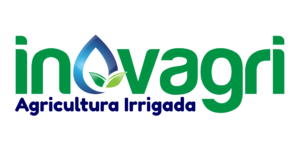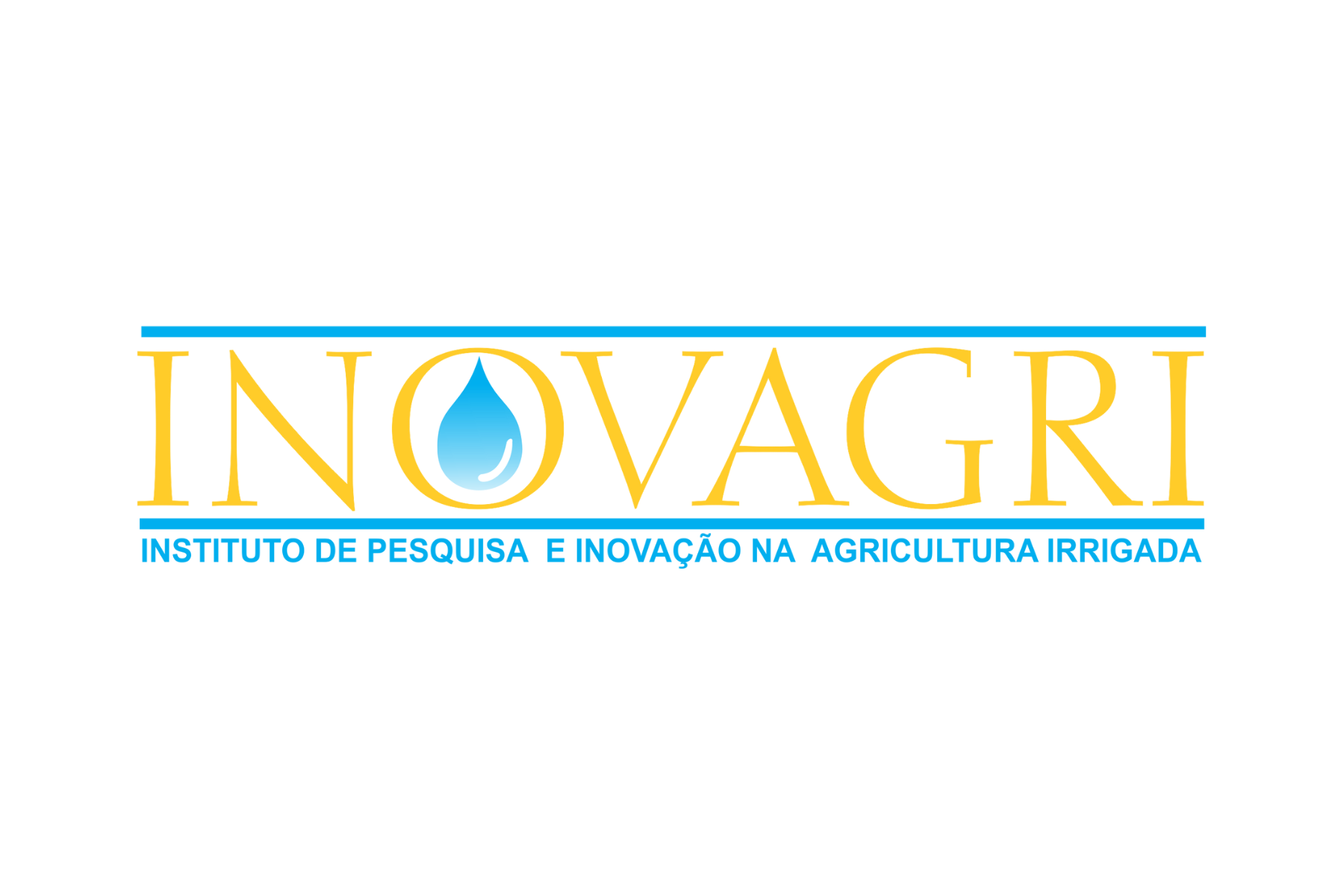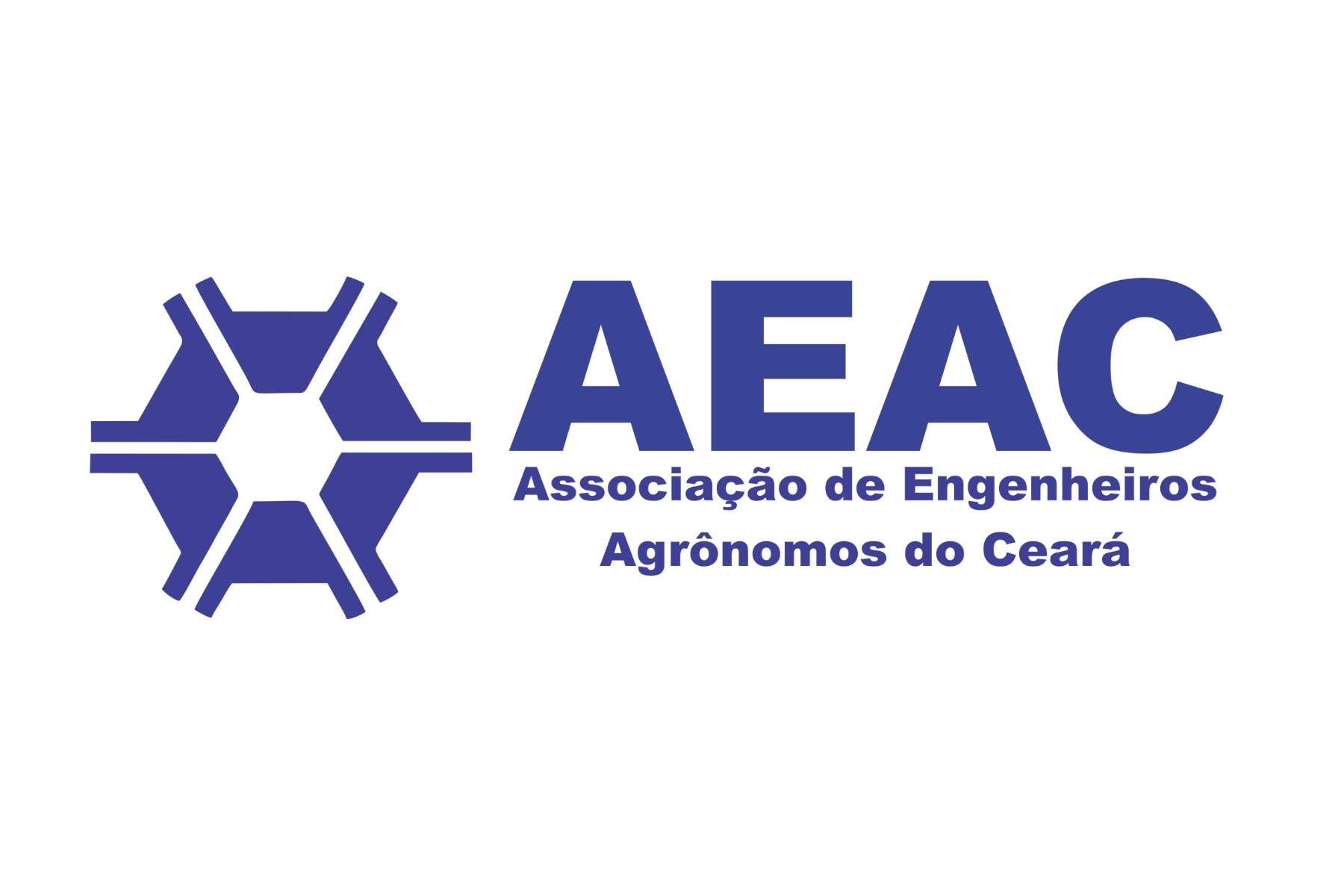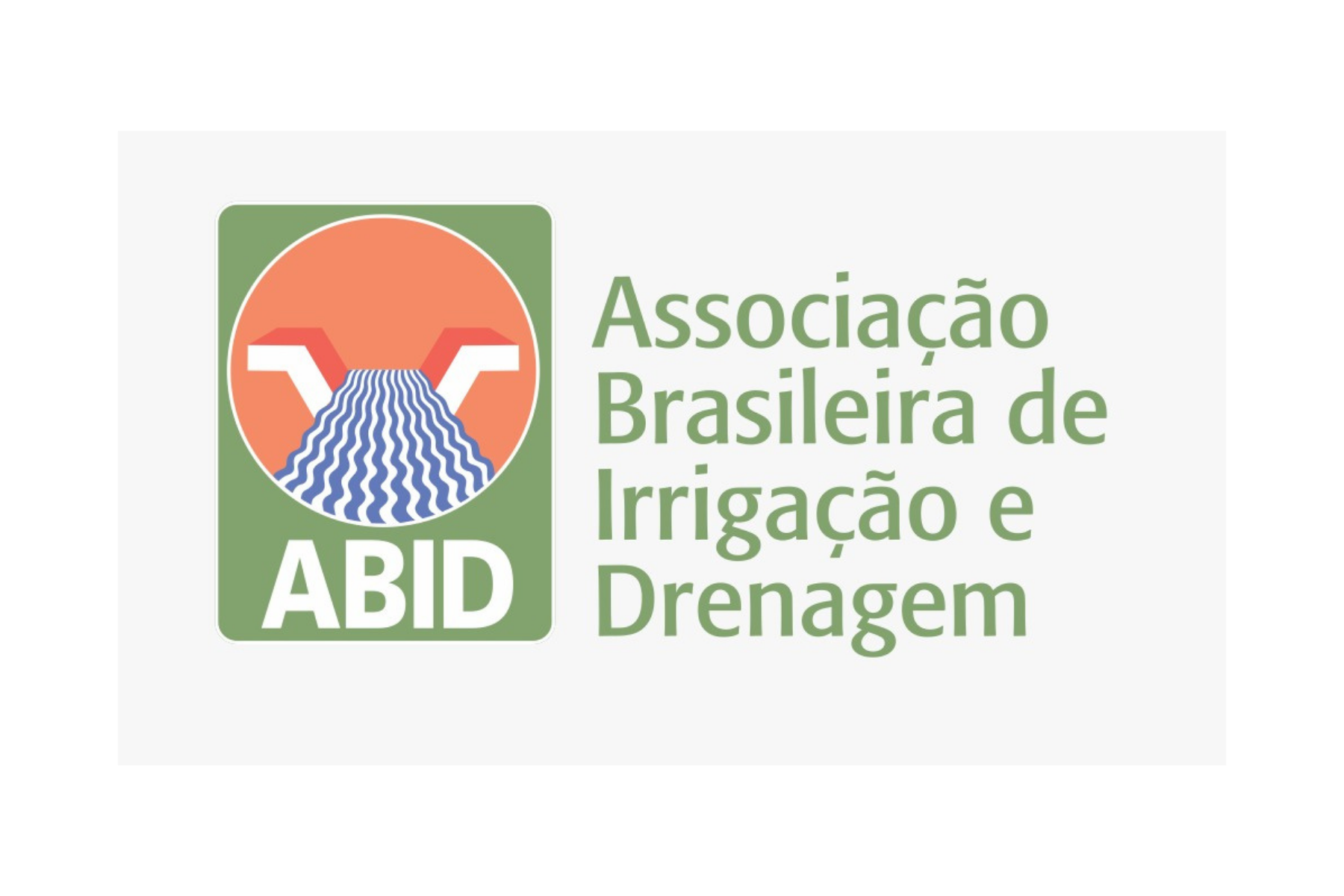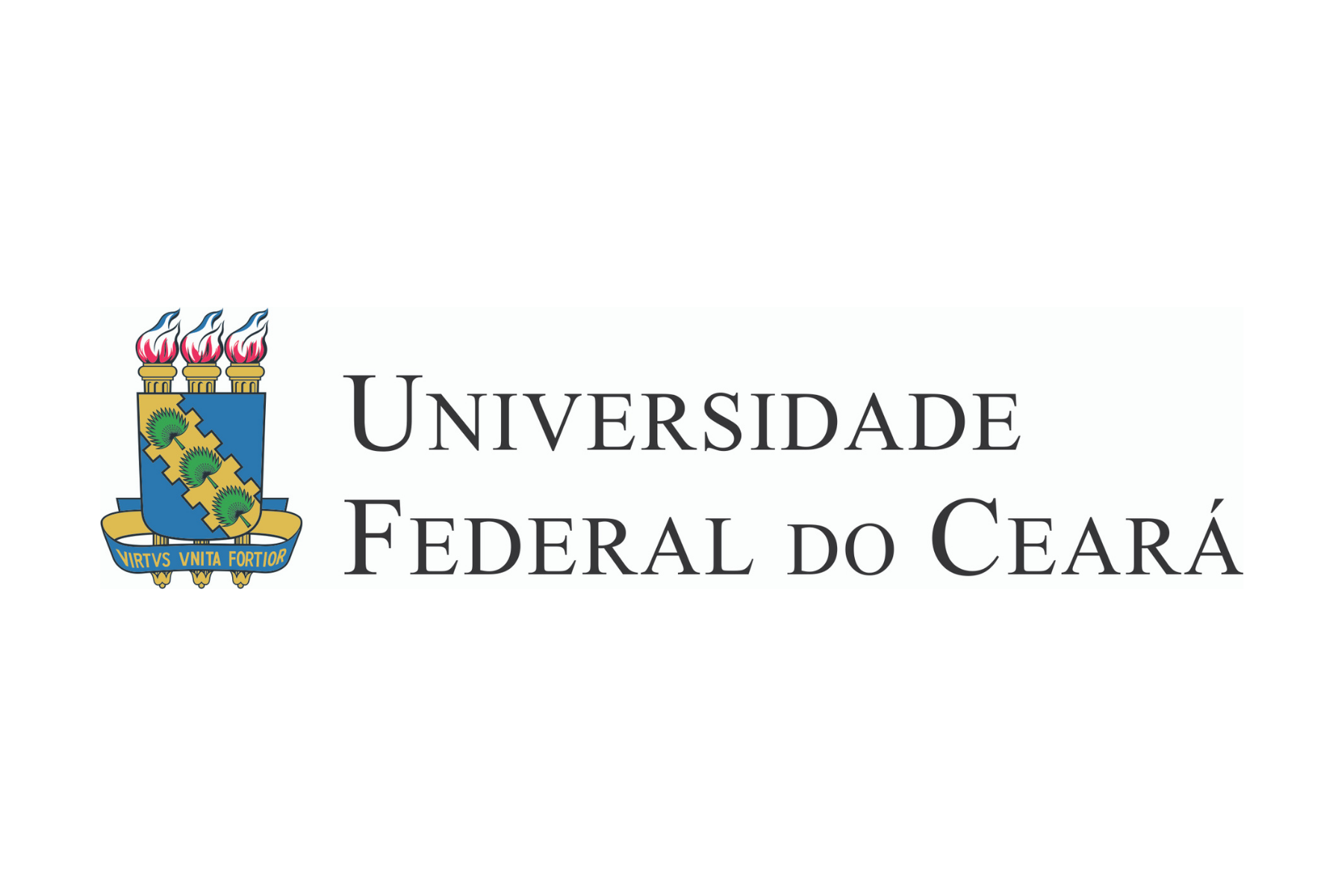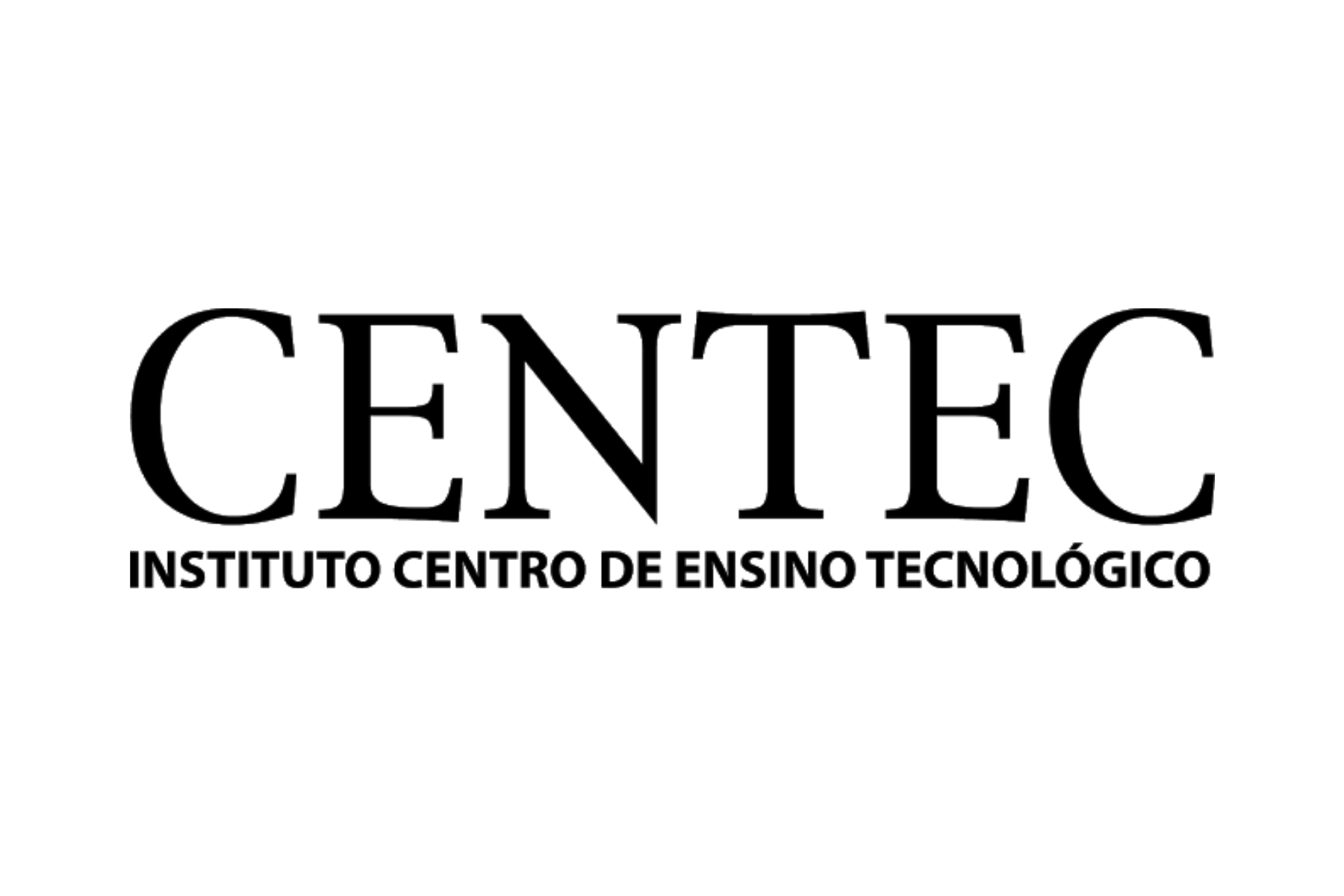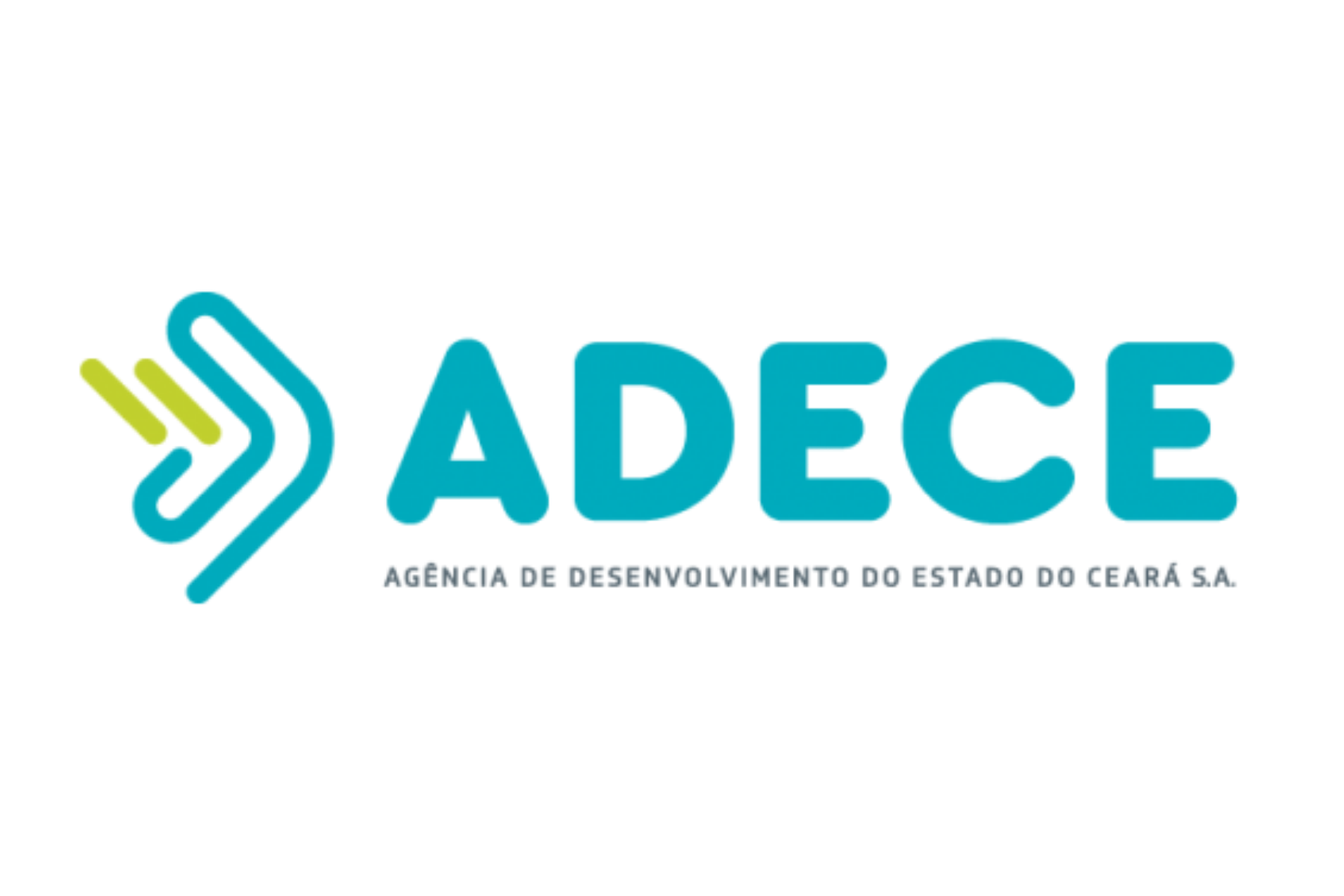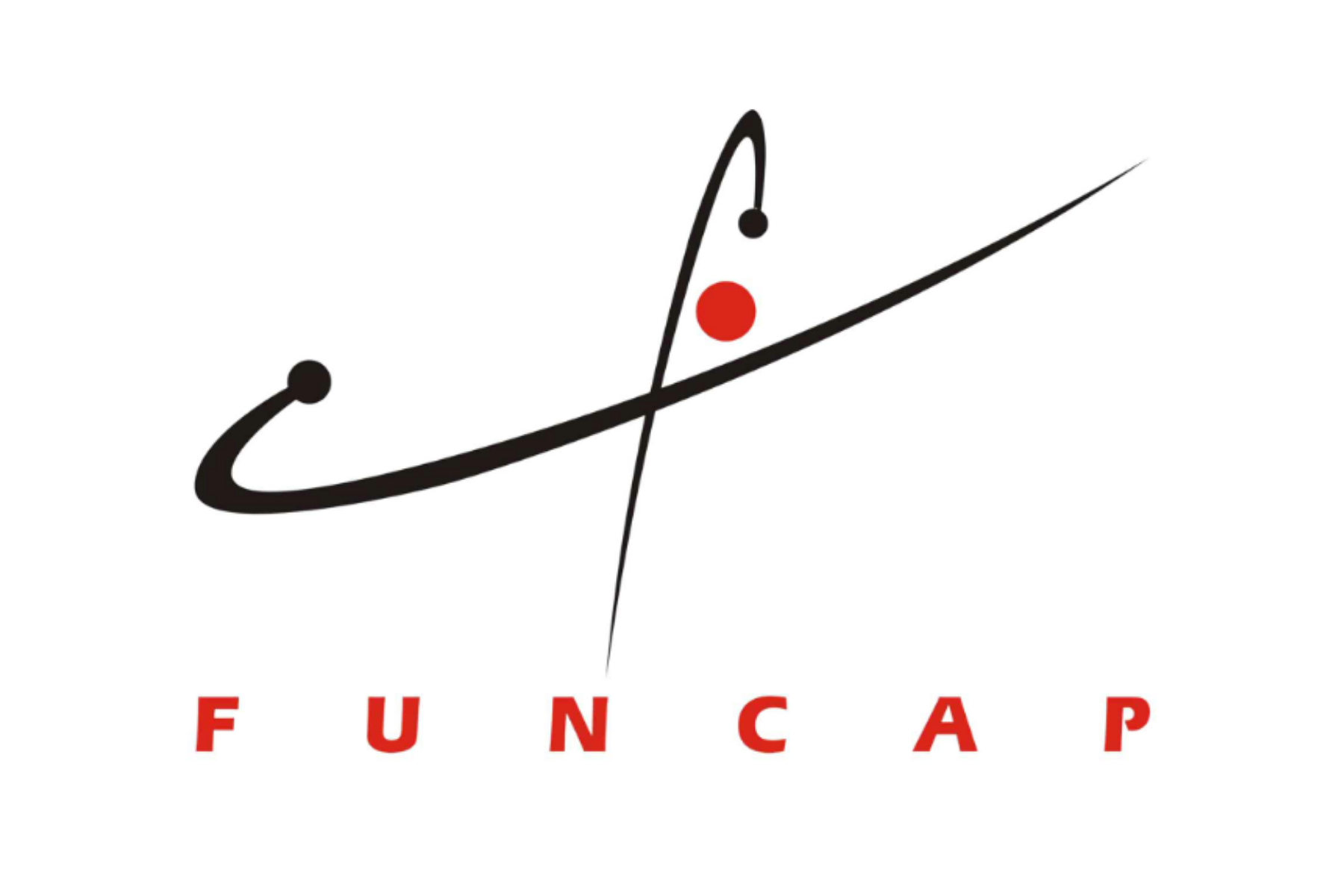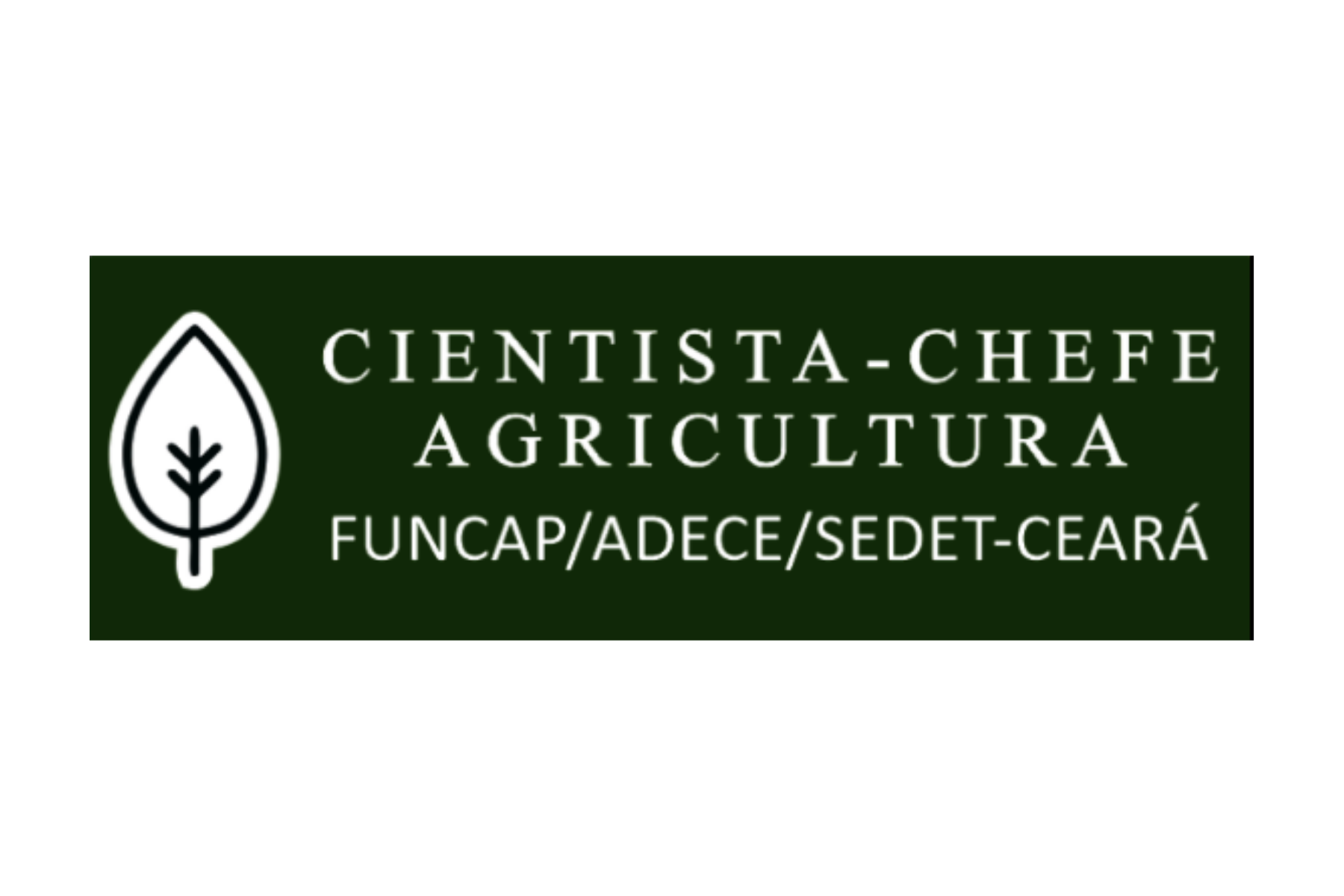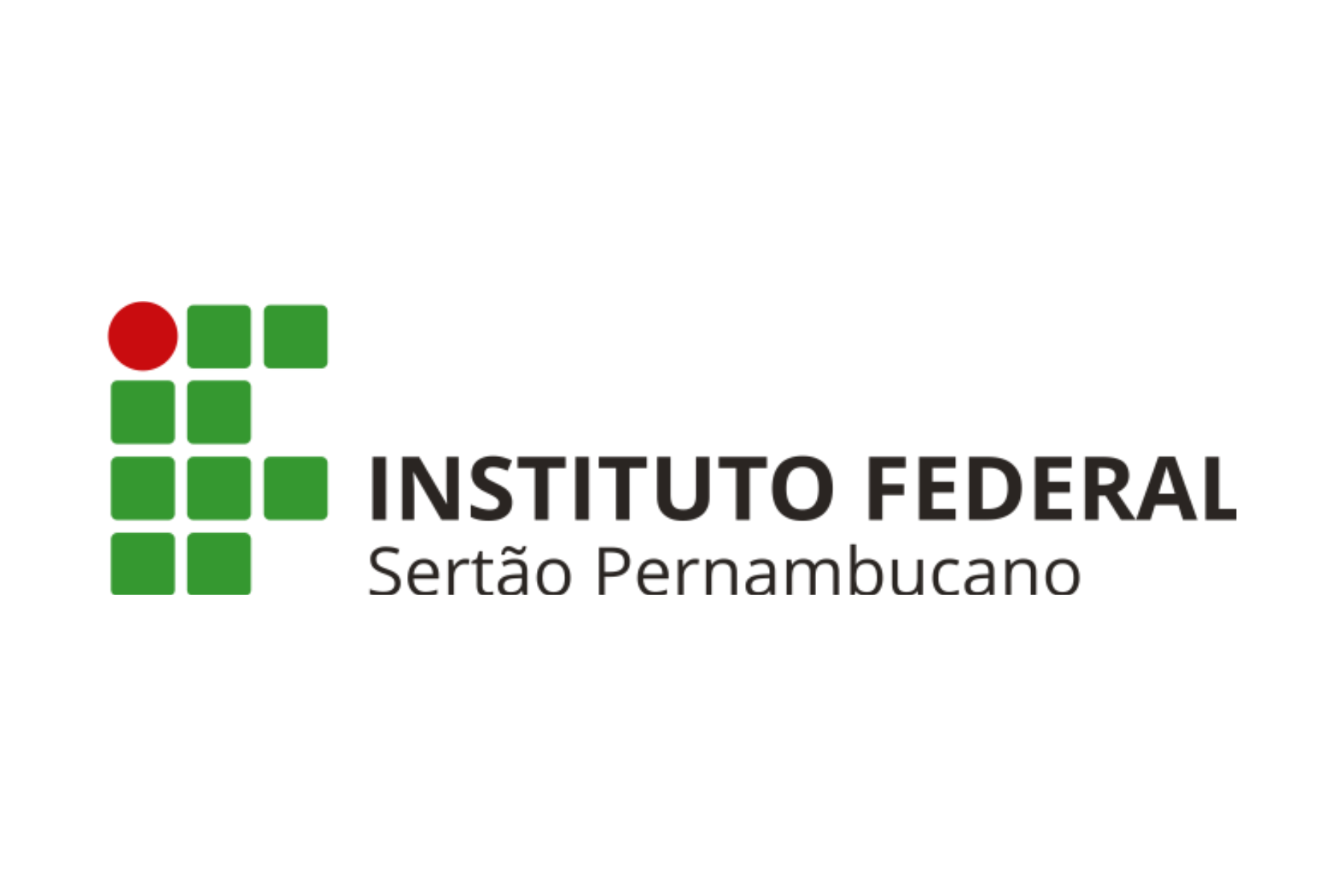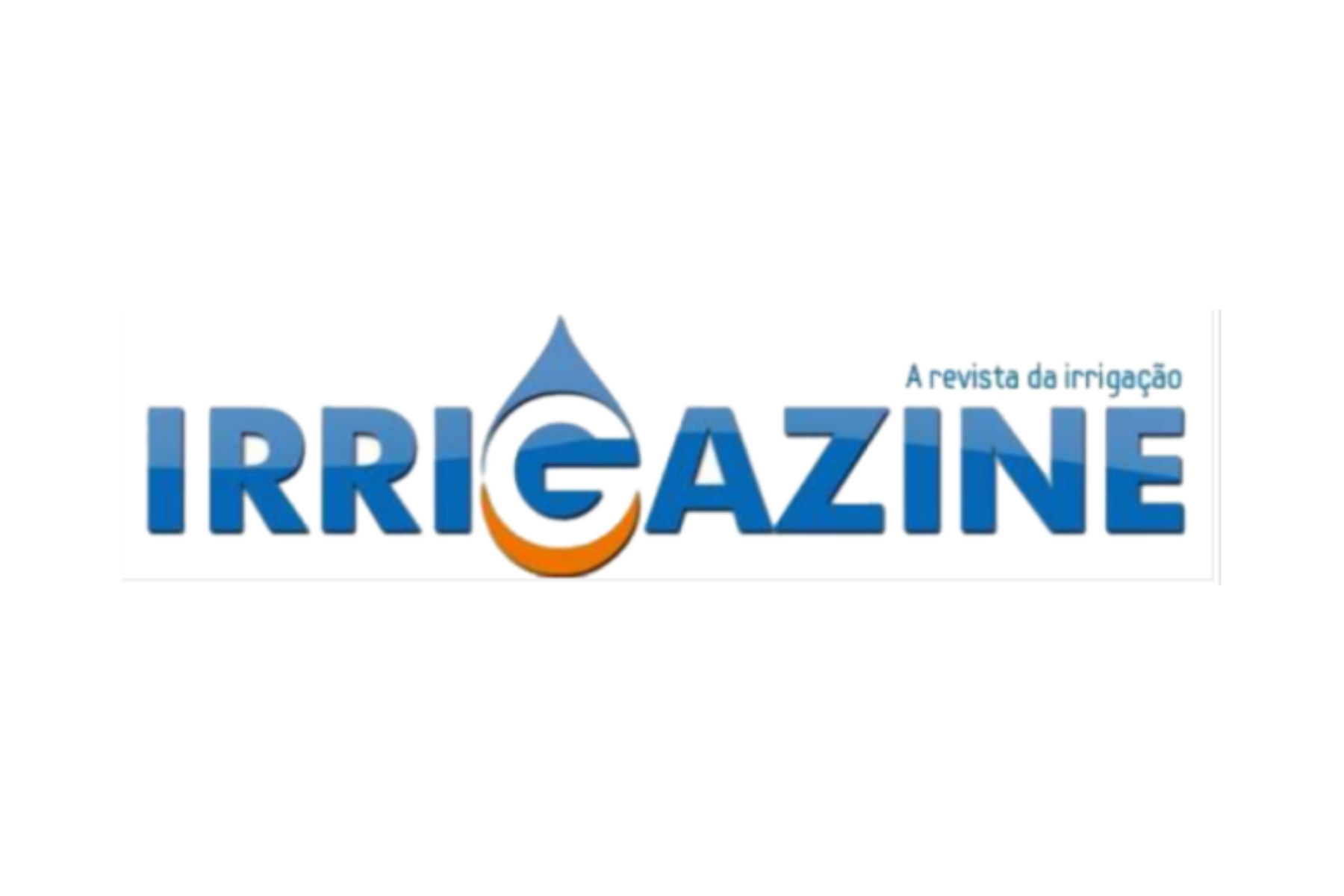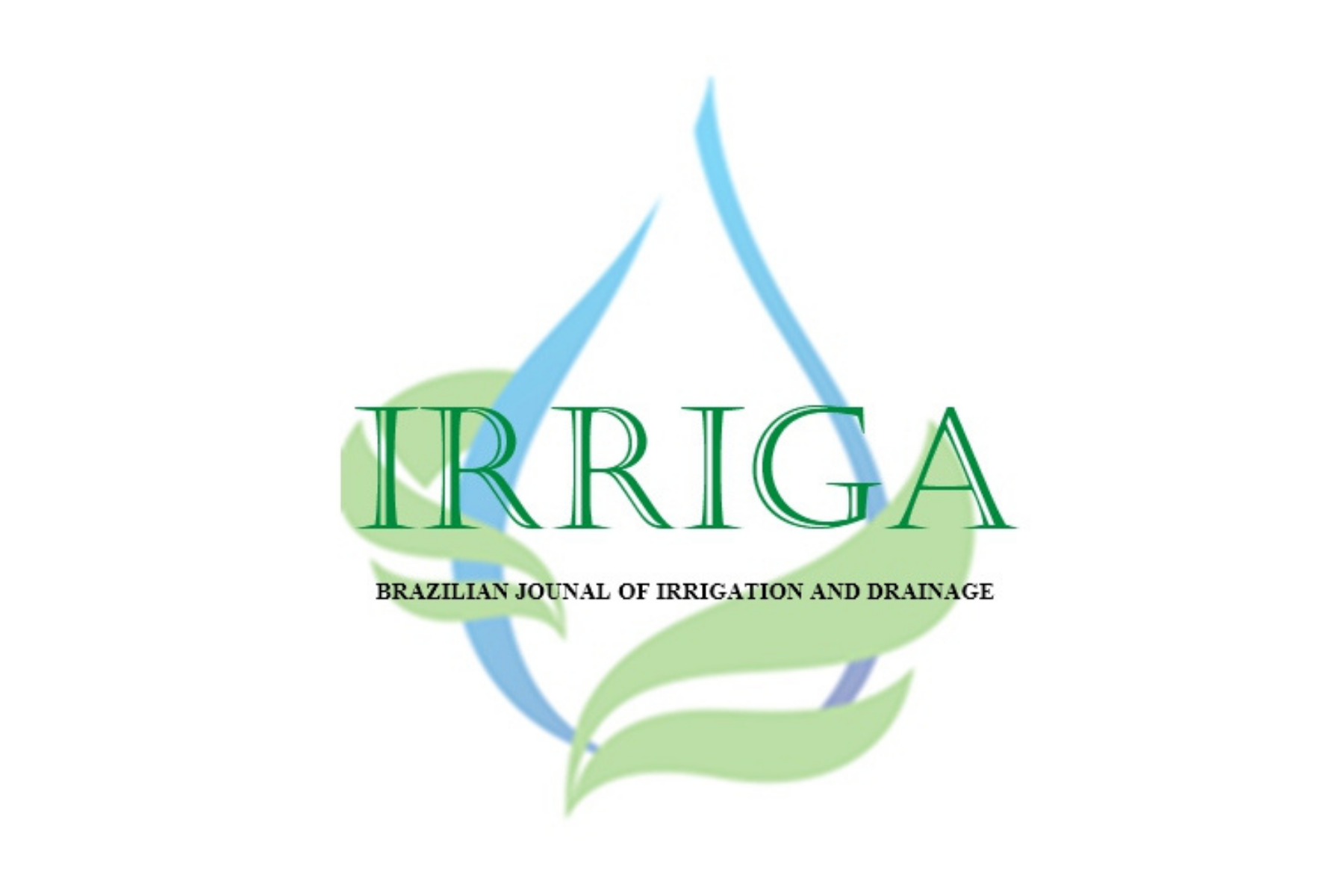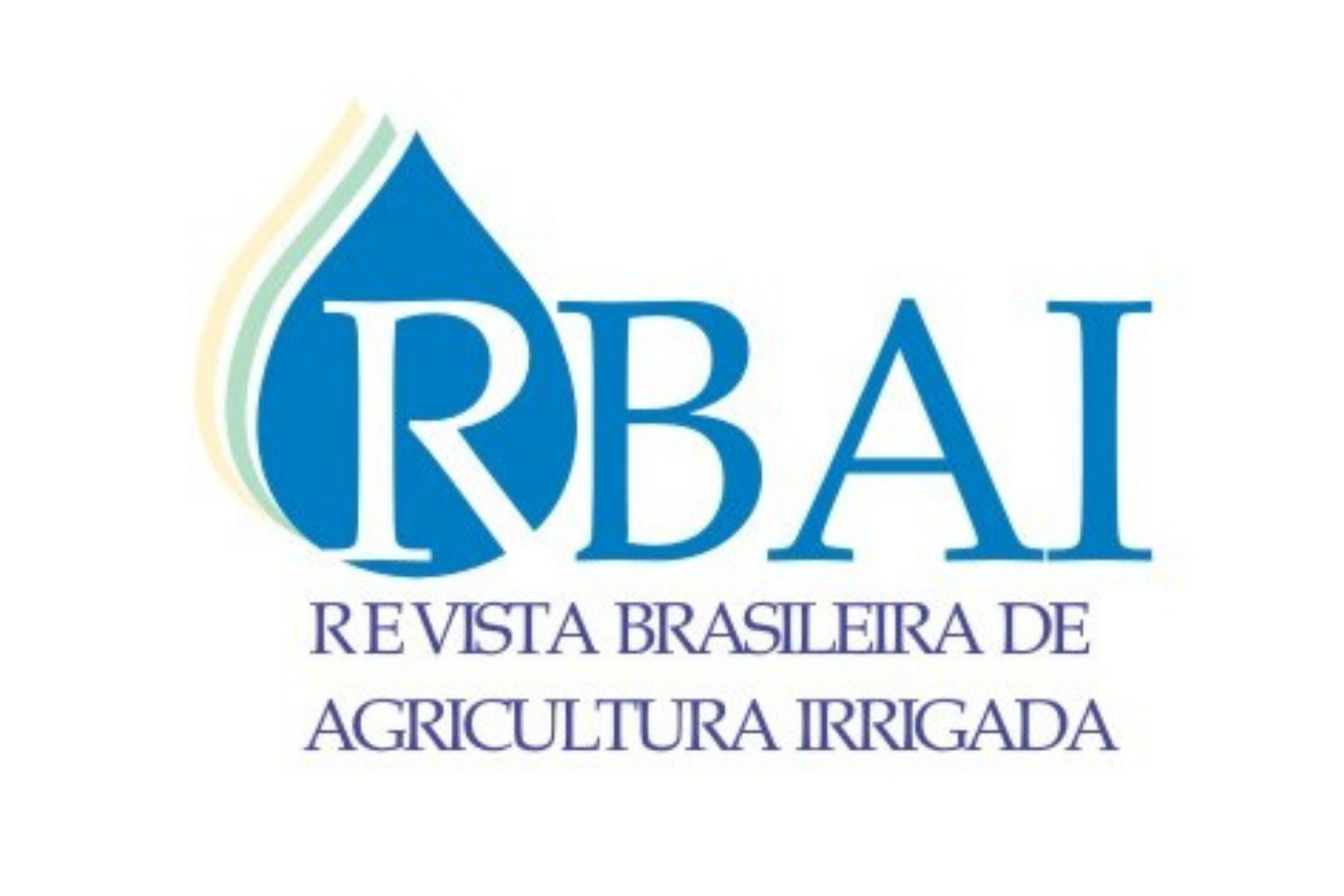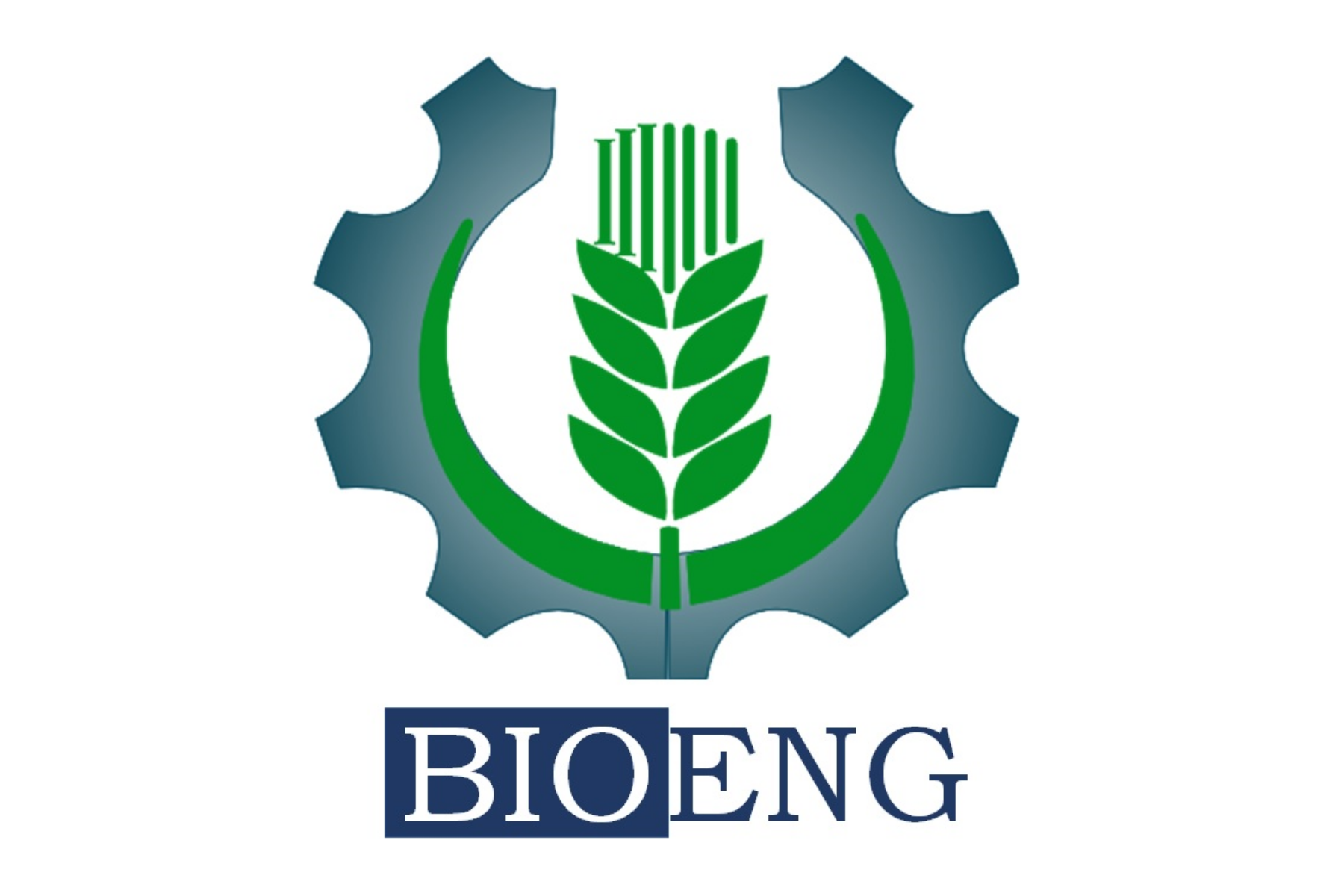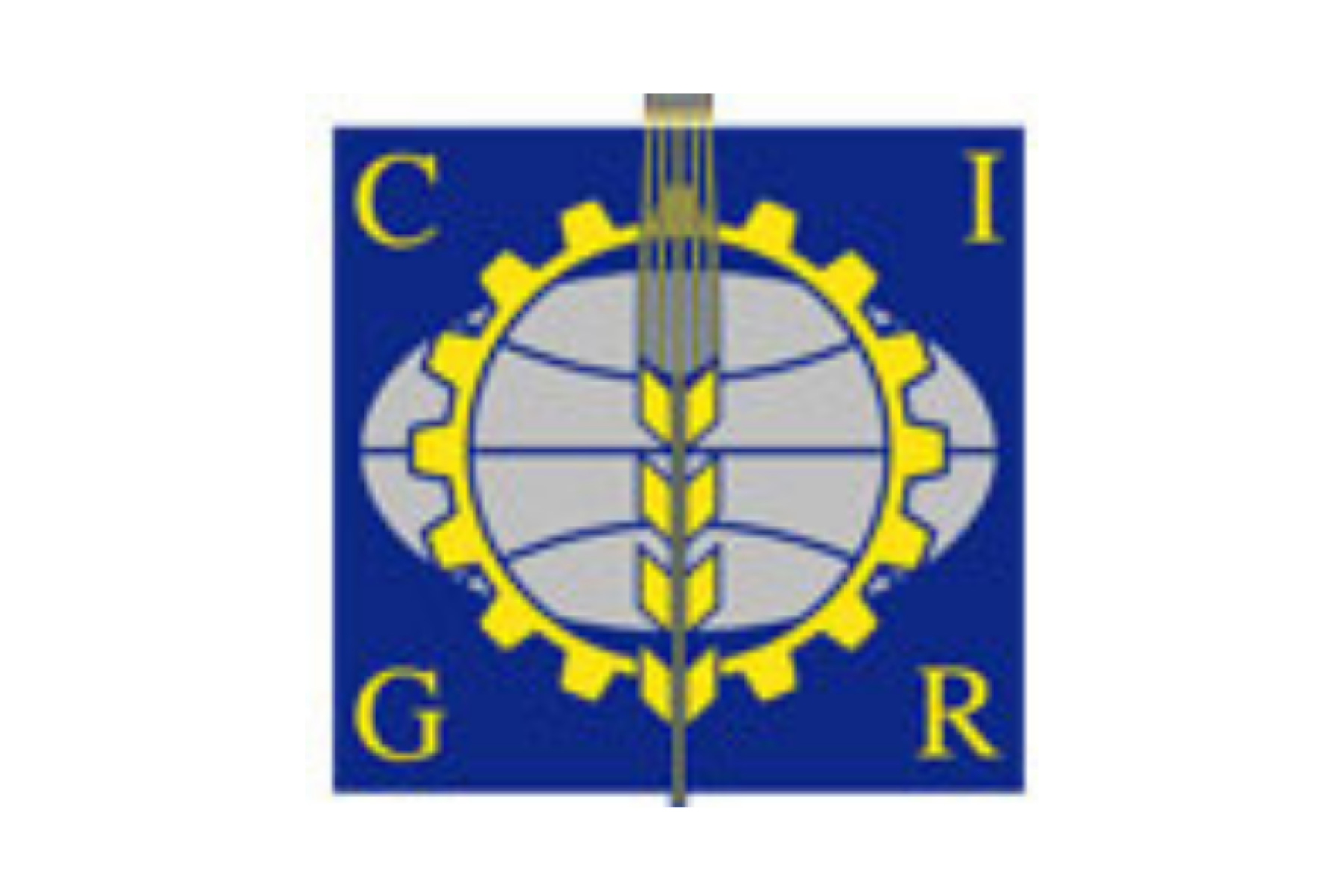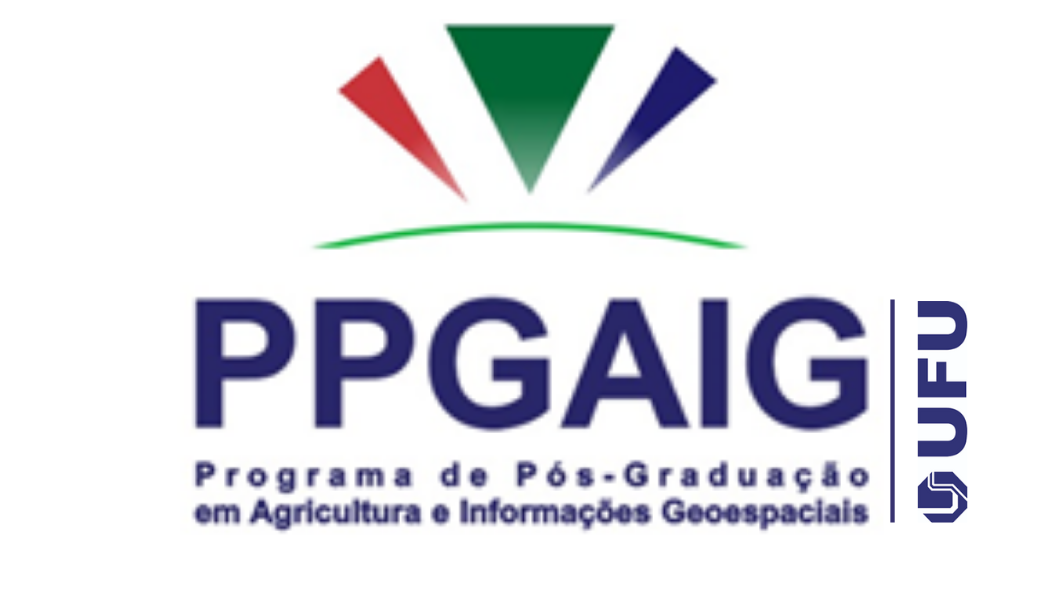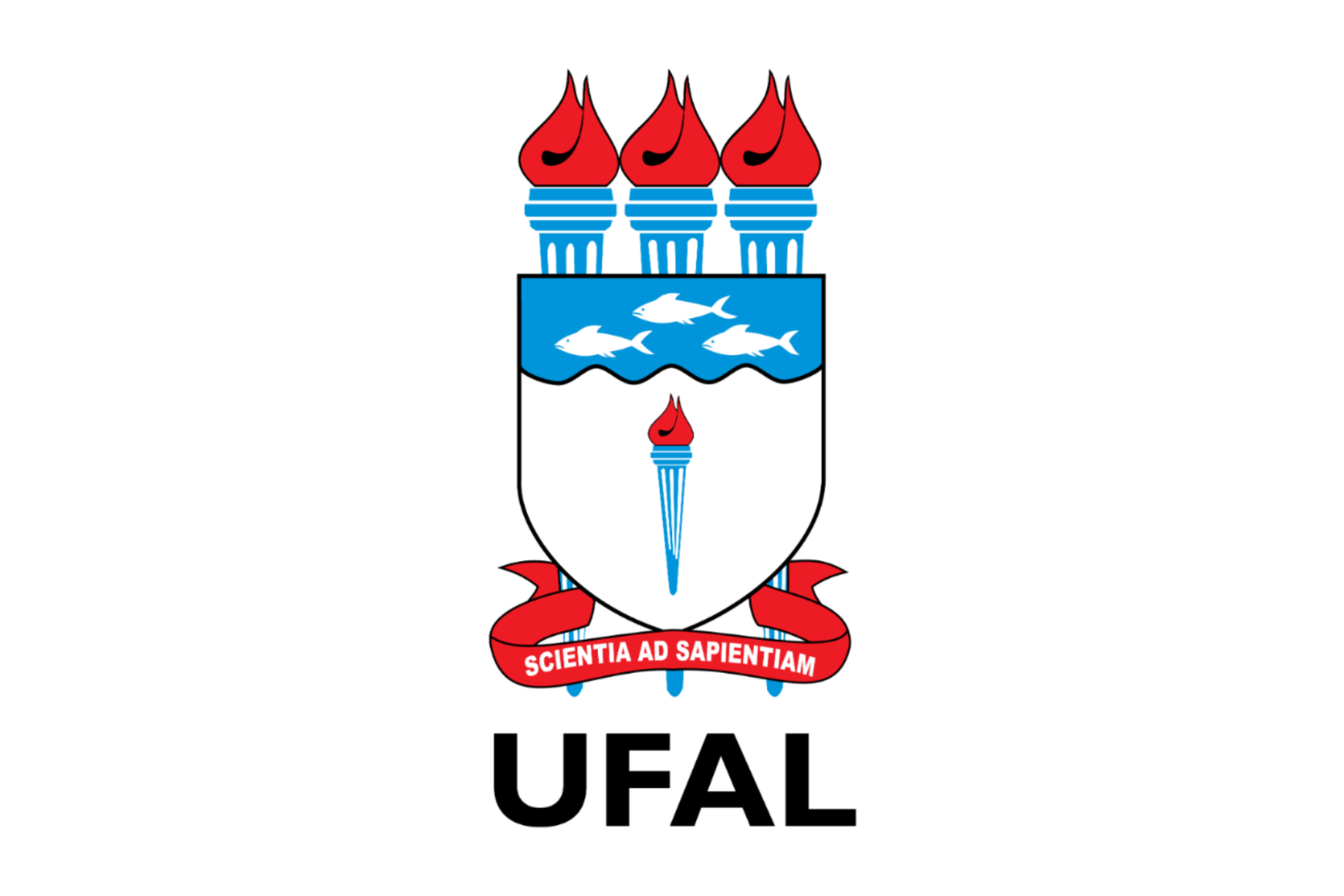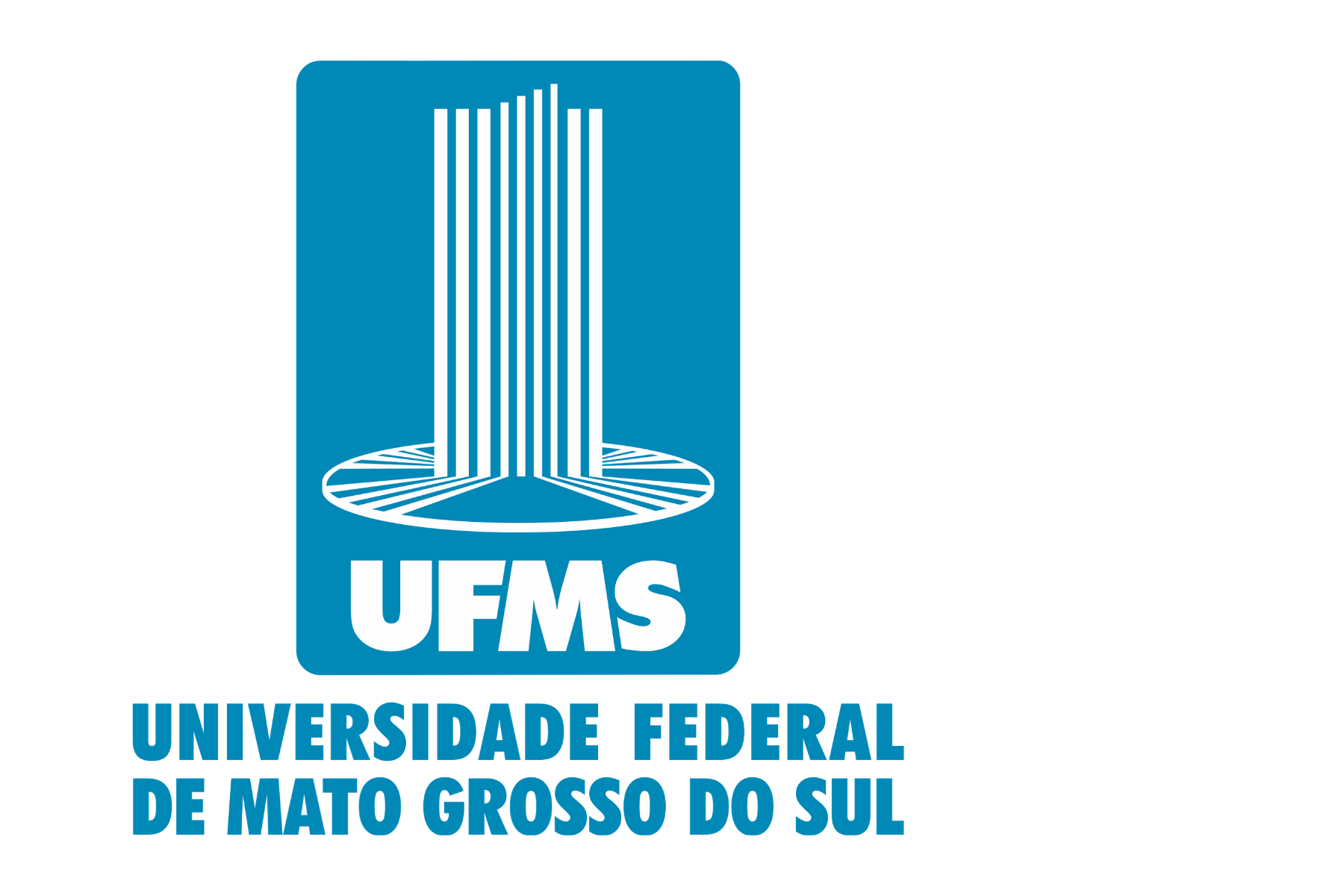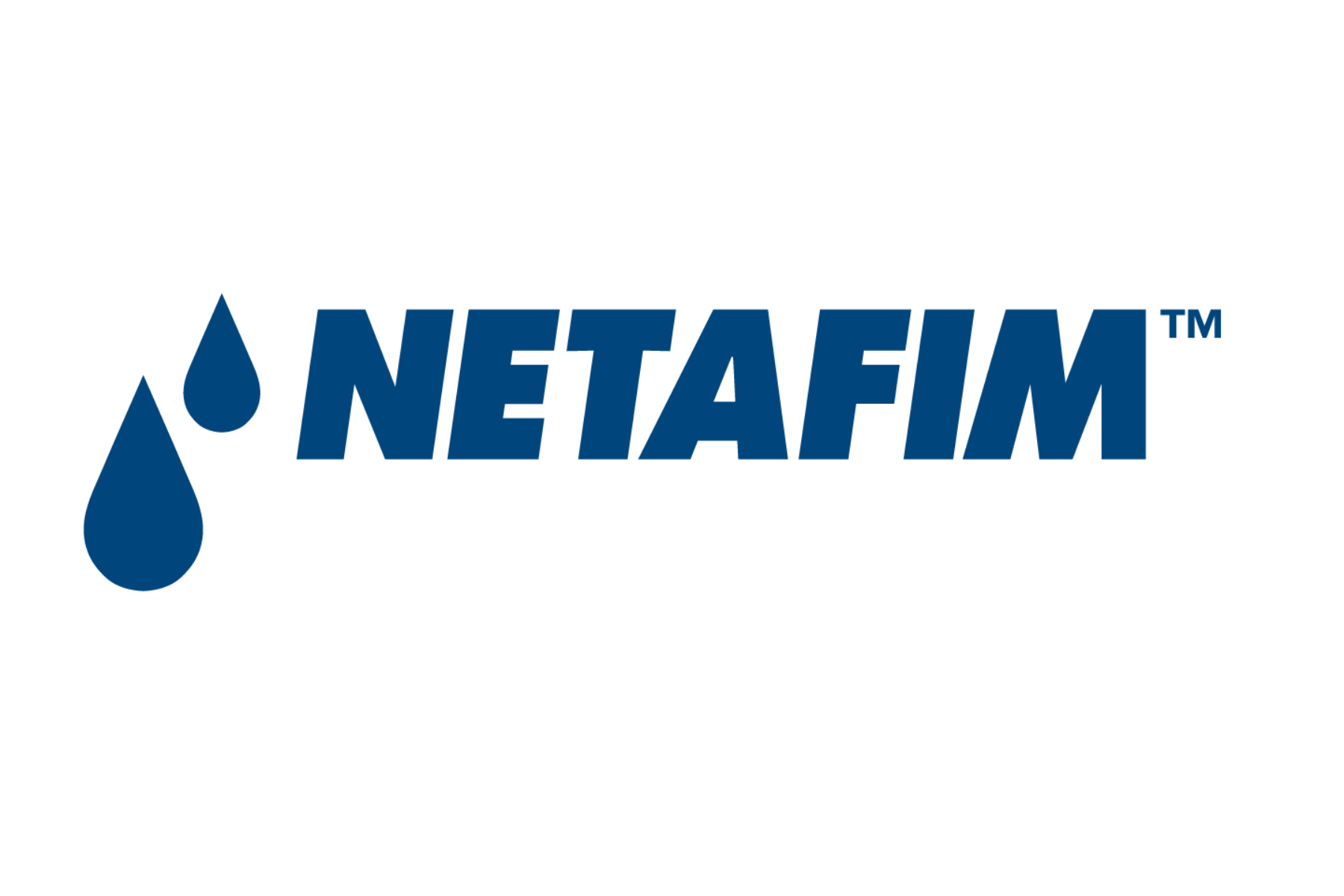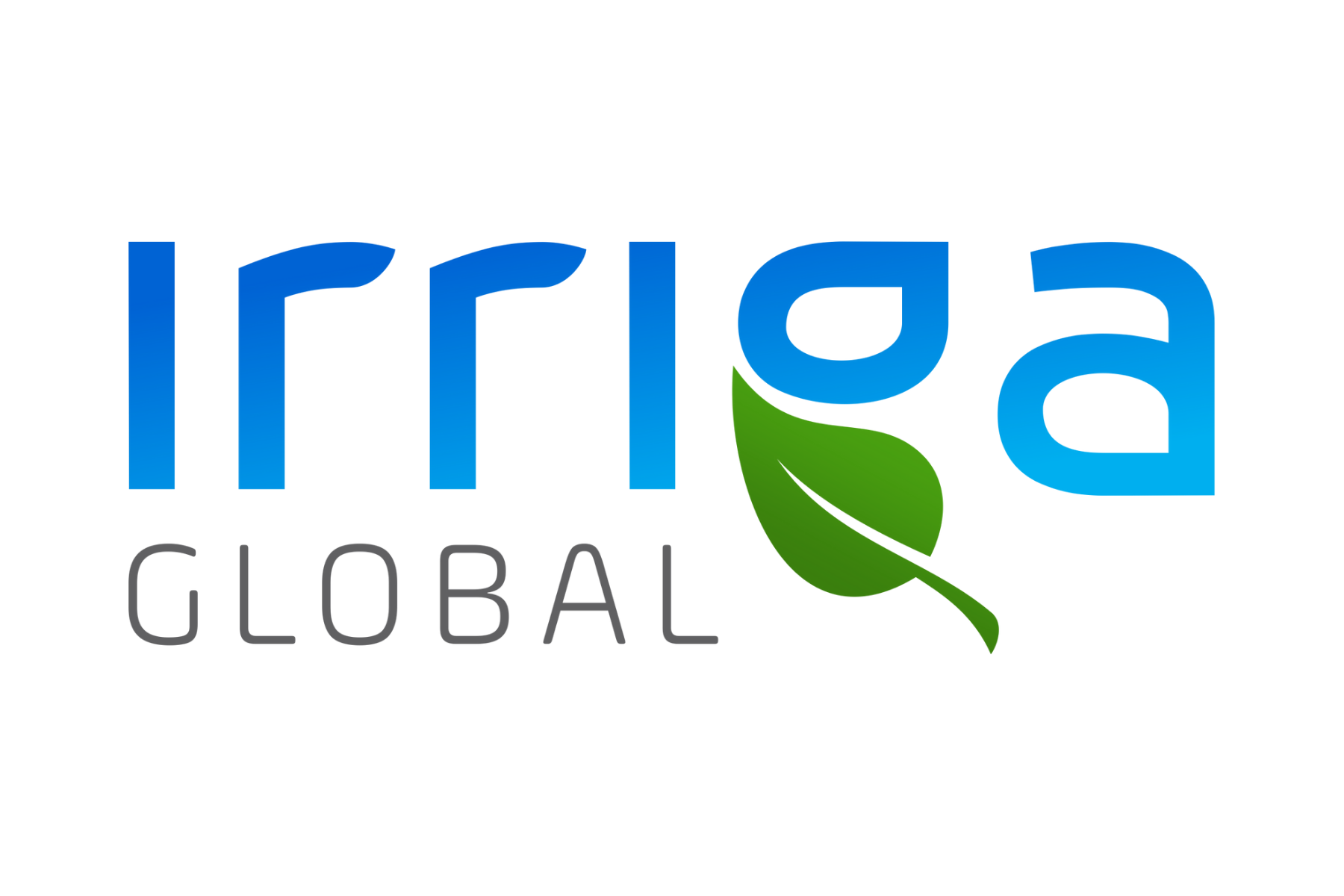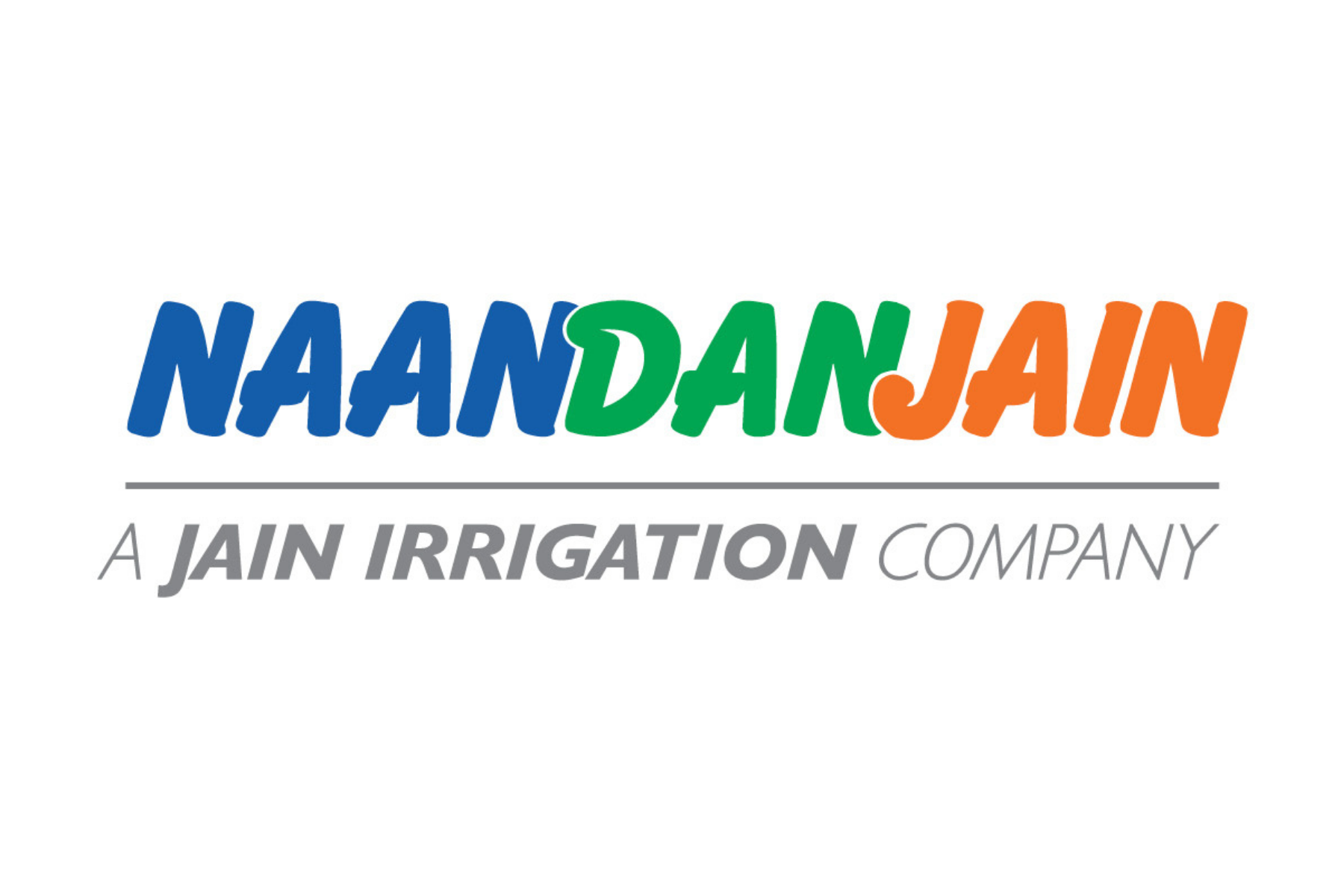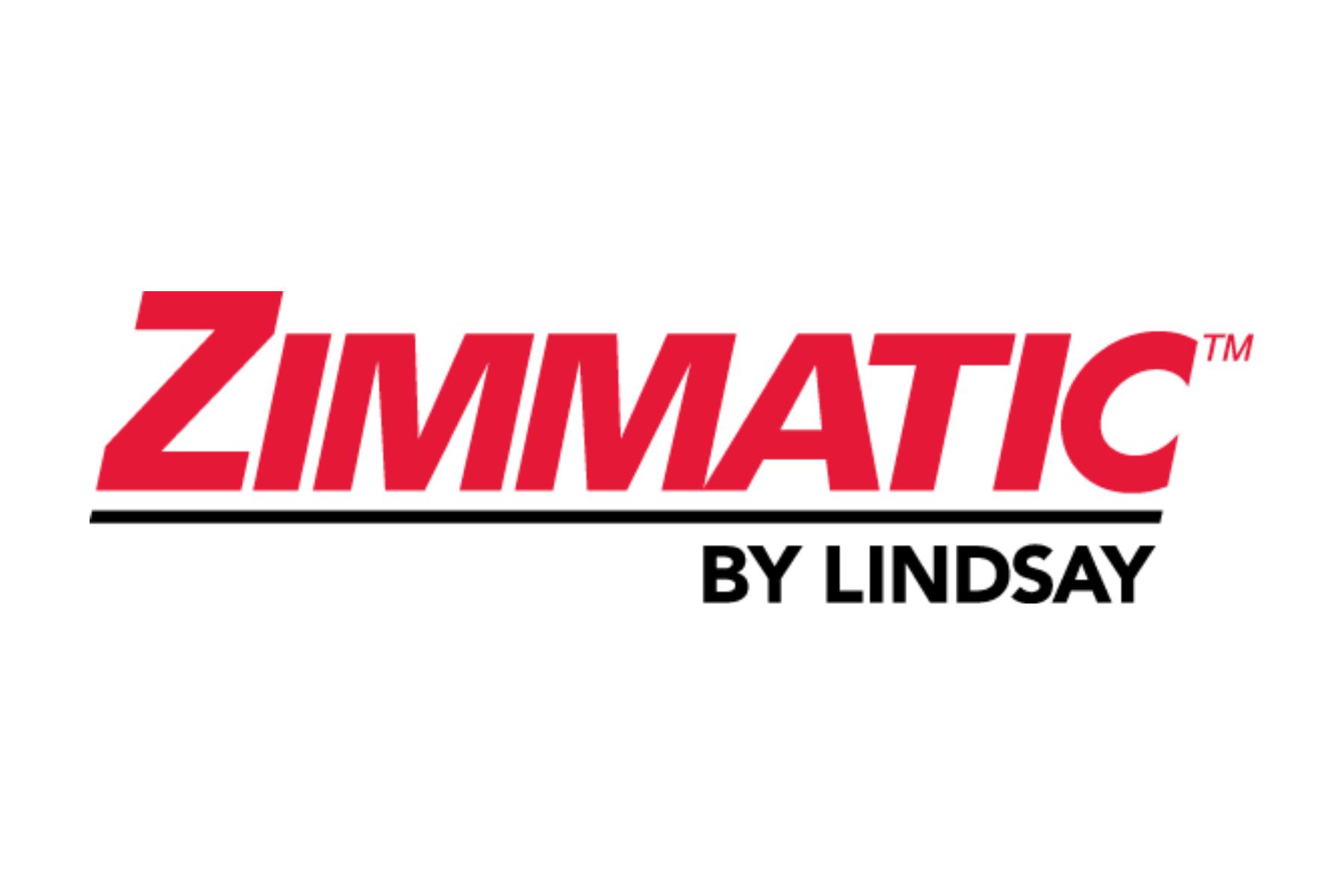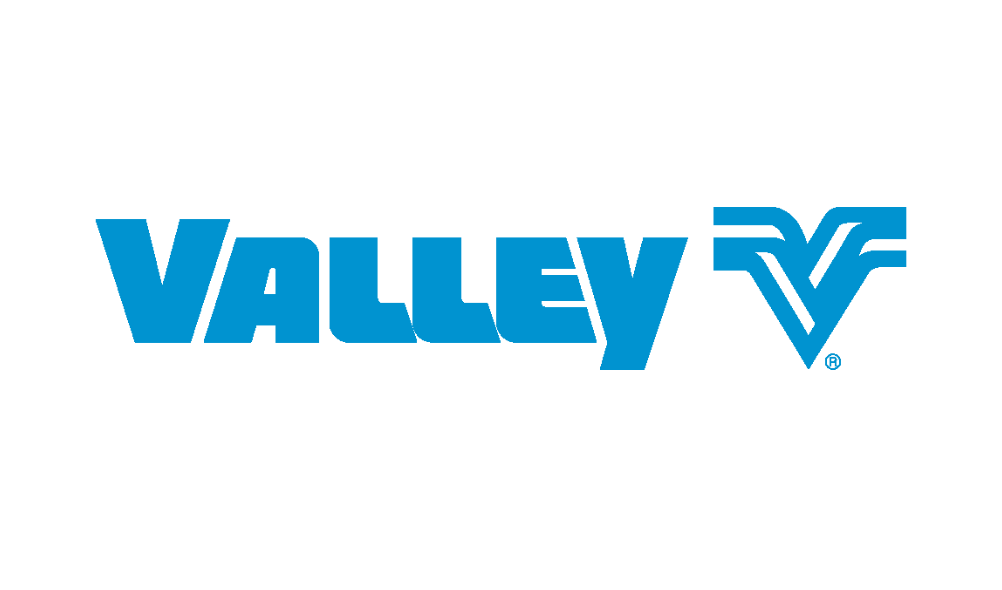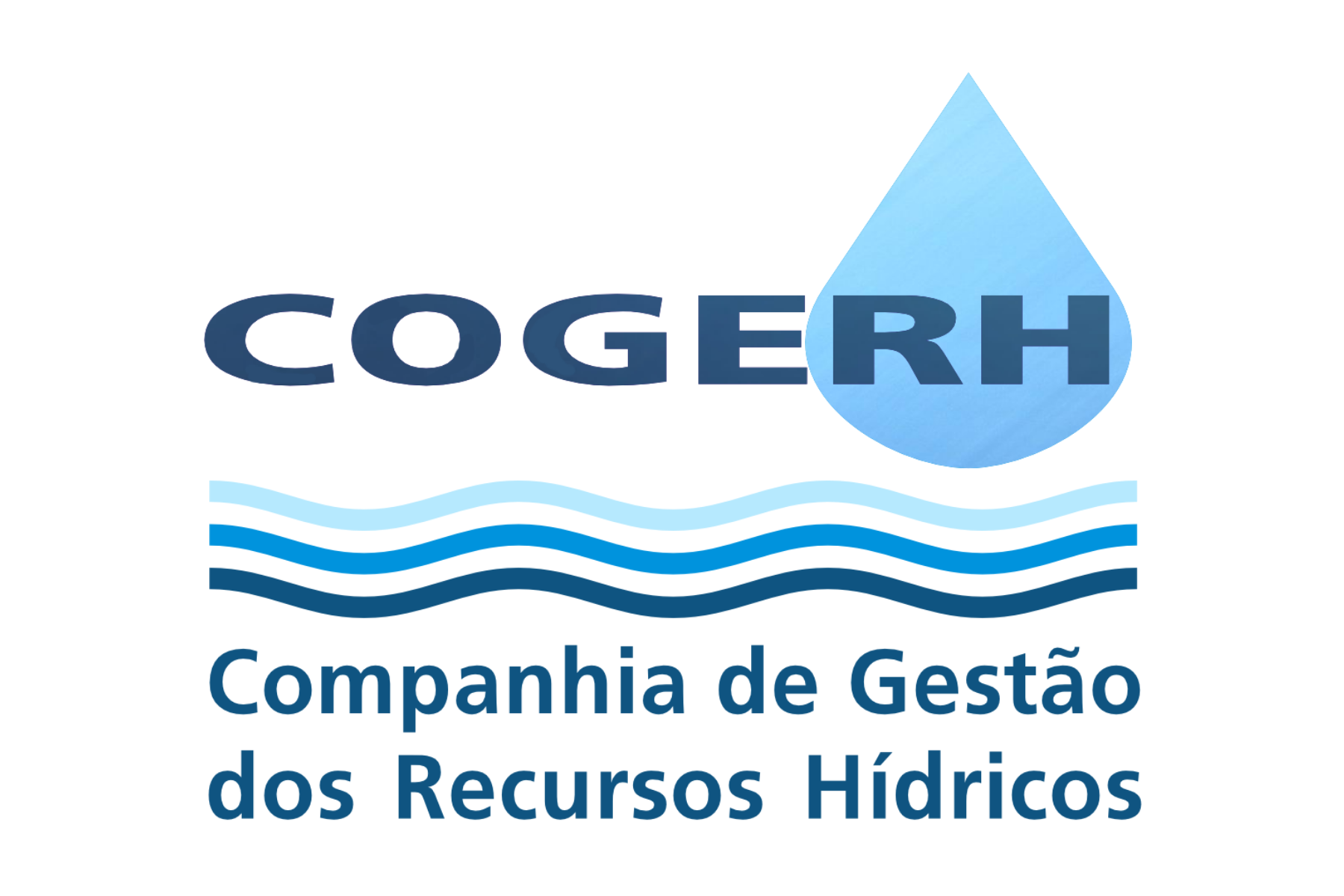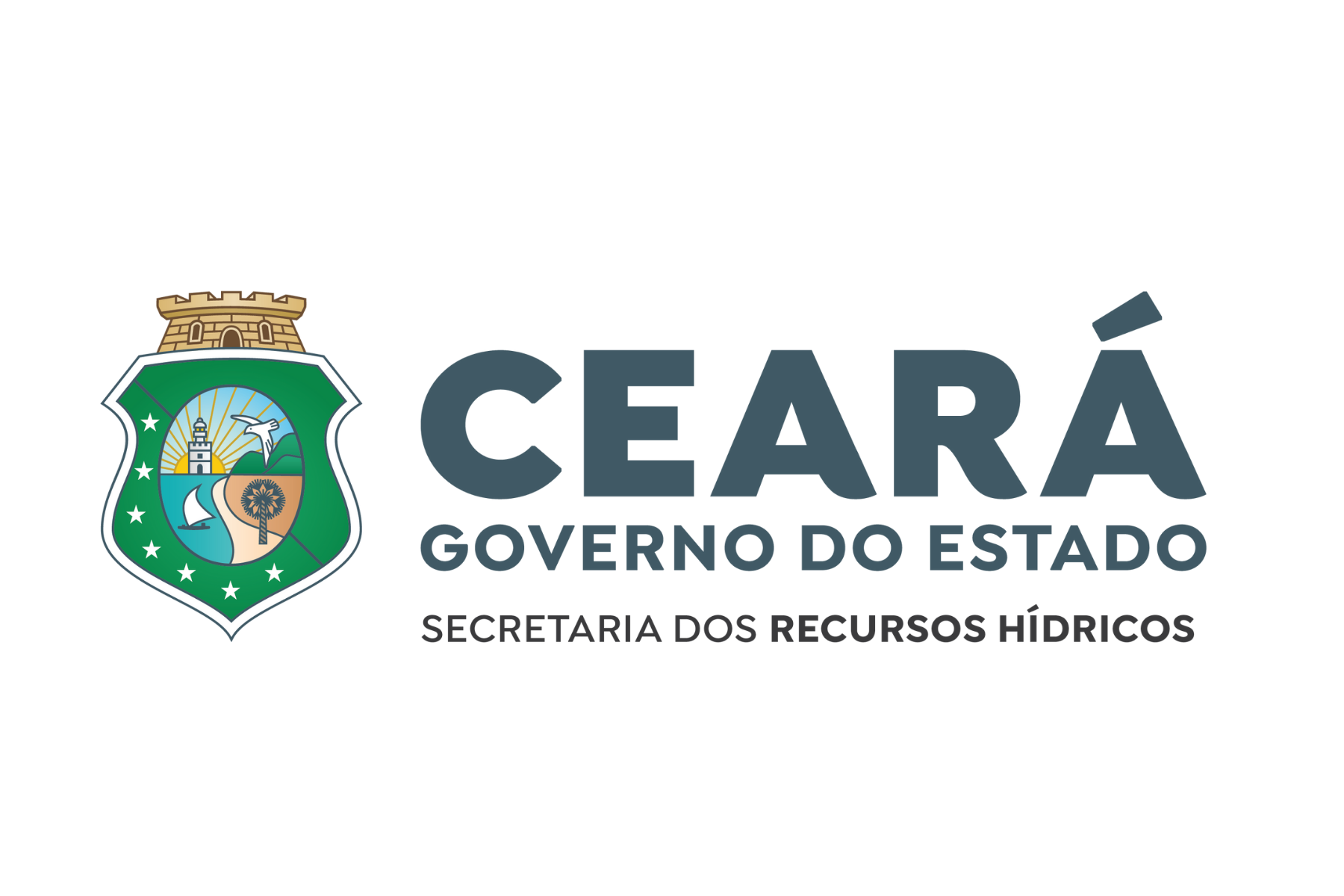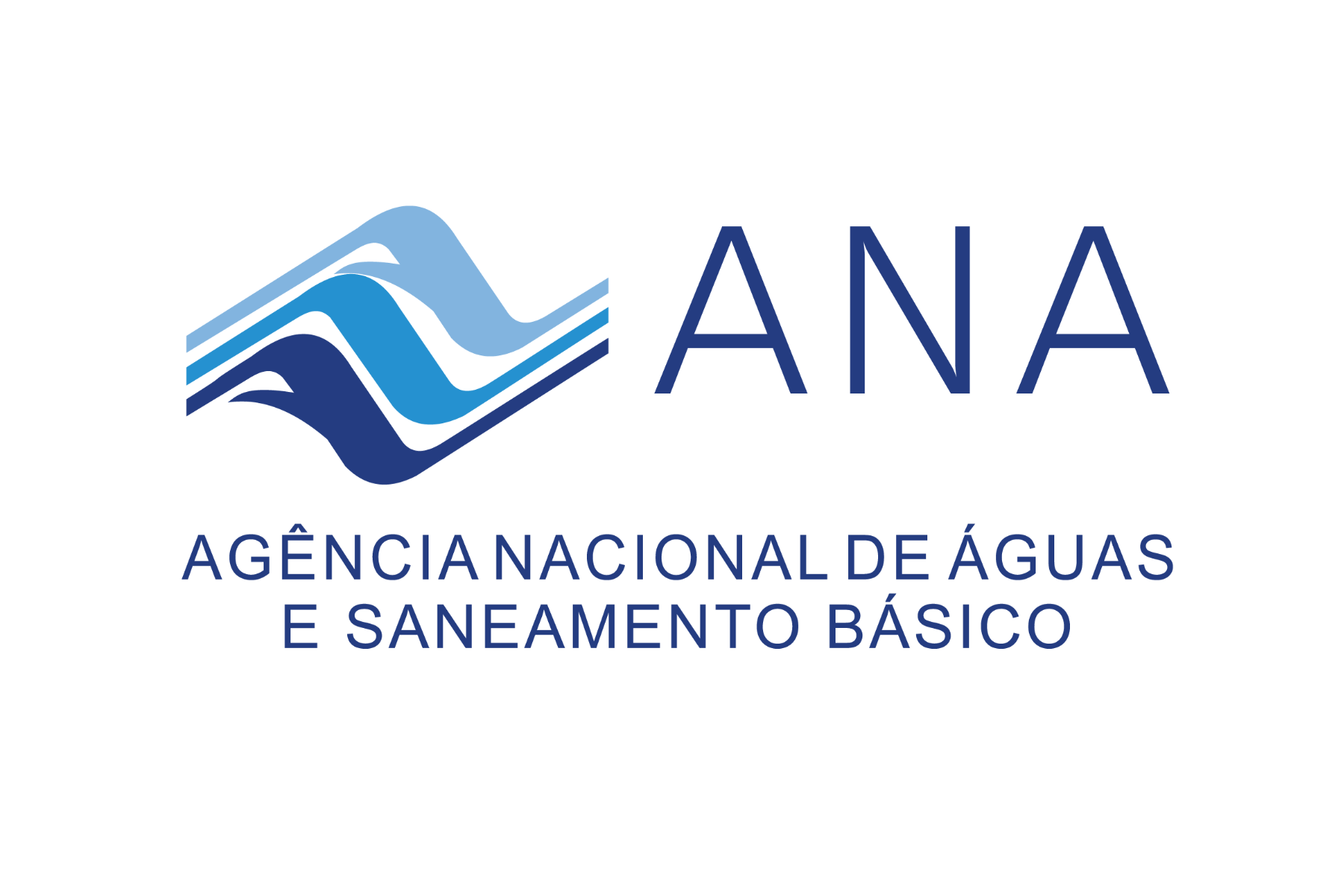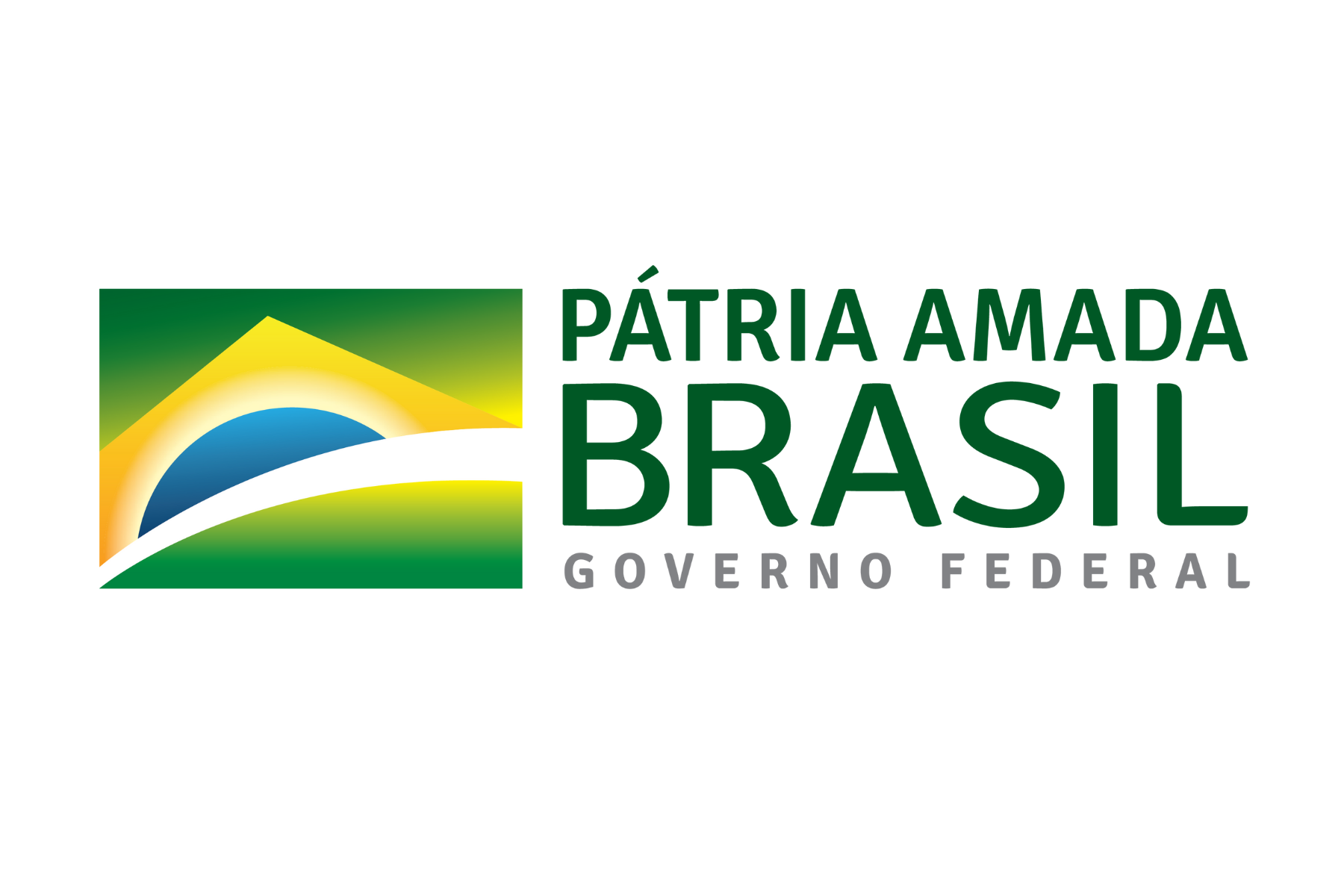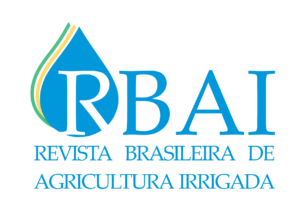
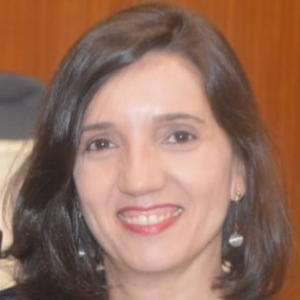 Graduated in Agricultural Engineering from the Federal Rural University of the Semi-Árido (1994), graduated in a Degree in Agricultural Sciences from the Federal Rural University of Pernambuco (1998), Master's in Agronomy (Soil Science) from the Federal Rural University of Pernambuco (1998) and Ph.D. in Irrigation and Drainage from ESALQ/USP with an internship in the Doctorate-SWE modality at the University of Southern Queensland, Australia. She is a Full Professor at Colégio Agrícola Dom Agostinho Ikas (CODAI) of the Federal Rural University of Pernambuco (UFRPE) and permanent professor in the Graduate Program in Agricultural Engineering at UFRPE. He has experience in Irrigation, working mainly in the following sub-areas: hydraulics, localized irrigation, salinity, design of irrigation systems.
Graduated in Agricultural Engineering from the Federal Rural University of the Semi-Árido (1994), graduated in a Degree in Agricultural Sciences from the Federal Rural University of Pernambuco (1998), Master's in Agronomy (Soil Science) from the Federal Rural University of Pernambuco (1998) and Ph.D. in Irrigation and Drainage from ESALQ/USP with an internship in the Doctorate-SWE modality at the University of Southern Queensland, Australia. She is a Full Professor at Colégio Agrícola Dom Agostinho Ikas (CODAI) of the Federal Rural University of Pernambuco (UFRPE) and permanent professor in the Graduate Program in Agricultural Engineering at UFRPE. He has experience in Irrigation, working mainly in the following sub-areas: hydraulics, localized irrigation, salinity, design of irrigation systems.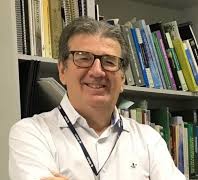 Graduated in Agronomic Engineering (1987) and Master (1991) in Agronomy (Vegetable Production) from the Faculty of Agrarian and Veterinary Sciences of Jaboticabal - UNESP (1987) and Doctorate in Irrigation and Drainage from the Luiz de Queiroz Superior School - USP (1995 ). He is a Full Professor at the Universidade Estadual Paulista - Ilha Solteira Campus. He was Head of DEFERS - Department of Plant Health, Rural Engineering and Soils from 2001 to 2003 and 2005 to 2009. He has experience in Agricultural Engineering, with an emphasis on Irrigation and Drainage, working mainly on the following topics: irrigated agriculture, irrigation systems. irrigation, agrometeorology, hydrology and fertigation. He is Professor and Advisor in the Agronomy course at UNESP Ilha Solteira and in the Postgraduate Programs in Production Systems and Professional Master's Degree in Management and Regulation of Water Resources (PROFÁGUA) at UNESP Ilha Solteira and in Irrigation and Drainage at UNESP Botucatu. He is Ad-Hoc Rapporteur for some Brazilian Technical Magazines and also for FAPESP.
Graduated in Agronomic Engineering (1987) and Master (1991) in Agronomy (Vegetable Production) from the Faculty of Agrarian and Veterinary Sciences of Jaboticabal - UNESP (1987) and Doctorate in Irrigation and Drainage from the Luiz de Queiroz Superior School - USP (1995 ). He is a Full Professor at the Universidade Estadual Paulista - Ilha Solteira Campus. He was Head of DEFERS - Department of Plant Health, Rural Engineering and Soils from 2001 to 2003 and 2005 to 2009. He has experience in Agricultural Engineering, with an emphasis on Irrigation and Drainage, working mainly on the following topics: irrigated agriculture, irrigation systems. irrigation, agrometeorology, hydrology and fertigation. He is Professor and Advisor in the Agronomy course at UNESP Ilha Solteira and in the Postgraduate Programs in Production Systems and Professional Master's Degree in Management and Regulation of Water Resources (PROFÁGUA) at UNESP Ilha Solteira and in Irrigation and Drainage at UNESP Botucatu. He is Ad-Hoc Rapporteur for some Brazilian Technical Magazines and also for FAPESP.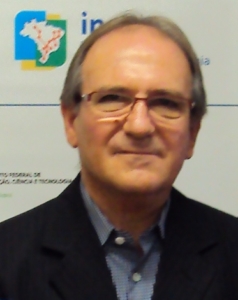 Graduated in Agronomy from the Federal University of Viçosa (1977), Master's in Agricultural Engineering from the Federal University of Viçosa (1979) and Ph.D. in Agronomy from the Luiz de Queiroz School of Agriculture (1986). He retired as Full Professor at the University of São Paulo, Campus Luiz de Queiroz, in June 2018. He is currently Senior Collaborating Professor at the University of São Paulo, Campus Luiz de Queiroz, and Visiting Professor at the Department of Agricultural Engineering at the University Federal of Ceará - UFC. He was Head of the Department of Biosystems Engineering at ESALQ/USP from 03/2003 to 03/2007 and 03/2011 to 03/2013. He was Coordinator of the Graduate Program in Irrigation and Drainage at ESALQ/USP from 11/2002 to 11/2008. He is the Coordinator of the National Institute of Science and Technology in Irrigation Engineering (INCT-EI) which is headquartered at ESALQ/USP and leader of the CNPq Research Group called: Metrology, Standardization and Quality in Irrigation and Drainage. Coordinated the Irrigation Advisory Service Project - SAI, a project carried out in the District of Irrigation of Baixo Acarau-CE. He was a member of the CNPq Agricultural Engineering Advisory Committee from July 1, 2013 to June 30, 2016 (as Alternate) and from October 1, 2016 to June 30, 2019 (as Holder ). He has experience in Agronomy, with an emphasis on Irrigation, working mainly on the following topics: irrigation management, hydraulic irrigation systems, optimization of water use, evapotranspiration, fertigation and simulation.
Graduated in Agronomy from the Federal University of Viçosa (1977), Master's in Agricultural Engineering from the Federal University of Viçosa (1979) and Ph.D. in Agronomy from the Luiz de Queiroz School of Agriculture (1986). He retired as Full Professor at the University of São Paulo, Campus Luiz de Queiroz, in June 2018. He is currently Senior Collaborating Professor at the University of São Paulo, Campus Luiz de Queiroz, and Visiting Professor at the Department of Agricultural Engineering at the University Federal of Ceará - UFC. He was Head of the Department of Biosystems Engineering at ESALQ/USP from 03/2003 to 03/2007 and 03/2011 to 03/2013. He was Coordinator of the Graduate Program in Irrigation and Drainage at ESALQ/USP from 11/2002 to 11/2008. He is the Coordinator of the National Institute of Science and Technology in Irrigation Engineering (INCT-EI) which is headquartered at ESALQ/USP and leader of the CNPq Research Group called: Metrology, Standardization and Quality in Irrigation and Drainage. Coordinated the Irrigation Advisory Service Project - SAI, a project carried out in the District of Irrigation of Baixo Acarau-CE. He was a member of the CNPq Agricultural Engineering Advisory Committee from July 1, 2013 to June 30, 2016 (as Alternate) and from October 1, 2016 to June 30, 2019 (as Holder ). He has experience in Agronomy, with an emphasis on Irrigation, working mainly on the following topics: irrigation management, hydraulic irrigation systems, optimization of water use, evapotranspiration, fertigation and simulation.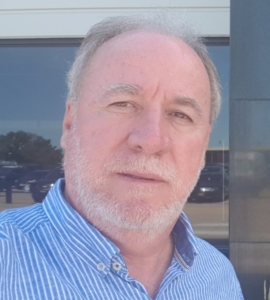 Agricultural Engineer and MS from the Federal University of Viçosa (UFV) and PhD in Agronomy from the University of Córdoba Spain. Professor at UFV since 1983 and currently Senior Professor at DEA-UFV. He coordinated several projects financed by CNPq, FAPEMIG, BNB, EMBRAPA and is currently the coordinator of a research program on the availability of water resources in Western Bahia with funds from AIBA (2017-2021). Created and coordinated for 20 years the GESAI (Group of Studies and Solutions for Irrigated Agriculture) - DEA/UFV. In 2008 he created the company Irriplus Tecnologia e Formação Ltda within the UFV technology company incubator. He is the founder and creator of the company IRRIGER, today a Valmont group company. He currently supervises four doctoral and two master's students in the DEA-UFV postgraduate program, having already supervised 52 master's and 27 doctoral dissertations. He has published about 5 books, 34 book chapters, 137 articles in a journal with editorial board, 388 full articles and abstracts published in conference proceedings and technical journals. Developed 12 software for use in the area of irrigation and water resources. President of the Brazilian Association of Irrigation and Drainage (Abid).
Agricultural Engineer and MS from the Federal University of Viçosa (UFV) and PhD in Agronomy from the University of Córdoba Spain. Professor at UFV since 1983 and currently Senior Professor at DEA-UFV. He coordinated several projects financed by CNPq, FAPEMIG, BNB, EMBRAPA and is currently the coordinator of a research program on the availability of water resources in Western Bahia with funds from AIBA (2017-2021). Created and coordinated for 20 years the GESAI (Group of Studies and Solutions for Irrigated Agriculture) - DEA/UFV. In 2008 he created the company Irriplus Tecnologia e Formação Ltda within the UFV technology company incubator. He is the founder and creator of the company IRRIGER, today a Valmont group company. He currently supervises four doctoral and two master's students in the DEA-UFV postgraduate program, having already supervised 52 master's and 27 doctoral dissertations. He has published about 5 books, 34 book chapters, 137 articles in a journal with editorial board, 388 full articles and abstracts published in conference proceedings and technical journals. Developed 12 software for use in the area of irrigation and water resources. President of the Brazilian Association of Irrigation and Drainage (Abid).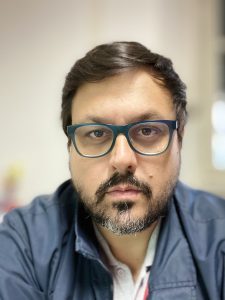 Associate Professor at the Department of Agriculture, Food and Environment (DAFE) at the University of Pisa. In 2010 he obtained a PhD in Environmental Hydronomy, with a thesis on “Measurement and Modeling of Water Exchange in the Atmospheric Continuum of Plant Soils and Water Stress Functions: Application in Olive groves”. In his high level educational background, he completed the level II Masters course in “Irrigation in the Mediterranean Environment” and a High Level Scientific Training Seminar on “Trends in plant ecophysiology and ecosystem ecology research”. He has been studying for 15 years the mathematical functions of stress and its empirical formulation of perennial woody plantations and vegetables under abiotic stresses such as drought and salinity. However, research activities were carried out with the aim of defining and transferring new strategies to optimize the management of water resources in the Mediterranean environment.
Associate Professor at the Department of Agriculture, Food and Environment (DAFE) at the University of Pisa. In 2010 he obtained a PhD in Environmental Hydronomy, with a thesis on “Measurement and Modeling of Water Exchange in the Atmospheric Continuum of Plant Soils and Water Stress Functions: Application in Olive groves”. In his high level educational background, he completed the level II Masters course in “Irrigation in the Mediterranean Environment” and a High Level Scientific Training Seminar on “Trends in plant ecophysiology and ecosystem ecology research”. He has been studying for 15 years the mathematical functions of stress and its empirical formulation of perennial woody plantations and vegetables under abiotic stresses such as drought and salinity. However, research activities were carried out with the aim of defining and transferring new strategies to optimize the management of water resources in the Mediterranean environment.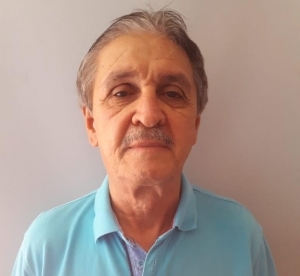 Graduated in Agronomy from UFC (1982), Master in Agronomy (Irrigation and Drainage) from UFC (1988) and Doctor in Irrigation and Drainage from Esalq/USP (1994). He is currently a Full Professor at UFC. Lines of work: Surface Irrigation, Agricultural Drainage, Resource allocation in irrigated agriculture
Graduated in Agronomy from UFC (1982), Master in Agronomy (Irrigation and Drainage) from UFC (1988) and Doctor in Irrigation and Drainage from Esalq/USP (1994). He is currently a Full Professor at UFC. Lines of work: Surface Irrigation, Agricultural Drainage, Resource allocation in irrigated agriculture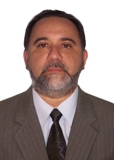 Graduated in Agronomy from the Federal University of Ceará (1989), Master in Irrigation and Drainage (2002) and Ph.D. in Agronomy / Phytotechnics (2011), from the same University. He is currently a Researcher at the Brazilian Agricultural Research Corporation, Embrapa Agroindústria Tropical, with experience in the field of Phytotechnics, working mainly in the management of cashew trees, with an emphasis on replacing crowns.
Graduated in Agronomy from the Federal University of Ceará (1989), Master in Irrigation and Drainage (2002) and Ph.D. in Agronomy / Phytotechnics (2011), from the same University. He is currently a Researcher at the Brazilian Agricultural Research Corporation, Embrapa Agroindústria Tropical, with experience in the field of Phytotechnics, working mainly in the management of cashew trees, with an emphasis on replacing crowns.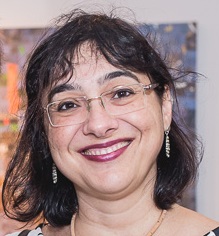 Graduated in computing with a master's and doctorate in environmental sciences. She was a visiting researcher at Wageningen University, Wageningen, Netherlands, from 2011-2012, working with the carbon and water footprint of agro-industrial products. She is a researcher at the Brazilian Agricultural Research Corporation, in the area of environmental impact assessment of agro-industrial technologies, and a professor at the Postgraduate Program in Natural Resources at the State University of Ceará, in the same area. He has experience in the development and application of environmental impact assessment models, with an emphasis on life cycle assessment (LCA), in the process of technological development and innovation. It has applied these models in the evaluation of agro-industrial processes and products during their development, aiming to reduce impacts before the technology transfer stage to society. It has evaluated and contributed to the improvement of agricultural processes (tropical fruits) and bioproducts from agro-industrial residues (eg, cellulose nanocrystals, biopolymeric films, bacterial cellulose, panels, and gelatin).
Graduated in computing with a master's and doctorate in environmental sciences. She was a visiting researcher at Wageningen University, Wageningen, Netherlands, from 2011-2012, working with the carbon and water footprint of agro-industrial products. She is a researcher at the Brazilian Agricultural Research Corporation, in the area of environmental impact assessment of agro-industrial technologies, and a professor at the Postgraduate Program in Natural Resources at the State University of Ceará, in the same area. He has experience in the development and application of environmental impact assessment models, with an emphasis on life cycle assessment (LCA), in the process of technological development and innovation. It has applied these models in the evaluation of agro-industrial processes and products during their development, aiming to reduce impacts before the technology transfer stage to society. It has evaluated and contributed to the improvement of agricultural processes (tropical fruits) and bioproducts from agro-industrial residues (eg, cellulose nanocrystals, biopolymeric films, bacterial cellulose, panels, and gelatin).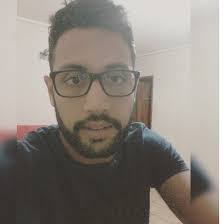 He has a technical/professional training in Occupational Safety (2016) and a Bachelor's Degree in Agricultural Engineering (2018), both from the Federal Institute of Education, Science and Technology Goiano - Campus Urutaí, and a Master's in Agronomy - Irrigation and Drainage from the Universidade Estadual Paulista "Júlio de Mesquita Filho" - UNESP/FCA - Campus Botucatu (2020). During graduation, I served as a full member of the collegiate of the Bachelor of Agricultural Engineering course (2016), with a scholarship from the Institutional Program in Technological Development and Innovation - PIBIT/CNPq (2016) and from the Institutional Program for Scientific Initiation Scholarships - PIBIC/IF Goiano (2017) and member of the research groups: Agricultural Engineering Research Nucleus - NUPEA - IF Goiano and Sustainable Techniques for Vegetable Production in the Cerrado Goiano - IF Goiano developing research projects in the areas of Energy in Agriculture, Irrigation Management and of Fertigation in vegetables. Has experience with AutoCad, Sketchup and Qgis software; Conducting agronomic experiments involving irrigation management based on soil attributes (tensiometry) and atmosphere (evaporimeter tank and empirical equations); Fertigation management; Water reuse in agriculture; Water quality for irrigation (water pH); Cultivation and irrigation management with hop (Humulus lupulus L.) var. Shell of. He is currently representative of students and also a doctoral candidate, both in the Postgraduate Program in Agricultural Engineering at the São Paulo State University "Júlio de Mesquita Filho" - UNESP/FCA - Campus Botucatu.
He has a technical/professional training in Occupational Safety (2016) and a Bachelor's Degree in Agricultural Engineering (2018), both from the Federal Institute of Education, Science and Technology Goiano - Campus Urutaí, and a Master's in Agronomy - Irrigation and Drainage from the Universidade Estadual Paulista "Júlio de Mesquita Filho" - UNESP/FCA - Campus Botucatu (2020). During graduation, I served as a full member of the collegiate of the Bachelor of Agricultural Engineering course (2016), with a scholarship from the Institutional Program in Technological Development and Innovation - PIBIT/CNPq (2016) and from the Institutional Program for Scientific Initiation Scholarships - PIBIC/IF Goiano (2017) and member of the research groups: Agricultural Engineering Research Nucleus - NUPEA - IF Goiano and Sustainable Techniques for Vegetable Production in the Cerrado Goiano - IF Goiano developing research projects in the areas of Energy in Agriculture, Irrigation Management and of Fertigation in vegetables. Has experience with AutoCad, Sketchup and Qgis software; Conducting agronomic experiments involving irrigation management based on soil attributes (tensiometry) and atmosphere (evaporimeter tank and empirical equations); Fertigation management; Water reuse in agriculture; Water quality for irrigation (water pH); Cultivation and irrigation management with hop (Humulus lupulus L.) var. Shell of. He is currently representative of students and also a doctoral candidate, both in the Postgraduate Program in Agricultural Engineering at the São Paulo State University "Júlio de Mesquita Filho" - UNESP/FCA - Campus Botucatu.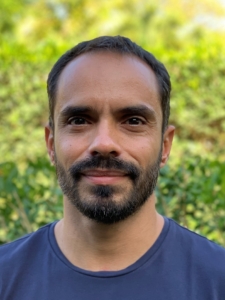 Pedro Medeiros is a professor at the Federal Institute of Education, Science and Technology of Ceará - IFCE, in the area of Environmental and Sanitary Engineering, teaching on hydrology, hydraulics and areas related to water resources since 2010. He is a civil engineer graduated from the Federal University of Ceará - UFC (2002), and worked in consultancy in the design of hydraulic works, hydrological studies and water resources planning. He completed a master's (2005) and a doctorate (2009) degree in Civil Engineering - Water Resources at UFC, the latter with a sandwich period at the German Center for Research in Geosciences (GeoForschungsZentrum - GFZ). He focused his academic studies on physical-mathematical monitoring and modeling of water and sediment flows in semiarid environments. In 2018-2019, he held a post-doctoral internship as a visiting professor at the University of Illinois - Urbana-Champaign, USA, in the field of socio-hydrology. Currently, he develops research and supervises master's and doctoral works at UFC (Postgraduate Program in Agricultural Engineering) and at IFCE (Postgraduate Program in Renewable Energies), with an emphasis on the development of methods for the management of small dams.
Pedro Medeiros is a professor at the Federal Institute of Education, Science and Technology of Ceará - IFCE, in the area of Environmental and Sanitary Engineering, teaching on hydrology, hydraulics and areas related to water resources since 2010. He is a civil engineer graduated from the Federal University of Ceará - UFC (2002), and worked in consultancy in the design of hydraulic works, hydrological studies and water resources planning. He completed a master's (2005) and a doctorate (2009) degree in Civil Engineering - Water Resources at UFC, the latter with a sandwich period at the German Center for Research in Geosciences (GeoForschungsZentrum - GFZ). He focused his academic studies on physical-mathematical monitoring and modeling of water and sediment flows in semiarid environments. In 2018-2019, he held a post-doctoral internship as a visiting professor at the University of Illinois - Urbana-Champaign, USA, in the field of socio-hydrology. Currently, he develops research and supervises master's and doctoral works at UFC (Postgraduate Program in Agricultural Engineering) and at IFCE (Postgraduate Program in Renewable Energies), with an emphasis on the development of methods for the management of small dams.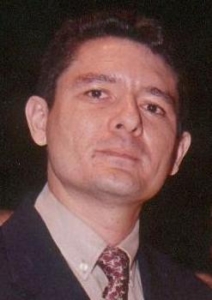 Graduated in Agricultural Engineering from the Federal University of Ceará (1997), Master's in Animal Science from the Federal University of Viçosa (1999) and Ph.D. in Animal Science from the Federal University of Viçosa (2003). Since July 12, 2021, he has been a professor at the Department of Animal Science at the Federal University of Ceará. He is an external evaluator at the National Council for Scientific and Technological Development, at the Research Support Foundations of São Paulo, Minas Gerais, Ceará, Pernambuco, Sergipe, Maranhão and Rondônia, at EMBRAPA, at the Federal Universities of Maranhão and Rio Grande do Norte, from the State of Bahia, from the State of Ceará and ad-hoc reviewer of the magazines Grass and Forage Science, Animal, Science of the Total Environment, Journal of Agricultural Science, Livestock Science, Brazilian Agricultural Research, Revista Ciência Agronômica, Acta Scientiarum, Semina- Agricultural Sciences, Brazilian Journal of Agricultural Sciences and Acta Veterinaria Brasilica, of the Brazilian Society of Animal Science and the Northeastern Society of Animal Production. He has experience in Animal Science, with an emphasis on Pasture Management and Conservation, acting on the following topics: ecophysiology and management of forage plants, forage conservation, use of alternative foods, bioeconomic analysis of animal production systems and Modeling in pastoral ecosystems .
Graduated in Agricultural Engineering from the Federal University of Ceará (1997), Master's in Animal Science from the Federal University of Viçosa (1999) and Ph.D. in Animal Science from the Federal University of Viçosa (2003). Since July 12, 2021, he has been a professor at the Department of Animal Science at the Federal University of Ceará. He is an external evaluator at the National Council for Scientific and Technological Development, at the Research Support Foundations of São Paulo, Minas Gerais, Ceará, Pernambuco, Sergipe, Maranhão and Rondônia, at EMBRAPA, at the Federal Universities of Maranhão and Rio Grande do Norte, from the State of Bahia, from the State of Ceará and ad-hoc reviewer of the magazines Grass and Forage Science, Animal, Science of the Total Environment, Journal of Agricultural Science, Livestock Science, Brazilian Agricultural Research, Revista Ciência Agronômica, Acta Scientiarum, Semina- Agricultural Sciences, Brazilian Journal of Agricultural Sciences and Acta Veterinaria Brasilica, of the Brazilian Society of Animal Science and the Northeastern Society of Animal Production. He has experience in Animal Science, with an emphasis on Pasture Management and Conservation, acting on the following topics: ecophysiology and management of forage plants, forage conservation, use of alternative foods, bioeconomic analysis of animal production systems and Modeling in pastoral ecosystems .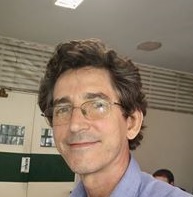 Graduated in Agronomy from the Federal University of Ceará (1988), Master in Irrigation and Drainage from the University of São Paulo (1992) and Ph.D. in Agricultural and Biosystems Engineering - University of California - Davis (2000). He is currently a professor at the Federal University of Ceará. He has experience in the field of Agricultural Engineering, with an emphasis on Geoprocessing, Precision Agriculture, Irrigation Management and Optimization.
Graduated in Agronomy from the Federal University of Ceará (1988), Master in Irrigation and Drainage from the University of São Paulo (1992) and Ph.D. in Agricultural and Biosystems Engineering - University of California - Davis (2000). He is currently a professor at the Federal University of Ceará. He has experience in the field of Agricultural Engineering, with an emphasis on Geoprocessing, Precision Agriculture, Irrigation Management and Optimization.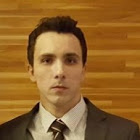 Bachelor's Degree in Computer Science from the Federal University of São Carlos (2006) and Master's Degree in Computer Science from the Federal University of São Carlos (2013) in the area of privacy. Software Engineer - IBM BRASIL IND.MAQ. E SERVICOS LTDA since 2009. Experience in Computer Science, with emphasis on Computer Systems Architecture, working mainly on the following topics: cross-platform software, systems architecture, creation of new products and data science. Doctor by the Agricultural Systems Engineering program at the "Luiz de Queiroz" School of Agriculture ESALQ/USP, working in the field of water status assessment through the use of neural networks and thermal imaging.
Bachelor's Degree in Computer Science from the Federal University of São Carlos (2006) and Master's Degree in Computer Science from the Federal University of São Carlos (2013) in the area of privacy. Software Engineer - IBM BRASIL IND.MAQ. E SERVICOS LTDA since 2009. Experience in Computer Science, with emphasis on Computer Systems Architecture, working mainly on the following topics: cross-platform software, systems architecture, creation of new products and data science. Doctor by the Agricultural Systems Engineering program at the "Luiz de Queiroz" School of Agriculture ESALQ/USP, working in the field of water status assessment through the use of neural networks and thermal imaging. Agronomist and Technical Commercial Consultant at Aqua-4D - Brazil. Specializations: Post Graduate at U.R.F.PE. in Irrigation - 1987 Drip Irrigation, Filtration System, automation and valves - Israel - 1995 and 1998. Experience: Management of irrigation and ferti-irrigation in fruit and vegetables. Management in organo-mineral fertilization.
Agronomist and Technical Commercial Consultant at Aqua-4D - Brazil. Specializations: Post Graduate at U.R.F.PE. in Irrigation - 1987 Drip Irrigation, Filtration System, automation and valves - Israel - 1995 and 1998. Experience: Management of irrigation and ferti-irrigation in fruit and vegetables. Management in organo-mineral fertilization.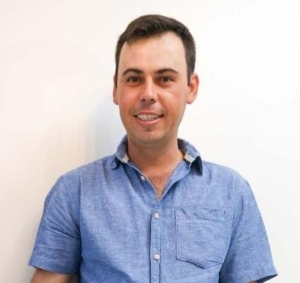 Graduated in Agronomy from the Higher Education Center of Campos Gerais (2008). Has experience in the field of Agronomy, with an emphasis on Plant Health. Specialist in Cotton Diseases at Desafios Agro Consultoria Planning and Research in Agriculture.
Graduated in Agronomy from the Higher Education Center of Campos Gerais (2008). Has experience in the field of Agronomy, with an emphasis on Plant Health. Specialist in Cotton Diseases at Desafios Agro Consultoria Planning and Research in Agriculture.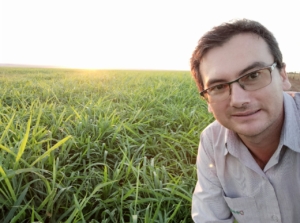 Master in Agronomy from the Federal University of Mato Grosso do Sul. Currently, researcher/consultant at Desafios Agro, research, planning and consultancy Ltda.
Master in Agronomy from the Federal University of Mato Grosso do Sul. Currently, researcher/consultant at Desafios Agro, research, planning and consultancy Ltda.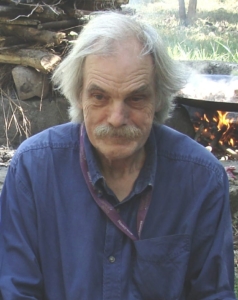 Tammo Steenhuis is a professor in the Department of Biological and Environmental Engineering. He is also one of the faculty members who lead the dynamic and innovative Grupo Solo e Água. S&W's broad mission relates to the management of soil and water resources and seeks to improve understanding of the physical, chemical and biological processes related to water flow. The ultimate goal is to improve and protect water resources and ecological systems around the world in a socially conscious way.
Tammo Steenhuis is a professor in the Department of Biological and Environmental Engineering. He is also one of the faculty members who lead the dynamic and innovative Grupo Solo e Água. S&W's broad mission relates to the management of soil and water resources and seeks to improve understanding of the physical, chemical and biological processes related to water flow. The ultimate goal is to improve and protect water resources and ecological systems around the world in a socially conscious way.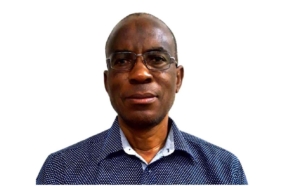 Dr. Senzanje holds a PhD in Agricultural Engineering from Colorado State University, USA, and teaches Irrigation Engineering and Soil and Water Conservation Engineering in the UKZN's Bioresource Engineering Program. He has received the Best Speaker in Agricultural Engineering Award 5 times since 2008. He was Coordinator of the Bioresources Engineering Program from 2011 to 2015. He has published more than 40 articles in journals, 10 book chapters and co-edited 2 books in the areas of irrigation and water management in agriculture.
Dr. Senzanje holds a PhD in Agricultural Engineering from Colorado State University, USA, and teaches Irrigation Engineering and Soil and Water Conservation Engineering in the UKZN's Bioresource Engineering Program. He has received the Best Speaker in Agricultural Engineering Award 5 times since 2008. He was Coordinator of the Bioresources Engineering Program from 2011 to 2015. He has published more than 40 articles in journals, 10 book chapters and co-edited 2 books in the areas of irrigation and water management in agriculture.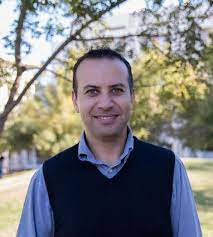 Andre Daccache is currently an assistant professor in the Department of Biological and Agricultural Engineering at the University of California, Davis. His research interest is in irrigation engineering, water resources management and the impact of climate change on the agricultural sector.
Andre Daccache is currently an assistant professor in the Department of Biological and Agricultural Engineering at the University of California, Davis. His research interest is in irrigation engineering, water resources management and the impact of climate change on the agricultural sector.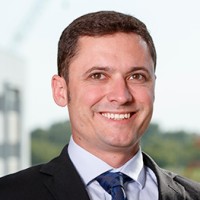 Agronomist and Master in Plant Production (Planning and Management of Water Resources) from the Federal University of Espírito Santo (CCA - UFES), Doctor in Agronomic Engineering (Water and Soil) from the State University of Campinas (FEAGRI - UNICAMP). He has worked as a researcher at the University of Nebraska-UNL (US) (2015-2020). He is currently a researcher at the Luís de Queiroz School of Agriculture of the University of São Paulo working in the area of remote sensing for Improvement of irrigation water management (basal cultivation coefficient, water requirements and biomass modeling, water productivity), with experience in underground drip irrigation, water reuse, gas exchange and water quality. In addition, he works as an associate editor at Bragantia Journal.
Agronomist and Master in Plant Production (Planning and Management of Water Resources) from the Federal University of Espírito Santo (CCA - UFES), Doctor in Agronomic Engineering (Water and Soil) from the State University of Campinas (FEAGRI - UNICAMP). He has worked as a researcher at the University of Nebraska-UNL (US) (2015-2020). He is currently a researcher at the Luís de Queiroz School of Agriculture of the University of São Paulo working in the area of remote sensing for Improvement of irrigation water management (basal cultivation coefficient, water requirements and biomass modeling, water productivity), with experience in underground drip irrigation, water reuse, gas exchange and water quality. In addition, he works as an associate editor at Bragantia Journal.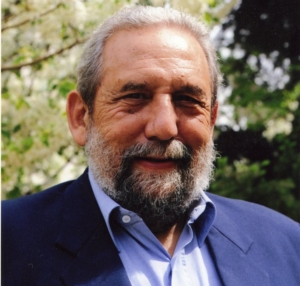 Graduated in Agronomy from the Technical University of Lisbon (1969), Master in Operational and Applied Hydrology - Swiss Federal Institute of Technology of Lausanne (1972) and Ph.D. in Hydrology, from the Swiss Federal Institute of Technology Zurich (1977). He was a professor in the Disciplines of Irrigation and Soil and Water Management and Conservation at the Instituto Superior de Agronomia, Technical University of Lisbon, between 1980 and 2012. He is currently full professor emeritus at the Department of Biosystems Engineering - CEER/ISA/UTL and he is a visiting professor in the Post-Graduate Program in Irrigation, at the Instituto Agronômico Mediterrânea - IAM, in Bari, Italy, and an expert consultant at FAO on matters of irrigation, soil and water management and conservation.
Graduated in Agronomy from the Technical University of Lisbon (1969), Master in Operational and Applied Hydrology - Swiss Federal Institute of Technology of Lausanne (1972) and Ph.D. in Hydrology, from the Swiss Federal Institute of Technology Zurich (1977). He was a professor in the Disciplines of Irrigation and Soil and Water Management and Conservation at the Instituto Superior de Agronomia, Technical University of Lisbon, between 1980 and 2012. He is currently full professor emeritus at the Department of Biosystems Engineering - CEER/ISA/UTL and he is a visiting professor in the Post-Graduate Program in Irrigation, at the Instituto Agronômico Mediterrânea - IAM, in Bari, Italy, and an expert consultant at FAO on matters of irrigation, soil and water management and conservation.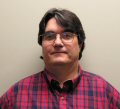 Agronomist Engineer. Dr. Vories' research interests include developing and evaluating methods to improve irrigation water management and reduce negative impacts on water quality, and to determine the benefits and limitations of site-specific technologies for irrigated agriculture.
Agronomist Engineer. Dr. Vories' research interests include developing and evaluating methods to improve irrigation water management and reduce negative impacts on water quality, and to determine the benefits and limitations of site-specific technologies for irrigated agriculture.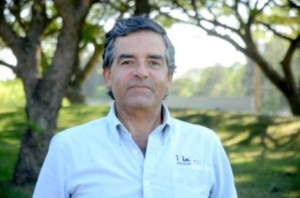 Dr. Claudio García is an Agricultural Engineer, graduated from the University of the Republic (Uruguay), specialist in water management in agricultural and livestock production systems irrigation systems and methods. Master and Doctorate of the Federal University of Santa María (Brazil). Dedicated to the uninterrupted research since 1990 at INIA Las Brujas (Uruguay), participating and leading projects National and international. He has more than 70 publications in national and international magazines both in Peer-reviewed magazines such as outreach and dissemination magazines for technicians and producers, all related to the theme of irrigation. More than 50 presentations in meetings, national and international symposia, seminars and congresses. Author of more than 10 chapters in books on the subject of irrigation. He carried out more than 40 tutorials and co-tutorials of
undergraduate and graduate students, both nationally and internationally. Since 2015, he has been a member of the technical commission of Section I of the CIGR (International Commission of Agricultural and Biosystems Engineering) www.cigr.org. In addition it is member of the board of directors of GWP-Uruguay (Global Water Partnership) https://www.gwp.org.
Dr. Claudio García is an Agricultural Engineer, graduated from the University of the Republic (Uruguay), specialist in water management in agricultural and livestock production systems irrigation systems and methods. Master and Doctorate of the Federal University of Santa María (Brazil). Dedicated to the uninterrupted research since 1990 at INIA Las Brujas (Uruguay), participating and leading projects National and international. He has more than 70 publications in national and international magazines both in Peer-reviewed magazines such as outreach and dissemination magazines for technicians and producers, all related to the theme of irrigation. More than 50 presentations in meetings, national and international symposia, seminars and congresses. Author of more than 10 chapters in books on the subject of irrigation. He carried out more than 40 tutorials and co-tutorials of
undergraduate and graduate students, both nationally and internationally. Since 2015, he has been a member of the technical commission of Section I of the CIGR (International Commission of Agricultural and Biosystems Engineering) www.cigr.org. In addition it is member of the board of directors of GWP-Uruguay (Global Water Partnership) https://www.gwp.org.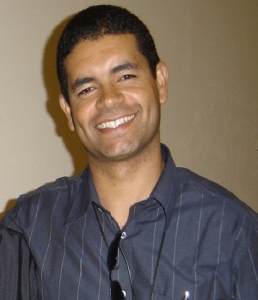 He studied for a doctorate and a master's degree at the Department of Agricultural Systems Engineering at ESALQ/USP in the area of irrigation and drainage. He has a PhD in sandwich at the National Center for Engineering in Agriculture at the University of Southern Queensland - Australia. He is an Agronomist from the Federal University of Alagoas. He is a technician in agriculture from the Federal Agrotechnical School of Satuba - AL. He works as a professor at the Federal University of Alagoas. He has experience and works in the areas of Efficiency in the use of water and energy in agricultural and forestry crops, Irrigation Engineering, Evaluation and Development of Irrigation Equipment, Forestry/Agricultural Experimentation, Ecophysiology, Mathematical Modeling, Energy Balance, Water Resources Management and Use of by-products in agriculture.
He studied for a doctorate and a master's degree at the Department of Agricultural Systems Engineering at ESALQ/USP in the area of irrigation and drainage. He has a PhD in sandwich at the National Center for Engineering in Agriculture at the University of Southern Queensland - Australia. He is an Agronomist from the Federal University of Alagoas. He is a technician in agriculture from the Federal Agrotechnical School of Satuba - AL. He works as a professor at the Federal University of Alagoas. He has experience and works in the areas of Efficiency in the use of water and energy in agricultural and forestry crops, Irrigation Engineering, Evaluation and Development of Irrigation Equipment, Forestry/Agricultural Experimentation, Ecophysiology, Mathematical Modeling, Energy Balance, Water Resources Management and Use of by-products in agriculture.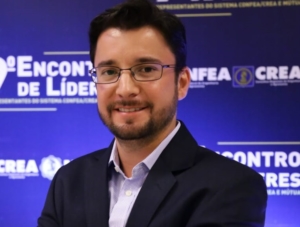 Agricultural Engineer (2008) and Master in Agronomy from the State University of Maringá - UEM (2010) (CAPES 5) with research development for his Dissertation at the Agronomic Institute of Paraná (IAPAR), and Doctor in Irrigation and Drainage by the Superior School of Agriculture Luiz de Queiroz -ESALQ/USP (2014) (CAPES 5). He held a Doctorate in Sandwich at the University of California/Davis - UC DAVIS, for a period of one year (2013), with a current Scholarship from the CNPq/CsF. Since 2014 he is Adjunct Professor at the Federal University of Mato Grosso do Sul - UFMS/CPCS. He was Coordinator of the Specialized Chamber of Agronomy at CREA/MS (2020/21). In 2020 he was elected General Director of INOVAGRI CENTRO-OESTE and in 2021 Deputy Director of Planning and Regional Representation of the Brazilian Association of Irrigation and Drainage-ABID. It operates mainly in the areas of: Irrigation Management, Irrigation Economic Feasibility, Agrometeorology, Climate Zoning, Water Stress, Modeling and has been developing Remote Sensing activities applied to water resources management in partnership with the Water for Food Robert B. Daugherty Institute of the Daugherty Institute. University of Nebraska - UNL/USA, under the supervision of Professor Christopher Neale in his Post Doc project. He is leader of the Research Group on Economic Feasibility of Irrigation - GPVI. Acts as Technical Expert of the State Public Ministry - MPMS in projects involving water resources. Among the various representations in councils and commissions, his active and participative profile stands out as an academic, having been a student representative at the ESALQ-USP Congregation, at the Research Council (CoP/USP) and at the Graduate Council (CoPGr/ USP). He was also President of the Association of Graduate Students (APG-ESALQ) during his PhD and President of the Academic Center of Agricultural Engineering (CAEAG/UEM), during his graduation
Agricultural Engineer (2008) and Master in Agronomy from the State University of Maringá - UEM (2010) (CAPES 5) with research development for his Dissertation at the Agronomic Institute of Paraná (IAPAR), and Doctor in Irrigation and Drainage by the Superior School of Agriculture Luiz de Queiroz -ESALQ/USP (2014) (CAPES 5). He held a Doctorate in Sandwich at the University of California/Davis - UC DAVIS, for a period of one year (2013), with a current Scholarship from the CNPq/CsF. Since 2014 he is Adjunct Professor at the Federal University of Mato Grosso do Sul - UFMS/CPCS. He was Coordinator of the Specialized Chamber of Agronomy at CREA/MS (2020/21). In 2020 he was elected General Director of INOVAGRI CENTRO-OESTE and in 2021 Deputy Director of Planning and Regional Representation of the Brazilian Association of Irrigation and Drainage-ABID. It operates mainly in the areas of: Irrigation Management, Irrigation Economic Feasibility, Agrometeorology, Climate Zoning, Water Stress, Modeling and has been developing Remote Sensing activities applied to water resources management in partnership with the Water for Food Robert B. Daugherty Institute of the Daugherty Institute. University of Nebraska - UNL/USA, under the supervision of Professor Christopher Neale in his Post Doc project. He is leader of the Research Group on Economic Feasibility of Irrigation - GPVI. Acts as Technical Expert of the State Public Ministry - MPMS in projects involving water resources. Among the various representations in councils and commissions, his active and participative profile stands out as an academic, having been a student representative at the ESALQ-USP Congregation, at the Research Council (CoP/USP) and at the Graduate Council (CoPGr/ USP). He was also President of the Association of Graduate Students (APG-ESALQ) during his PhD and President of the Academic Center of Agricultural Engineering (CAEAG/UEM), during his graduation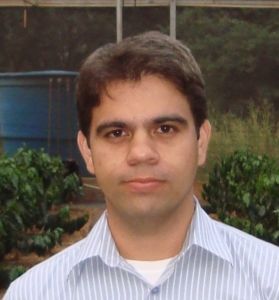 Graduated in Agricultural Engineering from FAZU (2009) and Technology in Irrigation and Drainage from IFTM (2008), Masters in Irrigation and Drainage from Luiz de Queiroz College of Agriculture -ESALQ / USP and Doctorate (PhD) in Agricultural Systems Engineering from ESALQ / USP, with a Doctorate in Sandwich at the University of California / Davis - UC DAVIS. He is currently Adjunct Professor A1 at ICIAG / Institute of Agricultural Sciences at the Federal University of Uberlândia UFU / Monte Carmelo Campus, teaching 3 undergraduate courses and 1 postgraduate course. He has published 28 scientific articles in indexed journals and dozens of works in event proceedings. It operates mainly in the areas of: Water and Soil Engineering, Agrometeorology, Crop Water Relations / Irrigated Coffee Growing and Water Stress / Deficit Irrigation.
Graduated in Agricultural Engineering from FAZU (2009) and Technology in Irrigation and Drainage from IFTM (2008), Masters in Irrigation and Drainage from Luiz de Queiroz College of Agriculture -ESALQ / USP and Doctorate (PhD) in Agricultural Systems Engineering from ESALQ / USP, with a Doctorate in Sandwich at the University of California / Davis - UC DAVIS. He is currently Adjunct Professor A1 at ICIAG / Institute of Agricultural Sciences at the Federal University of Uberlândia UFU / Monte Carmelo Campus, teaching 3 undergraduate courses and 1 postgraduate course. He has published 28 scientific articles in indexed journals and dozens of works in event proceedings. It operates mainly in the areas of: Water and Soil Engineering, Agrometeorology, Crop Water Relations / Irrigated Coffee Growing and Water Stress / Deficit Irrigation.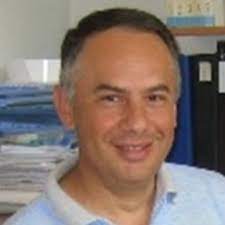 Graduated in Civil Hydraulic Engineering at the University of Palermo in July 1989, discussing a thesis entitled “On the evaluation of resistance to movement in riverbeds with background vegetation”. In 1991 he qualified for the profession of Engineer and has been registered in the Register of Engineers of the Province of Palermo since 18.03.91 al n. 4638. In 1995 he obtained the title of Doctor in Research in Hydronomy. Research areas: Since 1991 research activities in the Hydraulics Section of the ITAF of the University of Palermo activity, which concerns in particular the sectors of Irrigation and Agricultural Hydrology, has materialized in publications indicated and numbered in the attached list, inspired or inspired (orally or on poster) in national and international meetings and meetings. reference to the irrigation sector, a study of issues related to the evaluation of continuous pressure losses in small diameter plastic pipes and those caused in the dispensing wings of micro-irrigation systems from the presence of drippers. In addition to the area of Soil Hydrology and Irrigation Management.
Graduated in Civil Hydraulic Engineering at the University of Palermo in July 1989, discussing a thesis entitled “On the evaluation of resistance to movement in riverbeds with background vegetation”. In 1991 he qualified for the profession of Engineer and has been registered in the Register of Engineers of the Province of Palermo since 18.03.91 al n. 4638. In 1995 he obtained the title of Doctor in Research in Hydronomy. Research areas: Since 1991 research activities in the Hydraulics Section of the ITAF of the University of Palermo activity, which concerns in particular the sectors of Irrigation and Agricultural Hydrology, has materialized in publications indicated and numbered in the attached list, inspired or inspired (orally or on poster) in national and international meetings and meetings. reference to the irrigation sector, a study of issues related to the evaluation of continuous pressure losses in small diameter plastic pipes and those caused in the dispensing wings of micro-irrigation systems from the presence of drippers. In addition to the area of Soil Hydrology and Irrigation Management.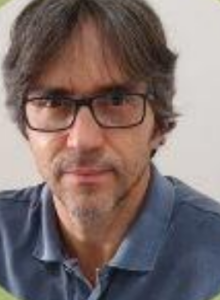 Agricultural Engineer graduated from the Federal University of Ceará (UFC - Fortaleza-CE), Master in Agronomy (Phytotechnics) from the Federal University of Viçosa (UFV - Viçosa-MG). He completed his doctorate in Agronomy (Vegetal Production) at the São Paulo State University Júlio de Mesquita Filho (Unesp - Jaboticabal-SP) on January 15, 2004. Between Feb./2004 and Nov./2005, he was a CNPq Scholarship Researcher (DCR) , working at Embrapa Agroindústria Tropical. Since then, he has been a permanent Professor at UFC, teaching subjects related to Fruit Growing and Plant Nutrition in Undergraduate and Graduate Studies. Between Jul./2007 and Jun./2011 he was vice coordinator of the Undergraduate Course in Agronomy. Between Jan./2008 and Dec./2009 he was deputy coordinator of the Postgraduate Program in Agronomy (Fitotechnics) and from Jan./2010 until Dec./2013 he was coordinator of this Postgraduate Program. From Jan./2006 to 2010 he was a contributor to PET-Agonomia (MEC/SESu). Reporter of scientific journals. He has published 46 articles in scientific journals, 5 book chapters and 80 works in event proceedings. Participated in the organization of 2 national and 1 international congresses (all as treasurer). Organized the 1st Graduate Seminar in Agronomy/Phytotechnics at UFC, in Dec./2013. He has supervised 28 undergraduate monographs, 20 scientific initiation scholarship holders (PIBIC - CNPq/UFC or PET - MEC/SESu), 13 Master's Dissertations (two as co-advisor) and 9 Doctoral Theses. Supervised 2 postdoctoral fellows and 1 DCR fellow. He currently advises 2 doctoral students, 3 master's and 8 undergraduate students (all scholarship holders: 1 PIBIC scholarship holder, 1 Teaching Initiation scholarship holder, 5 Academic Initiation scholarship holders 1 extension scholarship holder). She works in the field of Agronomy, with an emphasis on Fruit Growing, mainly on the following topics: Nutrition and Fertilization and Cultural Management, with an emphasis on the cultures of Guava, Cashew, Pitaya and Coconut.
Agricultural Engineer graduated from the Federal University of Ceará (UFC - Fortaleza-CE), Master in Agronomy (Phytotechnics) from the Federal University of Viçosa (UFV - Viçosa-MG). He completed his doctorate in Agronomy (Vegetal Production) at the São Paulo State University Júlio de Mesquita Filho (Unesp - Jaboticabal-SP) on January 15, 2004. Between Feb./2004 and Nov./2005, he was a CNPq Scholarship Researcher (DCR) , working at Embrapa Agroindústria Tropical. Since then, he has been a permanent Professor at UFC, teaching subjects related to Fruit Growing and Plant Nutrition in Undergraduate and Graduate Studies. Between Jul./2007 and Jun./2011 he was vice coordinator of the Undergraduate Course in Agronomy. Between Jan./2008 and Dec./2009 he was deputy coordinator of the Postgraduate Program in Agronomy (Fitotechnics) and from Jan./2010 until Dec./2013 he was coordinator of this Postgraduate Program. From Jan./2006 to 2010 he was a contributor to PET-Agonomia (MEC/SESu). Reporter of scientific journals. He has published 46 articles in scientific journals, 5 book chapters and 80 works in event proceedings. Participated in the organization of 2 national and 1 international congresses (all as treasurer). Organized the 1st Graduate Seminar in Agronomy/Phytotechnics at UFC, in Dec./2013. He has supervised 28 undergraduate monographs, 20 scientific initiation scholarship holders (PIBIC - CNPq/UFC or PET - MEC/SESu), 13 Master's Dissertations (two as co-advisor) and 9 Doctoral Theses. Supervised 2 postdoctoral fellows and 1 DCR fellow. He currently advises 2 doctoral students, 3 master's and 8 undergraduate students (all scholarship holders: 1 PIBIC scholarship holder, 1 Teaching Initiation scholarship holder, 5 Academic Initiation scholarship holders 1 extension scholarship holder). She works in the field of Agronomy, with an emphasis on Fruit Growing, mainly on the following topics: Nutrition and Fertilization and Cultural Management, with an emphasis on the cultures of Guava, Cashew, Pitaya and Coconut.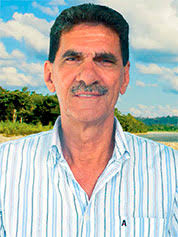 Graduated in Agronomic Engineering from the Federal Rural University of Pernambuco (1968), Master in Animal Nutrition from the University of São Paulo (1980), PhD in Tropical Agriculture from James CooK University, Autralia (2006). He is a researcher at the Brazilian Agricultural Research Corporation - Embrapa, since 1985. He has experience in Animal Science, with an emphasis on Pasture Management and Conservation, working mainly on the following topics: leguminous trees, evaluation of legumes, gliricidia sepium, silvipastoral systems, systems of integration Crop/Livestock/Forest and forage legumes. Conducts research and technology transfer projects in the areas of elephant grass species selection for forage and for energy biomass, selection of native forage legumes, evaluation of ILPF systems for NE conditions.
Graduated in Agronomic Engineering from the Federal Rural University of Pernambuco (1968), Master in Animal Nutrition from the University of São Paulo (1980), PhD in Tropical Agriculture from James CooK University, Autralia (2006). He is a researcher at the Brazilian Agricultural Research Corporation - Embrapa, since 1985. He has experience in Animal Science, with an emphasis on Pasture Management and Conservation, working mainly on the following topics: leguminous trees, evaluation of legumes, gliricidia sepium, silvipastoral systems, systems of integration Crop/Livestock/Forest and forage legumes. Conducts research and technology transfer projects in the areas of elephant grass species selection for forage and for energy biomass, selection of native forage legumes, evaluation of ILPF systems for NE conditions. Graduated in Agronomy from the Federal University of Viçosa (1977), Master's in Agricultural Engineering from the Federal University of Viçosa (1979) and Ph.D. in Agronomy from the Luiz de Queiroz School of Agriculture (1986). He retired as Full Professor at the University of São Paulo, Campus Luiz de Queiroz, in June 2018. He was a Technological Innovation Scholar (BIT) from the Cearense Foundation for Scientific and Technological Development Support - FUNCAP, from 2018 to September 2020. He was Head of the Department of Biosystems Engineering at ESALQ/USP from 03/2003 to 03/2007 and 03/2011 to 03/2013. He was Coordinator of the Graduate Program in Irrigation and Drainage at ESALQ/USP from 11/2002 to 11/2008. He was Coordinator of the National Institute of Science and Technology in Irrigation Engineering (INCT-EI) which is headquartered at ESALQ/USP from 2008 to 2018. He is leader of the CNPq Research Group called: Metrology, Standardization and Quality in Irrigation and Drainage . Coordinated the Irrigation Advisory Service Project - SAI, a project carried out in the Baixo Acarau Irrigation District-CE. He was a member of the CNPq Agricultural Engineering Advisory Committee from July 1, 2013 to June 30, 2016 (as Alternate) and from October 1, 2016 to June 30, 2019 (as Holder ). He has experience in Agronomy, with an emphasis on Irrigation, working mainly on the following topics: irrigation management, hydraulic irrigation systems, optimization of water use, evapotranspiration, fertigation and simulation.
Graduated in Agronomy from the Federal University of Viçosa (1977), Master's in Agricultural Engineering from the Federal University of Viçosa (1979) and Ph.D. in Agronomy from the Luiz de Queiroz School of Agriculture (1986). He retired as Full Professor at the University of São Paulo, Campus Luiz de Queiroz, in June 2018. He was a Technological Innovation Scholar (BIT) from the Cearense Foundation for Scientific and Technological Development Support - FUNCAP, from 2018 to September 2020. He was Head of the Department of Biosystems Engineering at ESALQ/USP from 03/2003 to 03/2007 and 03/2011 to 03/2013. He was Coordinator of the Graduate Program in Irrigation and Drainage at ESALQ/USP from 11/2002 to 11/2008. He was Coordinator of the National Institute of Science and Technology in Irrigation Engineering (INCT-EI) which is headquartered at ESALQ/USP from 2008 to 2018. He is leader of the CNPq Research Group called: Metrology, Standardization and Quality in Irrigation and Drainage . Coordinated the Irrigation Advisory Service Project - SAI, a project carried out in the Baixo Acarau Irrigation District-CE. He was a member of the CNPq Agricultural Engineering Advisory Committee from July 1, 2013 to June 30, 2016 (as Alternate) and from October 1, 2016 to June 30, 2019 (as Holder ). He has experience in Agronomy, with an emphasis on Irrigation, working mainly on the following topics: irrigation management, hydraulic irrigation systems, optimization of water use, evapotranspiration, fertigation and simulation.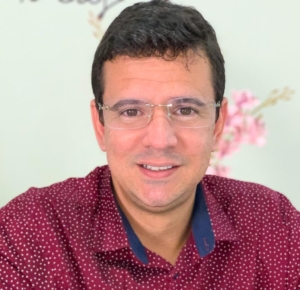 Master's Degree in Agricultural Engineering with an Emphasis on Irrigation, (2015) UNIVASF. Specialization in labor engineering (2012) INESB/Montenegro. Agronomic engineering (2006) UNEB. Professional with 16 years of experience in Irrigation. He is a Consultant and Managing Partner at TOP IRRIGA. Assignments: Irrigation systems designer; Consultancy in irrigation management, Training/lectures promoter; Development of precision automation in agriculture 4.0 and provision of services aimed at scientific research in water and fertilizer management.
Master's Degree in Agricultural Engineering with an Emphasis on Irrigation, (2015) UNIVASF. Specialization in labor engineering (2012) INESB/Montenegro. Agronomic engineering (2006) UNEB. Professional with 16 years of experience in Irrigation. He is a Consultant and Managing Partner at TOP IRRIGA. Assignments: Irrigation systems designer; Consultancy in irrigation management, Training/lectures promoter; Development of precision automation in agriculture 4.0 and provision of services aimed at scientific research in water and fertilizer management.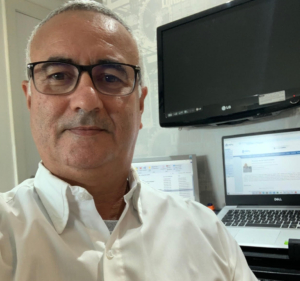 Graduated in Animal Science from the Federal University of Paraíba (1986), Master in Animal Science (1993) and Ph.D. in Animal Science (1997) from the Federal University of Viçosa. He is currently Researcher A at Embrapa Semiárido, permanent professor at the Postgraduate Program in Animal Science at UNIVASF and at the Integrated Doctoral Program in Animal Science (UFPB/UFC). CNPq Research Productivity Scholarship. Visiting Researcher, Animal Science - UCDAVIS (2008-2009). He has experience in Animal Science, with an emphasis on Animal Feed Evaluation, acting on the following topics: semiarid, water in ruminant production, biosaline agriculture, nutrition and feeding of ruminants, xerophytic and halophyte forages.
Graduated in Animal Science from the Federal University of Paraíba (1986), Master in Animal Science (1993) and Ph.D. in Animal Science (1997) from the Federal University of Viçosa. He is currently Researcher A at Embrapa Semiárido, permanent professor at the Postgraduate Program in Animal Science at UNIVASF and at the Integrated Doctoral Program in Animal Science (UFPB/UFC). CNPq Research Productivity Scholarship. Visiting Researcher, Animal Science - UCDAVIS (2008-2009). He has experience in Animal Science, with an emphasis on Animal Feed Evaluation, acting on the following topics: semiarid, water in ruminant production, biosaline agriculture, nutrition and feeding of ruminants, xerophytic and halophyte forages.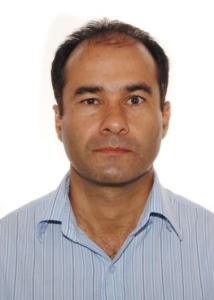 Graduated in Agronomy from the Federal University of Viçosa (1990), Master's in Agricultural Engineering from the Federal University of Viçosa (1992) and Ph.D. in Biosystems Engineering from the University of Tennessee (2003). He is currently researcher A at the Brazilian Agricultural Research Corporation and professor on the permanent staff of the Federal University of Ceará. Has experience in Agricultural Engineering, with an emphasis on Irrigation, acting on the following topics: irrigation management, water reuse for irrigation and soilless cultivation.
Graduated in Agronomy from the Federal University of Viçosa (1990), Master's in Agricultural Engineering from the Federal University of Viçosa (1992) and Ph.D. in Biosystems Engineering from the University of Tennessee (2003). He is currently researcher A at the Brazilian Agricultural Research Corporation and professor on the permanent staff of the Federal University of Ceará. Has experience in Agricultural Engineering, with an emphasis on Irrigation, acting on the following topics: irrigation management, water reuse for irrigation and soilless cultivation.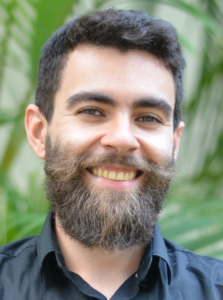 Agroicone Researcher. PhD student in Agricultural Engineering: Digital Agriculture at FEAGRI/UNICAMP. Master in Agronomy: Irrigation and Drainage (FCA/UNESP) and Environmental Engineer (ICTS/UNESP). Published 22 scientific articles and 3 chapters in books published by Springer. He started his doctoral research in precision coffee growing and carried out his master's research on modeling evapotranspiration with satellite images. Received the award for best work presented at the INOVAGRI Meeting 2019.
Agroicone Researcher. PhD student in Agricultural Engineering: Digital Agriculture at FEAGRI/UNICAMP. Master in Agronomy: Irrigation and Drainage (FCA/UNESP) and Environmental Engineer (ICTS/UNESP). Published 22 scientific articles and 3 chapters in books published by Springer. He started his doctoral research in precision coffee growing and carried out his master's research on modeling evapotranspiration with satellite images. Received the award for best work presented at the INOVAGRI Meeting 2019.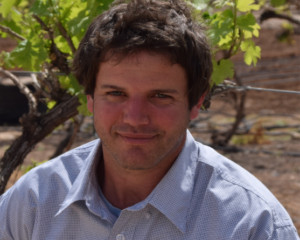 Yechiam Gets, model crop agronomist at the department of digital agronomy, irrigation at Netafim Short context: • 2017- now: Netafim: the crop models agronomist, responsible for creating crop models for over 30 crops, including model, influence sensor and field validation and calibration of models. o Innovative sensors and related AG technology technologies • Deciduous farmer and vineyard farmer in Galilee, northern Israel • M.Agro in soil and water sciences by the Israeli College of Agriculture (HUJI), thesis work was on how to tackle deficit irrigation strategies in relation to crop load in citrus • past experience: o 2011-2014: Agronomist R&D engineer for Haifa fertilizer o 2014-2017: Hydraulic field support and regional sales manager for Bermad irrigation • Expertise: irrigation scheduling, fertigation, hydraulics for pressurized irrigation systems, soil and plant monitoring, crop modeling, basketball, premium vineyards
Yechiam Gets, model crop agronomist at the department of digital agronomy, irrigation at Netafim Short context: • 2017- now: Netafim: the crop models agronomist, responsible for creating crop models for over 30 crops, including model, influence sensor and field validation and calibration of models. o Innovative sensors and related AG technology technologies • Deciduous farmer and vineyard farmer in Galilee, northern Israel • M.Agro in soil and water sciences by the Israeli College of Agriculture (HUJI), thesis work was on how to tackle deficit irrigation strategies in relation to crop load in citrus • past experience: o 2011-2014: Agronomist R&D engineer for Haifa fertilizer o 2014-2017: Hydraulic field support and regional sales manager for Bermad irrigation • Expertise: irrigation scheduling, fertigation, hydraulics for pressurized irrigation systems, soil and plant monitoring, crop modeling, basketball, premium vineyards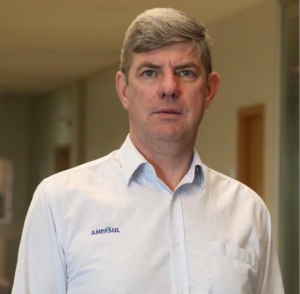 Business Administrator (North University of Paraná-Unopar). He is currently Executive Director of the Associação Sul-matogrossense of Cotton Producers - AMPASUL.
Business Administrator (North University of Paraná-Unopar). He is currently Executive Director of the Associação Sul-matogrossense of Cotton Producers - AMPASUL.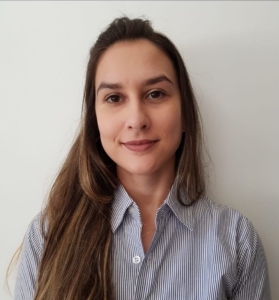 Doctoral candidate in Production Systems at Universidade Estadual Paulista "Júlio Mesquita" (UNESP / FEIS) in Seed Technology. He holds a master's degree in agronomy from the Federal University of Mato Grosso do Sul (UFMS / CPCS) with a dissertation at the Center for Nuclear Energy in Agriculture (CENA-USP) using X-ray microfluorescence (u-XRF ) techniques applied to seeds. During her graduation in Agronomy at the Federal University of Mato Grosso do Sul - UFMS, she was a PIBIC volunteer with native species from the Cerrado Sul Matogrossense. Develop research on soy, cotton, wheat, rice, cowpea, sorghum, corn, sunn hemp and native species.
Doctoral candidate in Production Systems at Universidade Estadual Paulista "Júlio Mesquita" (UNESP / FEIS) in Seed Technology. He holds a master's degree in agronomy from the Federal University of Mato Grosso do Sul (UFMS / CPCS) with a dissertation at the Center for Nuclear Energy in Agriculture (CENA-USP) using X-ray microfluorescence (u-XRF ) techniques applied to seeds. During her graduation in Agronomy at the Federal University of Mato Grosso do Sul - UFMS, she was a PIBIC volunteer with native species from the Cerrado Sul Matogrossense. Develop research on soy, cotton, wheat, rice, cowpea, sorghum, corn, sunn hemp and native species.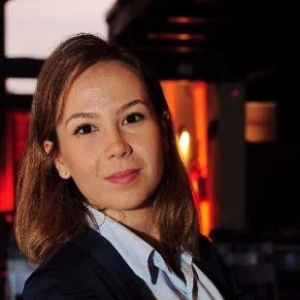 Director of the Department of Sustainable Production and Irrigation (DEPROS) of the Secretariat for Innovation, Rural Development and Irrigation (SDI) of the Ministry of Agriculture, Livestock and Supply (MAPA). She holds a degree in Environmental Management from ESALQ/USP. Master and PhD in Economic Development at the Unicamp Institute of Economics. From 2010 to 2017, she was a researcher at the Center for Advanced Studies in Applied Economics (Cepea/ESALQ/USP). From 2018 to mid 2019, he undertook consulting for rural producers and agro companies. He lived in three countries, in addition to carrying out studies and giving lectures on the challenges, perspectives and strategies for a more sustainable agricultural production in more than 15 other countries.
Director of the Department of Sustainable Production and Irrigation (DEPROS) of the Secretariat for Innovation, Rural Development and Irrigation (SDI) of the Ministry of Agriculture, Livestock and Supply (MAPA). She holds a degree in Environmental Management from ESALQ/USP. Master and PhD in Economic Development at the Unicamp Institute of Economics. From 2010 to 2017, she was a researcher at the Center for Advanced Studies in Applied Economics (Cepea/ESALQ/USP). From 2018 to mid 2019, he undertook consulting for rural producers and agro companies. He lived in three countries, in addition to carrying out studies and giving lectures on the challenges, perspectives and strategies for a more sustainable agricultural production in more than 15 other countries.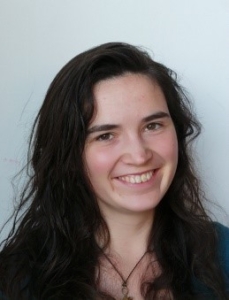 Doctorate with a line of research in water management in hydrological droughts. His research area is inspired by water conflicts around the world and previous projects were located in areas of water scarcity in developing countries. Currently, its focus is on groundwater management, which proves to be influential during droughts. Examples from the UK, California, Texas and Mexico were used to quantify the influence and, in later final stages of the research, feedback from existing drought mitigation strategies will be examined.
Doctorate with a line of research in water management in hydrological droughts. His research area is inspired by water conflicts around the world and previous projects were located in areas of water scarcity in developing countries. Currently, its focus is on groundwater management, which proves to be influential during droughts. Examples from the UK, California, Texas and Mexico were used to quantify the influence and, in later final stages of the research, feedback from existing drought mitigation strategies will be examined.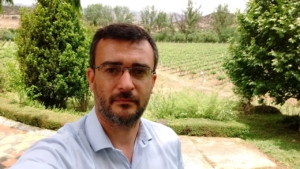 Agronomist with professional experience ranging from viticulture and local wineries in Italy, Mexico and Switzerland to managing local wineries. As well as in the field of water resources, it experiences developments in the integral management of water resources, distribution, agricultural irrigation (gravitational and pressurized), projects of pressurized irrigation equipment. Management of hydrological models and water distribution at primary, secondary and tertiary levels.
Agronomist with professional experience ranging from viticulture and local wineries in Italy, Mexico and Switzerland to managing local wineries. As well as in the field of water resources, it experiences developments in the integral management of water resources, distribution, agricultural irrigation (gravitational and pressurized), projects of pressurized irrigation equipment. Management of hydrological models and water distribution at primary, secondary and tertiary levels.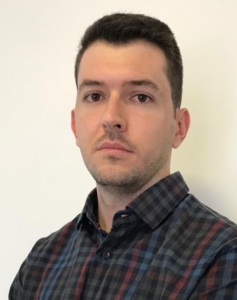 PhD candidate in Agricultural Engineering in the area of Water and Environmental Resources at the Federal University of Viçosa. Graduated in Agricultural and Environmental Engineering (2015) and Master in Agricultural Engineering (2019) from the Federal University of Viçosa. He has experience in Agricultural Engineering, with an emphasis on evapotranspiration, evaporation and hydrological modeling, management and diagnosis of irrigation systems, GIS tools, application of remote sensing to agriculture and agrometeorology, data mining and machine learning.
PhD candidate in Agricultural Engineering in the area of Water and Environmental Resources at the Federal University of Viçosa. Graduated in Agricultural and Environmental Engineering (2015) and Master in Agricultural Engineering (2019) from the Federal University of Viçosa. He has experience in Agricultural Engineering, with an emphasis on evapotranspiration, evaporation and hydrological modeling, management and diagnosis of irrigation systems, GIS tools, application of remote sensing to agriculture and agrometeorology, data mining and machine learning. Steven R. Evett is a Soil Research Scientist at the USDA Agricultural Research Service, Conservation and Production Research Laboratory, Bushland, Texas. Dr. Evett joins internal and external researchers and action agencies to use field measurements, electronic sensors and automation systems, and energy and water balance models to study crop water use in irrigated and cropping systems. irrigation, irrigation methods and as automation affect crop water productivity, as well as water content detection methods used to control irrigation and to quantify crop water use. In addition to research sites in the US, he has been involved in collaborative research projects in the Middle East and Uzbekistan on crop water use, irrigation scheduling and soil water measurement; and he has worked in China, Egypt, Jordan and the US to design, build and use weighing lysimeters to measure crop water usage.
Steven R. Evett is a Soil Research Scientist at the USDA Agricultural Research Service, Conservation and Production Research Laboratory, Bushland, Texas. Dr. Evett joins internal and external researchers and action agencies to use field measurements, electronic sensors and automation systems, and energy and water balance models to study crop water use in irrigated and cropping systems. irrigation, irrigation methods and as automation affect crop water productivity, as well as water content detection methods used to control irrigation and to quantify crop water use. In addition to research sites in the US, he has been involved in collaborative research projects in the Middle East and Uzbekistan on crop water use, irrigation scheduling and soil water measurement; and he has worked in China, Egypt, Jordan and the US to design, build and use weighing lysimeters to measure crop water usage.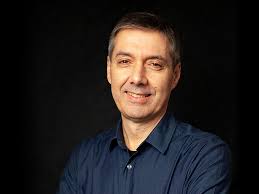 Graduated in Agronomy from the Federal University of Santa Maria (1982), with a Master's in Agricultural Engineering from the Federal University of Santa Maria (1987) and a Ph.D. in Crop And Soil Science - Michigan State University, in 1993. He is a professor at the Department of Rural Engineering , from the Federal University of Santa Maria. He works as a professor and advisor in the Postgraduate courses in Agricultural Engineering and Soil Science, with eleven Doctoral Theses and thirty-seven Master's Dissertations completed, in addition to providing permanent guidance to Scientific Initiation students. He is leader of the Research Group "Water management in agricultural systems", whose main objectives are the search for strategies that increase the efficiency of water and energy use in irrigated systems, through the investigation of a series of variables related to water conservation. water in agricultural systems.
Graduated in Agronomy from the Federal University of Santa Maria (1982), with a Master's in Agricultural Engineering from the Federal University of Santa Maria (1987) and a Ph.D. in Crop And Soil Science - Michigan State University, in 1993. He is a professor at the Department of Rural Engineering , from the Federal University of Santa Maria. He works as a professor and advisor in the Postgraduate courses in Agricultural Engineering and Soil Science, with eleven Doctoral Theses and thirty-seven Master's Dissertations completed, in addition to providing permanent guidance to Scientific Initiation students. He is leader of the Research Group "Water management in agricultural systems", whose main objectives are the search for strategies that increase the efficiency of water and energy use in irrigated systems, through the investigation of a series of variables related to water conservation. water in agricultural systems.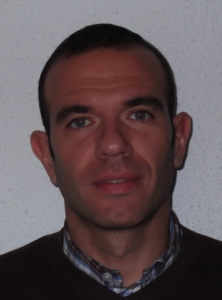 Dr. Ramón López-Urrea is a research scientist. Ph.D. Master in Agricultural Science and Engineering from the University of Castilla-La Mancha (UCLM), Spain, in 2004. From 1999 until today, he works in the Water Management Research Unit of the Technical Institute of Agronomy of the province of Albacete, Spain. He has been Research Director or research team member in 20 national and international projects and has been involved in 16 non-competitive projects, contracts or agreements with administrations or public or private bodies. He is the author of 38 articles in ISI-JCR indexed journals, 19 peer review procedures (indexed in Web of Science), 10 book chapters, 22 articles in technical journals, and 95 articles in conferences. In 2009, he was invited to visit and work with the Agricultural Research Service (ARS) Water Management Research Unit in Fort Collins, Colorado. In 2016, he was visiting and collaborating with the Civil and Environmental Department of Colorado State University in Fort Collins, thanks to the José Castillejo program (reference JC2015-00110). Since July 2018, he has been Associate Editor of the scientific journal Irrigation Science. He recently served as Guest Editor for Agricultural Water Management, aiming to update the FAO56 crop water requirements method. The medium to long-term technical-scientific interests and objectives of my research are: to deepen the knowledge of the water needs of crops in a climate change scenario, through different approaches (lysimetry, micro-meteorology, remote sensing, etc.) , as well as evaluating different irrigation strategies aimed at mitigating the negative effects of water stress on crops.
Dr. Ramón López-Urrea is a research scientist. Ph.D. Master in Agricultural Science and Engineering from the University of Castilla-La Mancha (UCLM), Spain, in 2004. From 1999 until today, he works in the Water Management Research Unit of the Technical Institute of Agronomy of the province of Albacete, Spain. He has been Research Director or research team member in 20 national and international projects and has been involved in 16 non-competitive projects, contracts or agreements with administrations or public or private bodies. He is the author of 38 articles in ISI-JCR indexed journals, 19 peer review procedures (indexed in Web of Science), 10 book chapters, 22 articles in technical journals, and 95 articles in conferences. In 2009, he was invited to visit and work with the Agricultural Research Service (ARS) Water Management Research Unit in Fort Collins, Colorado. In 2016, he was visiting and collaborating with the Civil and Environmental Department of Colorado State University in Fort Collins, thanks to the José Castillejo program (reference JC2015-00110). Since July 2018, he has been Associate Editor of the scientific journal Irrigation Science. He recently served as Guest Editor for Agricultural Water Management, aiming to update the FAO56 crop water requirements method. The medium to long-term technical-scientific interests and objectives of my research are: to deepen the knowledge of the water needs of crops in a climate change scenario, through different approaches (lysimetry, micro-meteorology, remote sensing, etc.) , as well as evaluating different irrigation strategies aimed at mitigating the negative effects of water stress on crops.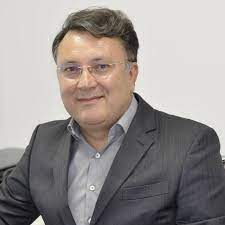 Graduated in Agricultural Engineering from the Federal University of Paraíba (1999), Master in Irrigation and Drainage (2002) and Doctor in Water and Environmental Resources (2005) both from the Federal University of Viçosa. He holds an MBA in Public Management: Agribusiness and Sustainable Development from the Foundation for Research and Development in Administration, Accounting and Economics (2009). He worked as a regional development technician at the São Francisco and Parnaíba Valleys Development Company (2007 to 2009), at the Hydroagricultural Support Unit, of the 2nd Regional Superintendence, where he was general manager. He was President of the Brazilian Association of Rainwater Capture and Management (2012 to 2014). Since 2009 he has been a researcher at the Ministry of Science, Technology and Innovation (MCTI), working until 2020 at the National Institute of the Semi-Arid (INSA), as head researcher in the area of water resources. From 2011 to 2019 he held the positions of Technical Advisor, Deputy Director and General Director. He is currently at the disposal of the Innovation Pole of the Federal Institute of Paraíba (IFPB). He has experience in the field of Agricultural Engineering, working mainly on the themes: management of water resources; irrigation; water quality; reuse and use of rainwater.
Graduated in Agricultural Engineering from the Federal University of Paraíba (1999), Master in Irrigation and Drainage (2002) and Doctor in Water and Environmental Resources (2005) both from the Federal University of Viçosa. He holds an MBA in Public Management: Agribusiness and Sustainable Development from the Foundation for Research and Development in Administration, Accounting and Economics (2009). He worked as a regional development technician at the São Francisco and Parnaíba Valleys Development Company (2007 to 2009), at the Hydroagricultural Support Unit, of the 2nd Regional Superintendence, where he was general manager. He was President of the Brazilian Association of Rainwater Capture and Management (2012 to 2014). Since 2009 he has been a researcher at the Ministry of Science, Technology and Innovation (MCTI), working until 2020 at the National Institute of the Semi-Arid (INSA), as head researcher in the area of water resources. From 2011 to 2019 he held the positions of Technical Advisor, Deputy Director and General Director. He is currently at the disposal of the Innovation Pole of the Federal Institute of Paraíba (IFPB). He has experience in the field of Agricultural Engineering, working mainly on the themes: management of water resources; irrigation; water quality; reuse and use of rainwater.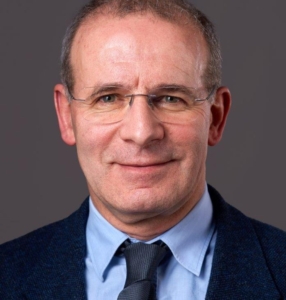 José Manuel Monteiro Gonçalves is a Dr. in Agricultural Engineering from ISA; Master in Hydraulics and Water Resources by Instituto Superior Técnico, ULisboa; Degree in Agricultural Engineering from ISA. He is currently Coordinating Professor with Aggregation at the Escola Superior Agrária of the Polytechnic Institute of Coimbra (IPC-ESAC, www.esac.pt); Associate Editor (Land and Water Engineering Section) of “Agricultural Engineering International: CIGR Journal” (www.cigrjournal.org). Chair of Section I Land and Water Engineering of CIGR (2019-2022) (http://cigr.org/Governance/technical-sections-1.php). President of the Specialized Commission on Water, Agriculture and Forests (CEAAF) (2021-2023) (www.aprh.pt/en/comissoes/aguas-e-agricultura); Member of the Research Center: Linking Landscape, Environment, Agriculture and Food - LEAF (www.isa.ulisboa.pt/en/leaf/presentation). It works in the following areas: Irrigation and drainage, hydraulics and hydrology, water supply systems, in bachelor's and master's degrees.
José Manuel Monteiro Gonçalves is a Dr. in Agricultural Engineering from ISA; Master in Hydraulics and Water Resources by Instituto Superior Técnico, ULisboa; Degree in Agricultural Engineering from ISA. He is currently Coordinating Professor with Aggregation at the Escola Superior Agrária of the Polytechnic Institute of Coimbra (IPC-ESAC, www.esac.pt); Associate Editor (Land and Water Engineering Section) of “Agricultural Engineering International: CIGR Journal” (www.cigrjournal.org). Chair of Section I Land and Water Engineering of CIGR (2019-2022) (http://cigr.org/Governance/technical-sections-1.php). President of the Specialized Commission on Water, Agriculture and Forests (CEAAF) (2021-2023) (www.aprh.pt/en/comissoes/aguas-e-agricultura); Member of the Research Center: Linking Landscape, Environment, Agriculture and Food - LEAF (www.isa.ulisboa.pt/en/leaf/presentation). It works in the following areas: Irrigation and drainage, hydraulics and hydrology, water supply systems, in bachelor's and master's degrees.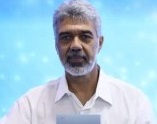 Graduated in Agronomy from the Federal University of Recôncavo da Bahia (1987) and postgraduate degree (Specialization) in Irrigation and Drainage by FAMESF, currently UNEB. He is currently an agronomist at the São Francisco and Parnaiba Valley Development Company - DF. Has experience in Agricultural Engineering, with an emphasis on Irrigation and Drainage.
Graduated in Agronomy from the Federal University of Recôncavo da Bahia (1987) and postgraduate degree (Specialization) in Irrigation and Drainage by FAMESF, currently UNEB. He is currently an agronomist at the São Francisco and Parnaiba Valley Development Company - DF. Has experience in Agricultural Engineering, with an emphasis on Irrigation and Drainage.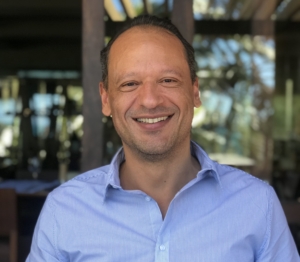 PhD in Agricultural Engineering from the Federal University of Viçosa (1999) and post-doctorate from the University of Nebraska-USA, Lincoln, in irrigation engineering and water management. He was a consultant for the Organization of American States (OAS) and visiting researcher at the University of California-USA, Davis, in the Department of Land, Air and Water Resources Studies, where he developed work in modeling the hydrology of irrigated areas. He is currently a researcher in the area of water resources and irrigation and supervisor of the International Articulation Center at Embrapa Cerrados. He acts as a scientific consultant for several research development agencies and scientific journals. He coordinates the CNPq research group entitled Rede Agrohidro.
PhD in Agricultural Engineering from the Federal University of Viçosa (1999) and post-doctorate from the University of Nebraska-USA, Lincoln, in irrigation engineering and water management. He was a consultant for the Organization of American States (OAS) and visiting researcher at the University of California-USA, Davis, in the Department of Land, Air and Water Resources Studies, where he developed work in modeling the hydrology of irrigated areas. He is currently a researcher in the area of water resources and irrigation and supervisor of the International Articulation Center at Embrapa Cerrados. He acts as a scientific consultant for several research development agencies and scientific journals. He coordinates the CNPq research group entitled Rede Agrohidro.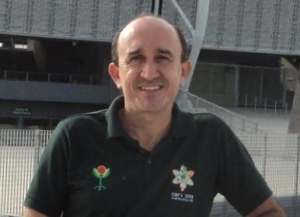 Graduated in Agronomy from the Federal University of Ceará (1991), Master in Agronomy (Soils and Plant Nutrition) from the Federal University of Ceará (1995), Ph.D. in Agricultural Sciences (Vegetal Physiology) from the Federal University of Viçosa (2000) and postgraduate studies -PhD from the University of California, Riverside (UCR) and US Salinity Laboratory/ARS/USDA (2014). He was Coordinator of the Graduate Program in Agricultural Engineering/UFC from August 2005 to August 2009 and from May 2011 to April 2013. He was also President of the XII Brazilian Congress of Plant Physiology (Fortaleza-CE, 2009), Coordinator of the I and II Brazilian Symposium on Salinity (Fortaleza-CE, 2010 and 2014) and of the I Latin American Symposium on Salinity (Fortaleza-CE, 2019). He is a Full Professor at the Department of Agricultural Engineering at the Center for Agricultural Sciences at the Federal University of Ceará, a Researcher at the National Institute of Science and Technology in Salinity (INCTSal) and a CNPq Level 1C Productivity Scholarship. Acts as advisor for undergraduate students in Agronomy and postgraduate courses in Agricultural Engineering (Masters and Doctorate) and Soil Science (Masters and Doctorate). He works mainly on the following topics: Efficiency in the use of water and nutrients in plants under normal conditions and under stress; Salinity tolerance of annual (sorghum, cowpea, corn, cotton), perennial (coconut, cashew) and ornamental crops; Strategies for the use of saline and wastewater in irrigation (full and supplementary); Management of saline and sodic soils; Plant ecophysiology.
Graduated in Agronomy from the Federal University of Ceará (1991), Master in Agronomy (Soils and Plant Nutrition) from the Federal University of Ceará (1995), Ph.D. in Agricultural Sciences (Vegetal Physiology) from the Federal University of Viçosa (2000) and postgraduate studies -PhD from the University of California, Riverside (UCR) and US Salinity Laboratory/ARS/USDA (2014). He was Coordinator of the Graduate Program in Agricultural Engineering/UFC from August 2005 to August 2009 and from May 2011 to April 2013. He was also President of the XII Brazilian Congress of Plant Physiology (Fortaleza-CE, 2009), Coordinator of the I and II Brazilian Symposium on Salinity (Fortaleza-CE, 2010 and 2014) and of the I Latin American Symposium on Salinity (Fortaleza-CE, 2019). He is a Full Professor at the Department of Agricultural Engineering at the Center for Agricultural Sciences at the Federal University of Ceará, a Researcher at the National Institute of Science and Technology in Salinity (INCTSal) and a CNPq Level 1C Productivity Scholarship. Acts as advisor for undergraduate students in Agronomy and postgraduate courses in Agricultural Engineering (Masters and Doctorate) and Soil Science (Masters and Doctorate). He works mainly on the following topics: Efficiency in the use of water and nutrients in plants under normal conditions and under stress; Salinity tolerance of annual (sorghum, cowpea, corn, cotton), perennial (coconut, cashew) and ornamental crops; Strategies for the use of saline and wastewater in irrigation (full and supplementary); Management of saline and sodic soils; Plant ecophysiology.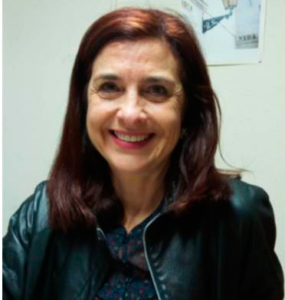 Professor of Hydraulic Engineering at the Polytechnic University of Madrid, to which she has belonged since 1990, and Coordinator of the UPMwater Community. Rodríguez teaches undergraduate and graduate courses related to the application and management of water in irrigated areas, as well as planning and management of water in hydrological basins. In addition, as director of the UPM research group "Hydraulic Irrigation", she has promoted lines of research aimed at improving the efficiency of water/energy distribution systems in pressure irrigation (sprinkler and drip) and in soil water distribution in the context of sustainable development. His work is funded by national and European research projects and has been carried out in the Duero river basin and its Irrigation Communities and also in underdeveloped areas of South America. He has published numerous articles in national and international journals and collaborates on projects in areas in: Brazil, Argentina, Egypt and Turkey, as well as the development of low-cost sensors to measure soil water content with the University of Oregon (USA).
Professor of Hydraulic Engineering at the Polytechnic University of Madrid, to which she has belonged since 1990, and Coordinator of the UPMwater Community. Rodríguez teaches undergraduate and graduate courses related to the application and management of water in irrigated areas, as well as planning and management of water in hydrological basins. In addition, as director of the UPM research group "Hydraulic Irrigation", she has promoted lines of research aimed at improving the efficiency of water/energy distribution systems in pressure irrigation (sprinkler and drip) and in soil water distribution in the context of sustainable development. His work is funded by national and European research projects and has been carried out in the Duero river basin and its Irrigation Communities and also in underdeveloped areas of South America. He has published numerous articles in national and international journals and collaborates on projects in areas in: Brazil, Argentina, Egypt and Turkey, as well as the development of low-cost sensors to measure soil water content with the University of Oregon (USA). He has a bachelor's degree in Agricultural Engineering (1983), a master's degree in Tropical Fruits (1985) and a doctorate. PhD in Horticulture (1994) from Purdue University, with an emphasis on physiology and biochemistry of plant secondary metabolites. He worked as a plant physiologist at the (then) Southern Weed Science Lab in Stoneville, MS, where he developed technology used by the US government for control illicit plants. He then worked as an environmental chemist for Agrevo, Aventis and then Bayer Crop Sciences. He taught plant biology at Southern Illinois University for two years, then joined the Appalachian Farming Systems Research Center in 2003. Currently, Dr. Ferreira works for the US Salinity Lab in Riverside, CA. His research focuses on the physiological and biochemical responses of agricultural crops (such as strawberries and alfalfa) to salt stress and the potential use of biochemical markers to identify salinity tolerance. He is particularly interested in antioxidants, sugars and other compounds that can be produced in response to high levels of stress (in the form of ROS) triggered by salinity in water and soil.
He has a bachelor's degree in Agricultural Engineering (1983), a master's degree in Tropical Fruits (1985) and a doctorate. PhD in Horticulture (1994) from Purdue University, with an emphasis on physiology and biochemistry of plant secondary metabolites. He worked as a plant physiologist at the (then) Southern Weed Science Lab in Stoneville, MS, where he developed technology used by the US government for control illicit plants. He then worked as an environmental chemist for Agrevo, Aventis and then Bayer Crop Sciences. He taught plant biology at Southern Illinois University for two years, then joined the Appalachian Farming Systems Research Center in 2003. Currently, Dr. Ferreira works for the US Salinity Lab in Riverside, CA. His research focuses on the physiological and biochemical responses of agricultural crops (such as strawberries and alfalfa) to salt stress and the potential use of biochemical markers to identify salinity tolerance. He is particularly interested in antioxidants, sugars and other compounds that can be produced in response to high levels of stress (in the form of ROS) triggered by salinity in water and soil.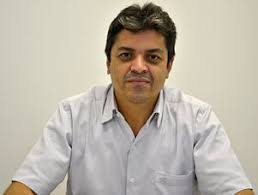 Graduated in Agronomy from the Federal University of Ceará (1993), Master in Agronomy (Vegetal Physiology) from the Federal University of Lavras (1996) and Ph.D. in Agricultural Sciences (Vegetal Physiology) from the Federal University of Viçosa (2000). He is currently a researcher at the Brazilian Agricultural Research Corporation. Has experience in Agronomy, with an emphasis on Cultivated Plant Physiology, acting on the following topics: salinity, water stress, photosynthesis, carbohydrate metabolism, gas exchange, cashew, melon and cowpea.
Graduated in Agronomy from the Federal University of Ceará (1993), Master in Agronomy (Vegetal Physiology) from the Federal University of Lavras (1996) and Ph.D. in Agricultural Sciences (Vegetal Physiology) from the Federal University of Viçosa (2000). He is currently a researcher at the Brazilian Agricultural Research Corporation. Has experience in Agronomy, with an emphasis on Cultivated Plant Physiology, acting on the following topics: salinity, water stress, photosynthesis, carbohydrate metabolism, gas exchange, cashew, melon and cowpea.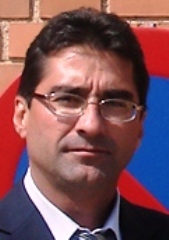 Born in Morada Nova - CE, he studied Agronomic Engineering at the School of Agriculture of Mossoró - ESAM, Master in Agronomy (Irrigation and Drainage) at the Federal University of Ceará - UFC and Ph.D. in Agricultural Engineering (Irrigation and Drainage) at the Federal University of Campina Large - UFCG. He was a professor in the Course of Water Resources and Irrigation at the Faculty of Technology Centec - Sobral, belonging to the Instituto Centro de Ensino Tecnológico - CENTEC, having been its Coordinator from 2001 to 2003. From February 2006 to April 2008 he held the position Director of that Faculty, in addition to having taught and coordinated the Latu Senso Specialization Course in Irrigated Fruits. Chaired the I, II, III and IV International Workshop on Technological Innovations in Irrigation? WINOTEC, in the sequential years of 2007, 2008 and alternating 2010 and 2012. It has an effective participation in the elaboration and implementation of the project of the Laboratory of Testing in Irrigation Equipment - LEEI, accredited by INMETRO and coming from resources from FINEP, PROEP and CNPq, occupying in this, the role of Quality Manager. He is a professor at the Natural Resources Technological Axis of the Federal Institute of Education, Science and Technology of Ceará - IFCE, Campus Sobral and member of the Management Committee of the National Institute of Science and Technology in Irrigation Engineering-INCT/CNPq. He is currently Editor-in-Chief of the Brazilian Journal of Irrigated Agriculture - RBAI. As a teacher, he has emphasized hydraulics, irrigation systems, efficient water management and the development of technologies aimed at improving these.
Born in Morada Nova - CE, he studied Agronomic Engineering at the School of Agriculture of Mossoró - ESAM, Master in Agronomy (Irrigation and Drainage) at the Federal University of Ceará - UFC and Ph.D. in Agricultural Engineering (Irrigation and Drainage) at the Federal University of Campina Large - UFCG. He was a professor in the Course of Water Resources and Irrigation at the Faculty of Technology Centec - Sobral, belonging to the Instituto Centro de Ensino Tecnológico - CENTEC, having been its Coordinator from 2001 to 2003. From February 2006 to April 2008 he held the position Director of that Faculty, in addition to having taught and coordinated the Latu Senso Specialization Course in Irrigated Fruits. Chaired the I, II, III and IV International Workshop on Technological Innovations in Irrigation? WINOTEC, in the sequential years of 2007, 2008 and alternating 2010 and 2012. It has an effective participation in the elaboration and implementation of the project of the Laboratory of Testing in Irrigation Equipment - LEEI, accredited by INMETRO and coming from resources from FINEP, PROEP and CNPq, occupying in this, the role of Quality Manager. He is a professor at the Natural Resources Technological Axis of the Federal Institute of Education, Science and Technology of Ceará - IFCE, Campus Sobral and member of the Management Committee of the National Institute of Science and Technology in Irrigation Engineering-INCT/CNPq. He is currently Editor-in-Chief of the Brazilian Journal of Irrigated Agriculture - RBAI. As a teacher, he has emphasized hydraulics, irrigation systems, efficient water management and the development of technologies aimed at improving these.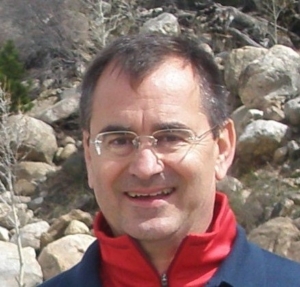 Agronomist, PhD at the University of Cordoba (Spain), scientific researcher at the CSIC's Sustainable Agriculture Institute, in Cordoba and member of the Water for Food Global institute at the University of Nebraska. His specialty is management, irrigation engineering and hydrology. He was a visiting researcher at CSIRO (Australia) and at the Universities of California-Davis, Nebraska-Lincoln and São Paulo. He also collaborated with international organizations such as FAO, where he was an international expert. Currently, he develops his research activity mainly in Andalucía (Spain), but also in Sub-Saharan Africa and Latin America. Luciano Mateos regularly publishes articles on irrigation in international journals.
Agronomist, PhD at the University of Cordoba (Spain), scientific researcher at the CSIC's Sustainable Agriculture Institute, in Cordoba and member of the Water for Food Global institute at the University of Nebraska. His specialty is management, irrigation engineering and hydrology. He was a visiting researcher at CSIRO (Australia) and at the Universities of California-Davis, Nebraska-Lincoln and São Paulo. He also collaborated with international organizations such as FAO, where he was an international expert. Currently, he develops his research activity mainly in Andalucía (Spain), but also in Sub-Saharan Africa and Latin America. Luciano Mateos regularly publishes articles on irrigation in international journals.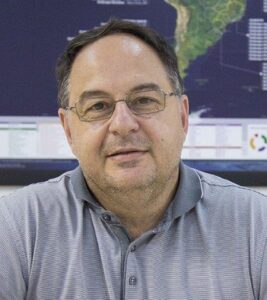 Agronomist (ESALQ / USP Piracicaba campus - 1985). Master in Agronomy / Irrigation and Drainage (FCA / UNESP campus de Botucatu - 1990). PhD in Sciences / Nuclear Energy in Agriculture (CENA / USP Piracicaba campus - 1994). Postdoctoral (University of California, Davis, USA - 2000). Between December 1994 and April 2015, he was a researcher at Embrapa Semiárido, in Petrolina - PE. As of May 2015, he has been a researcher at Embrapa Instrumentação, in São Carlos - SP. Main research topics: soil physics, irrigation management, fertigation, agricultural water use and precision agriculture. Member of the faculty and supervisor of the Master's and Doctoral Degree Program in Agricultural Engineering at the Faculty of Agricultural Sciences (FCA), UNESP, Botucatu campus.
Agronomist (ESALQ / USP Piracicaba campus - 1985). Master in Agronomy / Irrigation and Drainage (FCA / UNESP campus de Botucatu - 1990). PhD in Sciences / Nuclear Energy in Agriculture (CENA / USP Piracicaba campus - 1994). Postdoctoral (University of California, Davis, USA - 2000). Between December 1994 and April 2015, he was a researcher at Embrapa Semiárido, in Petrolina - PE. As of May 2015, he has been a researcher at Embrapa Instrumentação, in São Carlos - SP. Main research topics: soil physics, irrigation management, fertigation, agricultural water use and precision agriculture. Member of the faculty and supervisor of the Master's and Doctoral Degree Program in Agricultural Engineering at the Faculty of Agricultural Sciences (FCA), UNESP, Botucatu campus.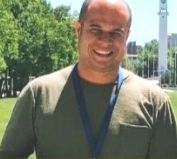 Graduated in Agronomy from the Federal University of Bahia (1994), Master's in Irrigation and Drainage by the Superior School of Agriculture Luíz de Queiroz (1998) and Ph.D. in Irrigation and Drainage by the Superior School of Agriculture Luíz de Queiroz (2002). He is currently a professor at the Federal Institute of Education, Science and Technology of the Sertão Pernambucana Petrolina-Pe. Has experience in Agricultural Engineering, with an emphasis on Water and Soil Engineering, acting on the following topics: irrigation, evapotranspiration, irrigation management, water requirements and lysimeter.
Graduated in Agronomy from the Federal University of Bahia (1994), Master's in Irrigation and Drainage by the Superior School of Agriculture Luíz de Queiroz (1998) and Ph.D. in Irrigation and Drainage by the Superior School of Agriculture Luíz de Queiroz (2002). He is currently a professor at the Federal Institute of Education, Science and Technology of the Sertão Pernambucana Petrolina-Pe. Has experience in Agricultural Engineering, with an emphasis on Water and Soil Engineering, acting on the following topics: irrigation, evapotranspiration, irrigation management, water requirements and lysimeter.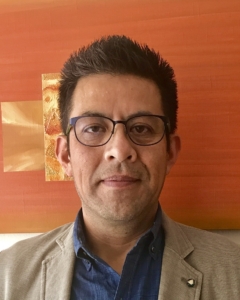 Bachelor of Agricultural Engineering, San Simon University. Master, Agricultural Systems Analysis, National Agrarian University. Ph.D., Biological Systems Engineering, Virginia Tech. Dr. Osorio Leyton's research and teaching interest focuses on linking process-based simulation models, geospatial analysis, machine learning, and data analysis to support science-based decision making of agricultural systems. In addition, his research experience includes the development and application of simulation models for hydrology and plant growth. Dr. Osorio Leyton is the PI of the project “Establishing and Strengthening the Livestock Alert System (PLEWs) in Kenya, Somalia, Sudan, Uganda and South Sudan” sponsored by the Food and Agriculture Organization of the United Nations (FAO ).
Bachelor of Agricultural Engineering, San Simon University. Master, Agricultural Systems Analysis, National Agrarian University. Ph.D., Biological Systems Engineering, Virginia Tech. Dr. Osorio Leyton's research and teaching interest focuses on linking process-based simulation models, geospatial analysis, machine learning, and data analysis to support science-based decision making of agricultural systems. In addition, his research experience includes the development and application of simulation models for hydrology and plant growth. Dr. Osorio Leyton is the PI of the project “Establishing and Strengthening the Livestock Alert System (PLEWs) in Kenya, Somalia, Sudan, Uganda and South Sudan” sponsored by the Food and Agriculture Organization of the United Nations (FAO ).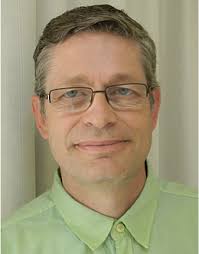 Graduated in Agricultural Engineering from Esalq- Universidade de São Paulo (1983), Master (1997) and Ph.D. (2010) in Agricultural Engineering from Universidade Estadual de Campinas. He is currently an agronomist at the State University of Campinas, working at the Faculty of Agricultural Engineering. It is linked to the areas of teaching, research and extension, supporting activities in Undergraduate (Ambience, Rural Infrastructure, Post-Harvest Technology) and in Post-Graduate Studies (Rural Constructions, Ambience and Post-Harvest Technology, Plant Physiology). Professor at the Faculty of Agribusiness of Holambra working in the areas of soilless cultivation, intensive cultivation, cultivation in a protected environment, post-harvest of perishable products and management of rural properties. Vice-President of the Brazilian Committee for the Development and Application of Plastics in Agriculture and President of the Editorial Committee of Revista Plasticultura. Participation as an instructor or speaker in over 150 courses or events in Brazil and abroad, aiming at technology transfer. Focused on the themes: protected cultivation, plastic culture, production systems, soilless cultivation, floriculture, horticulture, fruit growing, coffee, post-harvest, packaging, quality of agricultural products and management
Graduated in Agricultural Engineering from Esalq- Universidade de São Paulo (1983), Master (1997) and Ph.D. (2010) in Agricultural Engineering from Universidade Estadual de Campinas. He is currently an agronomist at the State University of Campinas, working at the Faculty of Agricultural Engineering. It is linked to the areas of teaching, research and extension, supporting activities in Undergraduate (Ambience, Rural Infrastructure, Post-Harvest Technology) and in Post-Graduate Studies (Rural Constructions, Ambience and Post-Harvest Technology, Plant Physiology). Professor at the Faculty of Agribusiness of Holambra working in the areas of soilless cultivation, intensive cultivation, cultivation in a protected environment, post-harvest of perishable products and management of rural properties. Vice-President of the Brazilian Committee for the Development and Application of Plastics in Agriculture and President of the Editorial Committee of Revista Plasticultura. Participation as an instructor or speaker in over 150 courses or events in Brazil and abroad, aiming at technology transfer. Focused on the themes: protected cultivation, plastic culture, production systems, soilless cultivation, floriculture, horticulture, fruit growing, coffee, post-harvest, packaging, quality of agricultural products and management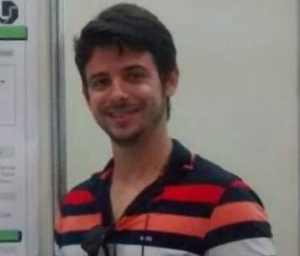 He holds a Doctorate (2013-2016) and a Masters (2011-2013) in Cartographic Sciences and a degree in Cartographic Engineering from Universidade Estadual Paulista Júlio de Mesquita Filho (2010). He is currently Adjunct Professor at the Faculty of Civil Engineering at the Federal University of Uberlândia - Campus Monte Carmelo - MG, working mainly on the following topics: Remote Sensing (identification of diseases in agricultural crops) and Topography (Mines and Industry)
He holds a Doctorate (2013-2016) and a Masters (2011-2013) in Cartographic Sciences and a degree in Cartographic Engineering from Universidade Estadual Paulista Júlio de Mesquita Filho (2010). He is currently Adjunct Professor at the Faculty of Civil Engineering at the Federal University of Uberlândia - Campus Monte Carmelo - MG, working mainly on the following topics: Remote Sensing (identification of diseases in agricultural crops) and Topography (Mines and Industry)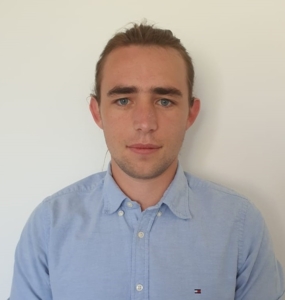 Master in agronomy with a specialty in sustainable agriculture. He worked for a year and a half on a project to create a farm and beekeeping in Jalapão. After that, in 2018, he started working for the SNF, world leader in the production of soluble polymers for water treatment, as responsible for the development of the agricultural division, and in 2019 he took responsibility for the development of the agricultural division for Latin America. He has now been with the company for 3 years with the main function of technical development, on the chemical side as well as fieldwork, of SNF's new technologies to reduce water consumption in agriculture, in addition to being responsible for the commercial development of the SNF's agricultural product line .
Master in agronomy with a specialty in sustainable agriculture. He worked for a year and a half on a project to create a farm and beekeeping in Jalapão. After that, in 2018, he started working for the SNF, world leader in the production of soluble polymers for water treatment, as responsible for the development of the agricultural division, and in 2019 he took responsibility for the development of the agricultural division for Latin America. He has now been with the company for 3 years with the main function of technical development, on the chemical side as well as fieldwork, of SNF's new technologies to reduce water consumption in agriculture, in addition to being responsible for the commercial development of the SNF's agricultural product line .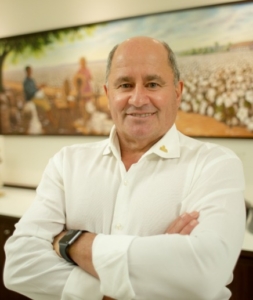 Júlio Cézar Busato is descended from a long line of farmers, which inspired his training as an agronomist, graduated from the University of Passo Fundo (UPF). He moved with his family in 1987 to West Bahia, where he founded the Busato/Grupo Busato Farm, which produces, in addition to cotton, soybeans and corn, in the municipalities of São Desidério, Serra do Ramalho and Jaborandi. He is an active and recognized leadership in Brazil: he was president of the Association of Farmers and Irrigants of Bahia (Aiba), of the Bahia Association of Cotton Producers (Abapa), of the Agribusiness Development Program (Prodeagro), of the Fund for the Development of the Cotton Agribusiness (Fundeagro) and vice president of the Brazilian Association of Cotton Producers (Abrapa). Since 2011, when he began dedicating himself to class representation, he has had and has a seat in various forums, councils and chambers in the agricultural sector. Among these, he was vice-president of Instituto Pensar Agro (IPA), presides over the Thematic Chamber of Agricultural Inputs (CTIA/Mapa), and, since January 1, 2021, has been president of Abrapa.
Júlio Cézar Busato is descended from a long line of farmers, which inspired his training as an agronomist, graduated from the University of Passo Fundo (UPF). He moved with his family in 1987 to West Bahia, where he founded the Busato/Grupo Busato Farm, which produces, in addition to cotton, soybeans and corn, in the municipalities of São Desidério, Serra do Ramalho and Jaborandi. He is an active and recognized leadership in Brazil: he was president of the Association of Farmers and Irrigants of Bahia (Aiba), of the Bahia Association of Cotton Producers (Abapa), of the Agribusiness Development Program (Prodeagro), of the Fund for the Development of the Cotton Agribusiness (Fundeagro) and vice president of the Brazilian Association of Cotton Producers (Abrapa). Since 2011, when he began dedicating himself to class representation, he has had and has a seat in various forums, councils and chambers in the agricultural sector. Among these, he was vice-president of Instituto Pensar Agro (IPA), presides over the Thematic Chamber of Agricultural Inputs (CTIA/Mapa), and, since January 1, 2021, has been president of Abrapa.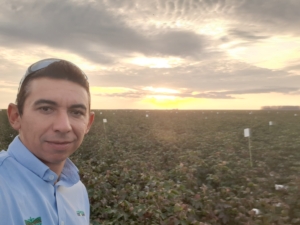 Graduated in Agronomy from Universidade Estadual Paulista Júlio de Mesquita Filho (2002), Master's and Ph.D. in Agronomy from Universidade Estadual Paulista Julio de Mesquita Filho (2005 and 2009). He has experience in the field of Agronomy, with an emphasis on Agricultural Entomology and Weed Control, working mainly on the following crops: cotton, soybeans, corn and sugarcane.
Graduated in Agronomy from Universidade Estadual Paulista Júlio de Mesquita Filho (2002), Master's and Ph.D. in Agronomy from Universidade Estadual Paulista Julio de Mesquita Filho (2005 and 2009). He has experience in the field of Agronomy, with an emphasis on Agricultural Entomology and Weed Control, working mainly on the following crops: cotton, soybeans, corn and sugarcane.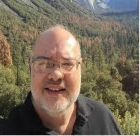 Marcos Heil Costa is an engineer with extensive experience in climate, land use, carbon cycle, water and agriculture in Central Brazil and the Amazon. His research focuses on using various types of environmental models, remote sensing and field data to study the relationships between climate change, land use change and climate, water resources, agriculture and natural ecosystems. He is a full professor at the Federal University of Viçosa and a CNPq 1B scholarship holder. He was visiting professor at the University of Wisconsin-Madison (2002-2003) and General Coordinator on Climate Change at the Ministry of Science and Technology (2011). He is currently a member of Working Group I (WG1) of the Intergovernmental Panel on Climate Change (IPCC), the Science Panel for the Amazon coordinated by the United Nations Sustainable Development Solutions Network, and member of the Advisory Committee on Environmental Sciences at CNPq. He received the "Antônio Secundino de São José" Commendation in 2018, granted by the State of Minas Gerais, the PH Rolfs Gold Medal of Research Merit granted by the Federal University of Viçosa in 2015 and the Funarbe Prize for Recognition in Research, granted by the Foundation Arthur Bernardes in 2014. He holds a Ph.D. in Climatology from the University of Wisconsin-Madison, MS in Agricultural Meteorology and a BA in Agricultural Engineering from the Federal University of Viçosa.
Marcos Heil Costa is an engineer with extensive experience in climate, land use, carbon cycle, water and agriculture in Central Brazil and the Amazon. His research focuses on using various types of environmental models, remote sensing and field data to study the relationships between climate change, land use change and climate, water resources, agriculture and natural ecosystems. He is a full professor at the Federal University of Viçosa and a CNPq 1B scholarship holder. He was visiting professor at the University of Wisconsin-Madison (2002-2003) and General Coordinator on Climate Change at the Ministry of Science and Technology (2011). He is currently a member of Working Group I (WG1) of the Intergovernmental Panel on Climate Change (IPCC), the Science Panel for the Amazon coordinated by the United Nations Sustainable Development Solutions Network, and member of the Advisory Committee on Environmental Sciences at CNPq. He received the "Antônio Secundino de São José" Commendation in 2018, granted by the State of Minas Gerais, the PH Rolfs Gold Medal of Research Merit granted by the Federal University of Viçosa in 2015 and the Funarbe Prize for Recognition in Research, granted by the Foundation Arthur Bernardes in 2014. He holds a Ph.D. in Climatology from the University of Wisconsin-Madison, MS in Agricultural Meteorology and a BA in Agricultural Engineering from the Federal University of Viçosa.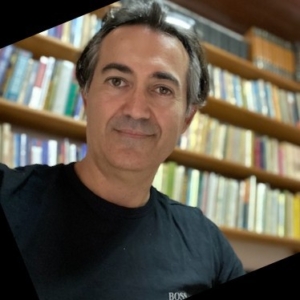 Civil Engineer from the Federal University of Minas Gerais (1996), Master's in Hydraulics and Sanitation from USP (1999) and Ph.D. in Water Resources Engineering from the University of California at Davis, USA (2004). In 2012, he developed postdoctoral research at Université Laval (Canada) on dynamic optimization and stochastic dual dynamics applied to hydroelectric systems. He is currently an Associate Professor at the Institute of Hydraulic Research (IPH) of the Federal University of Rio Grande do Sul (UFRGS) and collaborator at the Center for Planning and Management of Water Resources at IPH. He has experience in the Water Resources area, with an emphasis on Integrated Water Resources Planning and optimization techniques, working mainly on the following topics: Hydro-economic modeling of water systems, optimization of the operation of hydroelectric systems, optimization of the integrated use of surface water and underground, optimizing the operation of reservoirs and saving natural resources.
Civil Engineer from the Federal University of Minas Gerais (1996), Master's in Hydraulics and Sanitation from USP (1999) and Ph.D. in Water Resources Engineering from the University of California at Davis, USA (2004). In 2012, he developed postdoctoral research at Université Laval (Canada) on dynamic optimization and stochastic dual dynamics applied to hydroelectric systems. He is currently an Associate Professor at the Institute of Hydraulic Research (IPH) of the Federal University of Rio Grande do Sul (UFRGS) and collaborator at the Center for Planning and Management of Water Resources at IPH. He has experience in the Water Resources area, with an emphasis on Integrated Water Resources Planning and optimization techniques, working mainly on the following topics: Hydro-economic modeling of water systems, optimization of the operation of hydroelectric systems, optimization of the integrated use of surface water and underground, optimizing the operation of reservoirs and saving natural resources.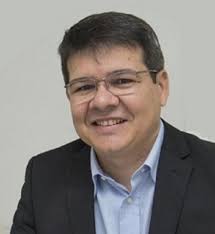 Agronomist and Master in Irrigation and Drainage from the Federal University of Ceará - UFC. He holds a PhD in Science, concentration area in Irrigation and Drainage from ESALQ / USP (2009) with a sandwich internship in Córdoba-Spain at the Instituto de Agricultura Sostenible (IAS / CSIC). From November 2012 to October 2013 he did a Postdoctoral Fellowship with CNPq at the University of California, Davis (UCDAVIS) where he was Visiting Researcher at the Department of Land, Air and Water Resources (LAWR). He is currently Executive Secretary of Agribusiness at the Secretariat of Economic Development and Labor of the State Government of Ceará-SEDET, planning and developing actions, projects and partnerships for the development of agribusiness in Ceará. In his professional career he was a professor of the Irrigation Technology Course at the CENTEC Institute from August 2001 to February 2011 and during this period he was Regional Director of the Faculdade CENTEC de Sobral, from July 2004 to January 2006 and Technical Manager of the Test Laboratory in Irrigation Equipment - LEEI, a laboratory that was accredited by INMETRO in 2007. In January 2007 he was one of the founders of the Institute for Research and Innovation in Irrigated Agriculture - INOVAGRI. At INOVAGRI he was part of the organizing committee of the International Workshop on Technological Innovations in Irrigation - WINOTEC in 2007 and since then he has participated in the organization of important international events such as the INOVAGRI International Meeting which is now in its fifth version and these actions have already provided the presence of more 200 international speakers, 300 national, attending approximately 5,000 subscribers in all editions. He participated in the organization of the Inovagri Meeting Virtual in 2020 and also in the INOVAGRI Webinar series on that Institute's YouTube channel, which has already received more than 75 thousand views. He is a member of the executing team of several projects and among them the National Institute of Science and Technology in Irrigation Engineering (INCT-EI), which was headquartered at ESALQ / USP, stands out. In 2012 and 2014 he coordinated the training program in irrigation and drainage carried out by the National Water Agency-ANA across the country. He regionally coordinated the Irrigant Advisory Service Project-SAI, a project carried out in the Baixo Acaraú Irrigation District-CE. He is a volunteer researcher at Instituto INOVAGRI and participates in international projects with several institutions. He was Director of Agribusiness at the Ceará State Development Agency-ADECE from 2015 to 2019. He was a member of the Deliberative Council of SEBRAE and of the Superior Council of the Ceará Foundation for Scientific and Technological Development Support-FUNCAP. Since 2013 he has participated in the CIGR-International Commission of Agricultural and Biosystems Engineering, as a member of Technical Sections I: Land and Water. Since 2015 he has been a member of the Water Resources Council of Ceará-CONERH and currently coordinates the Technical Chamber to Support the Allocation of Water for Agriculture in the State's Hydrographic Basins. He represents the Federation of Agriculture and Livestock of the State of Ceará-FAEC in the National Irrigation Commission of the Confederation of Agriculture and Livestock of Brazil-CNA. Is he the Director of Certifications and Events at the Brazilian Association of Irrigation and Drainage? ABID. Since August 2019 he has been a member of FUNCAP's Chamber of Public Innovation. He is a member of the Water Security and Governance Project Committee (IPF-Ceará) for the execution of the Project financed by the International Bank for Reconstruction and Development - BIRD, being Coordinator of the sub-Project: Water use efficiency in the agricultural sector for five basins of Ceará's hydrographic basins.
Agronomist and Master in Irrigation and Drainage from the Federal University of Ceará - UFC. He holds a PhD in Science, concentration area in Irrigation and Drainage from ESALQ / USP (2009) with a sandwich internship in Córdoba-Spain at the Instituto de Agricultura Sostenible (IAS / CSIC). From November 2012 to October 2013 he did a Postdoctoral Fellowship with CNPq at the University of California, Davis (UCDAVIS) where he was Visiting Researcher at the Department of Land, Air and Water Resources (LAWR). He is currently Executive Secretary of Agribusiness at the Secretariat of Economic Development and Labor of the State Government of Ceará-SEDET, planning and developing actions, projects and partnerships for the development of agribusiness in Ceará. In his professional career he was a professor of the Irrigation Technology Course at the CENTEC Institute from August 2001 to February 2011 and during this period he was Regional Director of the Faculdade CENTEC de Sobral, from July 2004 to January 2006 and Technical Manager of the Test Laboratory in Irrigation Equipment - LEEI, a laboratory that was accredited by INMETRO in 2007. In January 2007 he was one of the founders of the Institute for Research and Innovation in Irrigated Agriculture - INOVAGRI. At INOVAGRI he was part of the organizing committee of the International Workshop on Technological Innovations in Irrigation - WINOTEC in 2007 and since then he has participated in the organization of important international events such as the INOVAGRI International Meeting which is now in its fifth version and these actions have already provided the presence of more 200 international speakers, 300 national, attending approximately 5,000 subscribers in all editions. He participated in the organization of the Inovagri Meeting Virtual in 2020 and also in the INOVAGRI Webinar series on that Institute's YouTube channel, which has already received more than 75 thousand views. He is a member of the executing team of several projects and among them the National Institute of Science and Technology in Irrigation Engineering (INCT-EI), which was headquartered at ESALQ / USP, stands out. In 2012 and 2014 he coordinated the training program in irrigation and drainage carried out by the National Water Agency-ANA across the country. He regionally coordinated the Irrigant Advisory Service Project-SAI, a project carried out in the Baixo Acaraú Irrigation District-CE. He is a volunteer researcher at Instituto INOVAGRI and participates in international projects with several institutions. He was Director of Agribusiness at the Ceará State Development Agency-ADECE from 2015 to 2019. He was a member of the Deliberative Council of SEBRAE and of the Superior Council of the Ceará Foundation for Scientific and Technological Development Support-FUNCAP. Since 2013 he has participated in the CIGR-International Commission of Agricultural and Biosystems Engineering, as a member of Technical Sections I: Land and Water. Since 2015 he has been a member of the Water Resources Council of Ceará-CONERH and currently coordinates the Technical Chamber to Support the Allocation of Water for Agriculture in the State's Hydrographic Basins. He represents the Federation of Agriculture and Livestock of the State of Ceará-FAEC in the National Irrigation Commission of the Confederation of Agriculture and Livestock of Brazil-CNA. Is he the Director of Certifications and Events at the Brazilian Association of Irrigation and Drainage? ABID. Since August 2019 he has been a member of FUNCAP's Chamber of Public Innovation. He is a member of the Water Security and Governance Project Committee (IPF-Ceará) for the execution of the Project financed by the International Bank for Reconstruction and Development - BIRD, being Coordinator of the sub-Project: Water use efficiency in the agricultural sector for five basins of Ceará's hydrographic basins.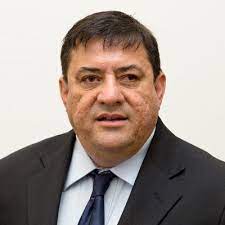 Bachelor (Agricultural Engineer) in Agronomy from the Federal University of Viçosa (UFV, 1981-1984). Master in Agronomy (Irrigation and Drainage) [Esalq] from the University of São Paulo (USP, 1986-1989). Specialist in Soil Physics at the International Center for Theoretical Physics (ICTP) [Trieste, Italy] (1989). PhD in Agronomy (Soils and Plant Nutrition) [Esalq] from the University of São Paulo (1989-1992). Post-Doctorate in Soil Physics and Agricultural Modeling at the University of California (1993-1995) (Fapesp). Engineer I by the São Francisco Valley Development Company (Codevasf, 1985-1989). Assistant Professor of Teaching (1989-1992), PhD Professor (1992-2000), Full Professor (1999) in Plant Science, Associate Professor (2000-2006) and Full Professor (since 2006) at the Department of Plant Production [Esalq] of the University of São Paulo. Coordinator of the Postgraduate Program in Plant Science (1998-2002, 2008-2010 and 2014-2017). Head of the Plant Production Department (2002-2006 and 2008-2012). Deputy Director of Esalq (Quadriennium 2015-2018). Director of Esalq (Quadriennium 2019-2022), University of São Paulo. Vice-President of the Graduate Committee of the Integrated Program in Bioenergy (2021-2023). He is currently Scientific Researcher at CNPq (1A) and Collaborating Professor at Fundação Getulio Vargas. Has national experience (24 states: AL, AP, AM, BA, CE, DF, ES, GO, MA, MT, MS, MG, PA, PB, PR, PE, PI, RJ, RN, RS, SC, SP , SE and TO) and international (50 countries: South Africa, Germany, Argentina, Australia, Austria, Belgium, Benin, Burkina Faso, Canada, Chile, China [Hong Kong, Beijing, Nanjing and Hainan], Singapore, West Bank, Colombia, Denmark, Ecuador, Slovakia, Slovenia, Estonia, Spain, United States of America [33 states: AK, AL, AR, AZ, CA, CO, DC, FL, GA, HI, IA, ID, IL, IN, KY, LA, MI, MO, MS, MT, NE, NJ, NM, NV, NY, OH, OK, OR, TX, UT, WA, WI and WY], Finland, France, Greece, Guyana, Netherlands, Hungary , India, Indonesia, England, Israel, Italy, Japan, Luxembourg, Malaysia, Morocco, Mexico, Monaco, Norway, Paraguay, Poland, Portugal, Czech Republic, Russia, Sweden, Switzerland, Suriname, Togo, Turkey and Uruguay) in the area of Agronomy, with an emphasis on Modeling in Agriculture. [Bibliographic production] Complete articles published in periodicals: 271. Published books: 12. Published book chapters: 86. Organized books (or editions): 24. Works published in annals of events: 333. Translations (Book): 4. [ Technical production] Computer program (with and without registration): 64. Technical works: 73. Research report: 23. [Completed Advice] Master's and Doctorate (total): 115. Master's Dissertation (principal advisor): 63. Thesis Doctoral Degree (co-advisor): 6. Doctoral Thesis (main advisor): 46. Post-Doctoral supervision: 8. Undergraduate course conclusion work (main advisor): 223. Scientific initiation: 22. Supervision of another nature (undergraduate students): 328. Ongoing supervision (Master's Thesis - main advisor): 4. Ongoing supervision (Doctoral Thesis - main advisor): 8. [Events] Participation in events: 270. Event organization: 152. Participation in conc work bench lusão (Master's): 95. Participation in conclusion papers (Doctorate): 98. Participation in conclusion papers (qualification exam): 121. Participation in conclusion papers (undergraduate) panel: 250. Participation in panel of judging committees: 31. [Google Scholar] H-index: 44. i10-index: 149. H-index (scientific articles): 39.
Bachelor (Agricultural Engineer) in Agronomy from the Federal University of Viçosa (UFV, 1981-1984). Master in Agronomy (Irrigation and Drainage) [Esalq] from the University of São Paulo (USP, 1986-1989). Specialist in Soil Physics at the International Center for Theoretical Physics (ICTP) [Trieste, Italy] (1989). PhD in Agronomy (Soils and Plant Nutrition) [Esalq] from the University of São Paulo (1989-1992). Post-Doctorate in Soil Physics and Agricultural Modeling at the University of California (1993-1995) (Fapesp). Engineer I by the São Francisco Valley Development Company (Codevasf, 1985-1989). Assistant Professor of Teaching (1989-1992), PhD Professor (1992-2000), Full Professor (1999) in Plant Science, Associate Professor (2000-2006) and Full Professor (since 2006) at the Department of Plant Production [Esalq] of the University of São Paulo. Coordinator of the Postgraduate Program in Plant Science (1998-2002, 2008-2010 and 2014-2017). Head of the Plant Production Department (2002-2006 and 2008-2012). Deputy Director of Esalq (Quadriennium 2015-2018). Director of Esalq (Quadriennium 2019-2022), University of São Paulo. Vice-President of the Graduate Committee of the Integrated Program in Bioenergy (2021-2023). He is currently Scientific Researcher at CNPq (1A) and Collaborating Professor at Fundação Getulio Vargas. Has national experience (24 states: AL, AP, AM, BA, CE, DF, ES, GO, MA, MT, MS, MG, PA, PB, PR, PE, PI, RJ, RN, RS, SC, SP , SE and TO) and international (50 countries: South Africa, Germany, Argentina, Australia, Austria, Belgium, Benin, Burkina Faso, Canada, Chile, China [Hong Kong, Beijing, Nanjing and Hainan], Singapore, West Bank, Colombia, Denmark, Ecuador, Slovakia, Slovenia, Estonia, Spain, United States of America [33 states: AK, AL, AR, AZ, CA, CO, DC, FL, GA, HI, IA, ID, IL, IN, KY, LA, MI, MO, MS, MT, NE, NJ, NM, NV, NY, OH, OK, OR, TX, UT, WA, WI and WY], Finland, France, Greece, Guyana, Netherlands, Hungary , India, Indonesia, England, Israel, Italy, Japan, Luxembourg, Malaysia, Morocco, Mexico, Monaco, Norway, Paraguay, Poland, Portugal, Czech Republic, Russia, Sweden, Switzerland, Suriname, Togo, Turkey and Uruguay) in the area of Agronomy, with an emphasis on Modeling in Agriculture. [Bibliographic production] Complete articles published in periodicals: 271. Published books: 12. Published book chapters: 86. Organized books (or editions): 24. Works published in annals of events: 333. Translations (Book): 4. [ Technical production] Computer program (with and without registration): 64. Technical works: 73. Research report: 23. [Completed Advice] Master's and Doctorate (total): 115. Master's Dissertation (principal advisor): 63. Thesis Doctoral Degree (co-advisor): 6. Doctoral Thesis (main advisor): 46. Post-Doctoral supervision: 8. Undergraduate course conclusion work (main advisor): 223. Scientific initiation: 22. Supervision of another nature (undergraduate students): 328. Ongoing supervision (Master's Thesis - main advisor): 4. Ongoing supervision (Doctoral Thesis - main advisor): 8. [Events] Participation in events: 270. Event organization: 152. Participation in conc work bench lusão (Master's): 95. Participation in conclusion papers (Doctorate): 98. Participation in conclusion papers (qualification exam): 121. Participation in conclusion papers (undergraduate) panel: 250. Participation in panel of judging committees: 31. [Google Scholar] H-index: 44. i10-index: 149. H-index (scientific articles): 39.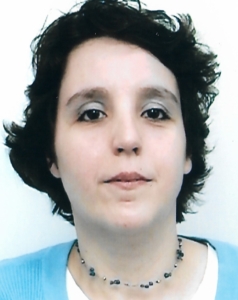 Assistant Professor at ISA, University of Lisbon, in the field of Rural Engineering, since 2019. Agronomist at Instituto Superior de Agronomia (ISA), Technical University of Lisbon in 1998. Doctorate in Biosystems Engineering (2014) and Master in Tropical Agriculture ( 2008) by the Instituto Superior de Agronomia (ISA), Technical University of Lisbon, Portugal. She is a researcher at the Center for Research in Agronomy, Environment, Food and Landscape (LEAF) at ISA-Universidade de Lisboa. She was a Visiting Professor at the Escola Superior Agrária de Elvas, Polytechnic Institute of Portalegre, in the area of water and irrigation management (2017-18). She has taught short courses in the area of water balance modeling in Brazil, China and Slovenia. She is the author or co-author of 50 articles in ISI journals, 3 articles in ISI Conference Proceedings, 18 book chapters, 11 articles in international conference proceedings with peer-review, 23 articles in international conference proceedings. Co-editor of 1 book and 4 times Guest speaker. She was guest editor of the Agricultural Water Management magazine's special issue on "Updates and Advances to the FAO56 Crop Water Requirements Method." She was co-supervisor of 1 doctoral thesis, and several master's dissertations. She participated in 15 international projects and 11 national projects. And participated in the organization of 10 international workshops. She has been, since 2020, Associate Editor of the ISI Agricultural Water Management Journal and is on the Editorial Board of the ISI International Journal of Environmental Research and Public Health (IJERPH, MDPI). She has been, since 2017, an external project evaluator under the European Commission's Horizon 2020 programme; and since 2015 from EUROSTARS program projects managed jointly by EUREKA and the European Commission. She is an article reviewer for 31 ISI journals in the irrigation field. email: pparedes@isa.ulisboa.pt http://orcid.org/0000-0001-5609-0234 ; http://www.researcherid.com/rid/F-9463-2010 Scopus Author ID: 25923078000 Scopus H-index - 21; Google H-index - 26
Assistant Professor at ISA, University of Lisbon, in the field of Rural Engineering, since 2019. Agronomist at Instituto Superior de Agronomia (ISA), Technical University of Lisbon in 1998. Doctorate in Biosystems Engineering (2014) and Master in Tropical Agriculture ( 2008) by the Instituto Superior de Agronomia (ISA), Technical University of Lisbon, Portugal. She is a researcher at the Center for Research in Agronomy, Environment, Food and Landscape (LEAF) at ISA-Universidade de Lisboa. She was a Visiting Professor at the Escola Superior Agrária de Elvas, Polytechnic Institute of Portalegre, in the area of water and irrigation management (2017-18). She has taught short courses in the area of water balance modeling in Brazil, China and Slovenia. She is the author or co-author of 50 articles in ISI journals, 3 articles in ISI Conference Proceedings, 18 book chapters, 11 articles in international conference proceedings with peer-review, 23 articles in international conference proceedings. Co-editor of 1 book and 4 times Guest speaker. She was guest editor of the Agricultural Water Management magazine's special issue on "Updates and Advances to the FAO56 Crop Water Requirements Method." She was co-supervisor of 1 doctoral thesis, and several master's dissertations. She participated in 15 international projects and 11 national projects. And participated in the organization of 10 international workshops. She has been, since 2020, Associate Editor of the ISI Agricultural Water Management Journal and is on the Editorial Board of the ISI International Journal of Environmental Research and Public Health (IJERPH, MDPI). She has been, since 2017, an external project evaluator under the European Commission's Horizon 2020 programme; and since 2015 from EUROSTARS program projects managed jointly by EUREKA and the European Commission. She is an article reviewer for 31 ISI journals in the irrigation field. email: pparedes@isa.ulisboa.pt http://orcid.org/0000-0001-5609-0234 ; http://www.researcherid.com/rid/F-9463-2010 Scopus Author ID: 25923078000 Scopus H-index - 21; Google H-index - 26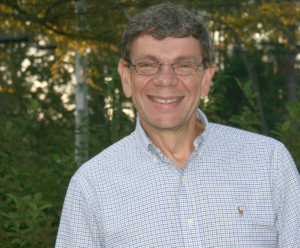 George Vellidis is a professor in the Department of Soil Science and Harvest at the University of Georgia. He received his Ph.D. Doctor in Agricultural Engineering with a small area of emphasis in Environmental Engineering from the University of Florida in 1989. His main research interests are in measuring and modeling the interactions between agricultural production systems and the environment . During his academic career, he has received more than $16 million in external funding and has published 68 articles in peer-reviewed journals and more than 100 conference papers. He served as principal professor to 17 graduate students and mentored 5 postdoctoral research associates. Dr. Vellidis has been the keynote speaker at three international conferences and, in 2012, he received the University of Georgia Tifton Campus Research Excellence Award. Dr. Vellidis was the recipient of the 2015 D.W. Brooks Award for Research Excellence. This award recognizes the faculty of the University Georgia's College of Agricultural and Environmental Sciences for exceptional creativity and excellence in discovering, applying, and integrating knowledge that contributes to timely problem solving in agricultural and environmental sciences.
George Vellidis is a professor in the Department of Soil Science and Harvest at the University of Georgia. He received his Ph.D. Doctor in Agricultural Engineering with a small area of emphasis in Environmental Engineering from the University of Florida in 1989. His main research interests are in measuring and modeling the interactions between agricultural production systems and the environment . During his academic career, he has received more than $16 million in external funding and has published 68 articles in peer-reviewed journals and more than 100 conference papers. He served as principal professor to 17 graduate students and mentored 5 postdoctoral research associates. Dr. Vellidis has been the keynote speaker at three international conferences and, in 2012, he received the University of Georgia Tifton Campus Research Excellence Award. Dr. Vellidis was the recipient of the 2015 D.W. Brooks Award for Research Excellence. This award recognizes the faculty of the University Georgia's College of Agricultural and Environmental Sciences for exceptional creativity and excellence in discovering, applying, and integrating knowledge that contributes to timely problem solving in agricultural and environmental sciences.REALIZATION
SUPPORT
SPONSOR
